FALL 2023 fordham university press





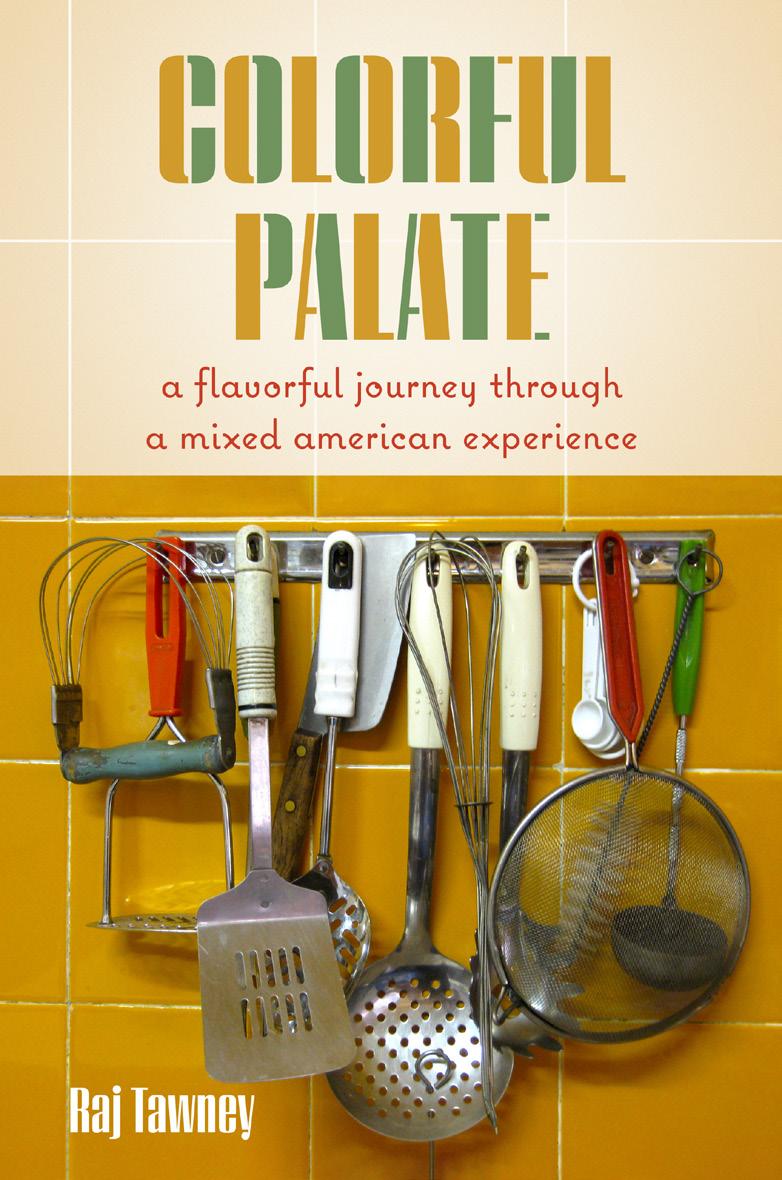
RAJ TAWNEY
160 pages, 16 b/w illustrations
9781531504571, Hardback, $24.95 (HC), £21.99
Simultaneous electronic edition available
OCTOBER
Memoir | Food Studies | New York City & Regional


“Raj’s memoir about food, class, and race in the New York area is not your usual upperclass, upper-caste Indian story. Here is an Indian who is equally Puerto Rican as much as Italian. A kid raised well on Arroz Negro, Insalata di Mare, and Tandoori chicken. Read it and cook from it to figure out what it might mean to be authentically American.”
—KRISHNENDU RAY, PROFESSOR OF FOOD STUDIES AT NYU AND AUTHOR OF THE ETHNIC RESTAURATEUR AND THE MIGRANT’S TABLE
“A lovingly wrought and deliciously intimate memoir that captures the stupendous mélange that is Tawney’s American life (and ours). A feast for the mind, a banquet for the heart, as generous as hospitality and as unforgettable as your favorite meal.”
—JUNOT DÍAZ, AUTHOR OF THIS IS HOW YOU LOSE HER
“Being an immigrant myself, I have always appreciated the cultural diversity and acceptance of it in the United States. Raj Tawney is born American, and in this delightful book he relates to his identity, his life, and growing up in three cultures. The recipes that follow in each chapter are a delicious recall of memories and flavors of each culture. He connects to his roots with tenderness, appreciation, and understanding of his multiethnic family that ends in the kitchen cooking those favorite recipes. Overcoming, with understanding, some of the difficulties he encountered as a multi-ethnic child growing up, he knows that there are many young Americans who are of different cultural blends as he is, and that that is evermore what America is and what makes America the great country it is. A great read. The tasteful recipes are the bonus.”
—LIDIA BASTIANICH
“Raj Tawney’s Colorful Palate is a delicious, charming, and winning coming-of-age story that is authentically American in exploring the messy, beautiful, painful, and ultimately rewarding contradictions of trying to expand stifling boundaries to accommodate and celebrate the multi-hyphenated experiences of those who are often relegated to the margins.”
—WAJAHAT ALI, AUTHOR OF GO BACK TO WHERE YOU CAME FROM: AND OTHER HELPFUL RECOMMENDATIONS ON HOW TO BECOME AMERICAN
“Raj Tawney deftly explores his culturally rich upbringing, unearthing pivotal answers to one of the most fascinating questions in the world: Who am I? Through a captivating mix of intimate stories of family, tradition, and flavor, he paints a poignant portrait of identity and what it really means to be an American. Coupled with mouthwatering recipes that reflect his multifaceted heritage and his respect for food, Colorful Palate is a touching example of the power we can all yield when we embrace our roots as we partake in—to use Tawney’s words—the ‘Great American Experiment.’”
—JOHN LEGUIZAMO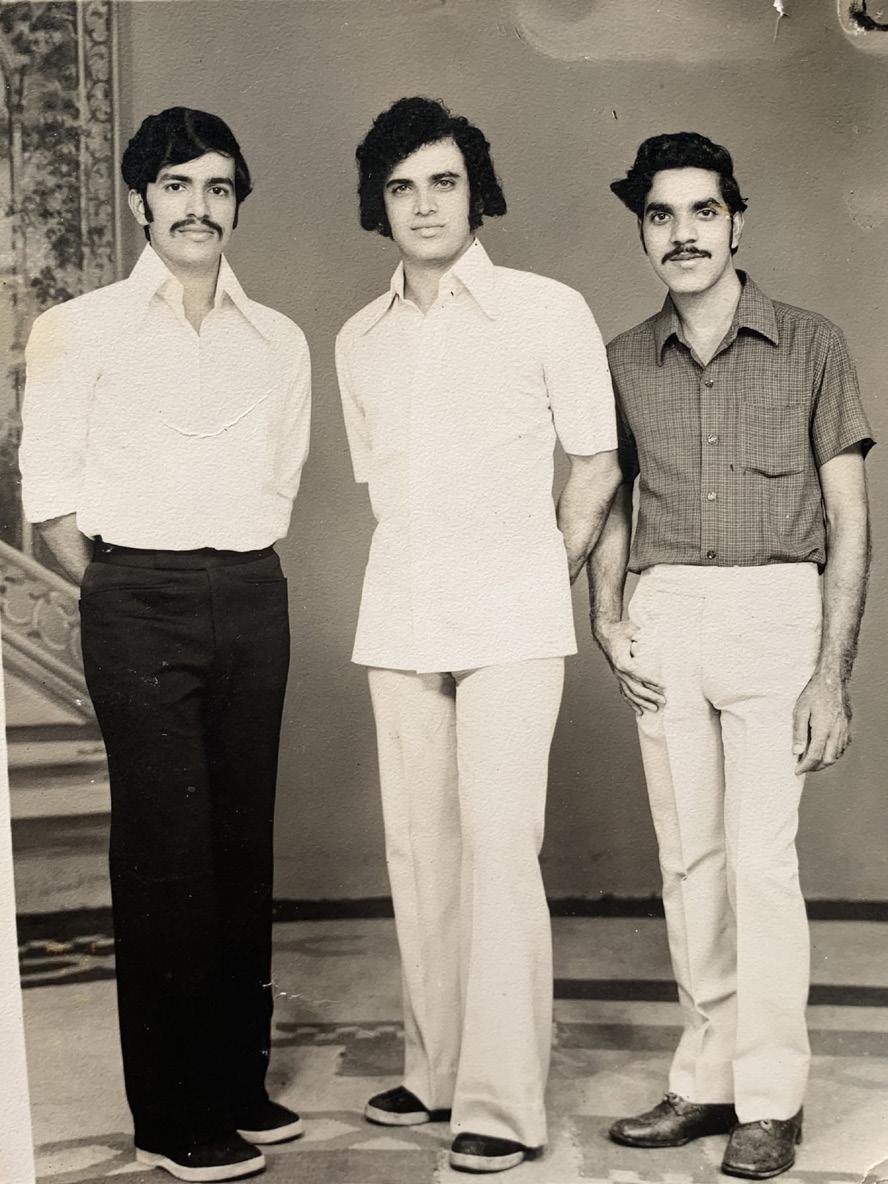
“Too often in America, we are asked to put ourselves into boxes and categories that reduce us to just one aspect of our identity. In Colorful Palate, Raj Tawney rejects the notion that folks with intersectional identities have to choose which aspects to highlight, and which to set aside. He artfully maps the many facets of his own identity: the ethnicities, relationships and meals that shaped him. In doing so, he shows us that both our plates, and our pages, can and should reflect the multitudes we contain. As a new mom to a baby with Indian, Jewish, Irish, and Italian roots, I am so grateful that this book will grace our shelves, and offer a map to my daughter for how to honor her own intersectional story.”
—NEEMA AVASHIA, AUTHOR OF ANOTHER APPALACHIA: COMING UP QUEER AND INDIAN IN A MOUNTAIN PLACEA timely self-examination of the “mixed” American experience featuring exclusive recipes and photographs from the author’s multicultural family.

As citizens continue to evolve and diversify within the United States, the ingredients that make up each flavorful household are waiting to be discovered and devoured. In Colorful Palate, author Raj Tawney shares his coming-of-age memoir as a young man born into an Indian, Puerto Rican, and Italian-American family, his struggles with understanding his own identity, and the mouthwatering flavors of the melting pot from within his own childhood kitchen.
While the world outside can be cruel and unforgiving, it’s even more complicated for a mixedrace kid, unsure of his place in the world. Turning to his mother and grandmother for guidance, Tawney assists in the kitchen, providing intimate moments and candor as he listened to the tales behind each culinary delicacy and the women who perfected it. Each lovingly prepared meal offered another opportunity to learn more about his extraordinary heritage. The ability to create delicious fare with his family wasn’t just a duty for the grand ladies who raised him; it was a survival tactic for navigating new and unknown cultures, not always willing to accept them at first or even a hundredth glance. As Tawney examines both himself and his loved ones through the formative stages of his life, from boyhood through adulthood, he begins to realize, through all of the chaos and confusion, just how “American” he actually was.
In this contemporary coming-of-age tale, Tawney tackles personal hot-button issues about race and identity through poignant, heartfelt moments centered on delicious meals. From succulent tandoori chicken to delectable arroz con habichuelas to scrumptious spaghetti and meatballs, Tawney shares his family recipes along with the intimate stories he overheard in the kitchen as he played sous chef to hundreds of recipes that not only span continents but also come with their own personal histories attached. Colorful Palate is a tale of the mixed experience, one of the millions that rarely get told, undefined by a single group or birthright and unapologetic about its lack of classification.
RAJ TAWNEY is a writer and journalist whose work largely reflects his New York–area upbringing and sensibility. Raised in an Indian, Puerto Rican, and Italian-American household, Tawney has explored his own race and identity through stories published in The New York Times, The Washington Post, NBC News, USA Today, Smithsonian magazine, and many other outlets throughout the country.
A vibrant exploration of the everyday life of one of the most diverse places in the world: Queens, New York.

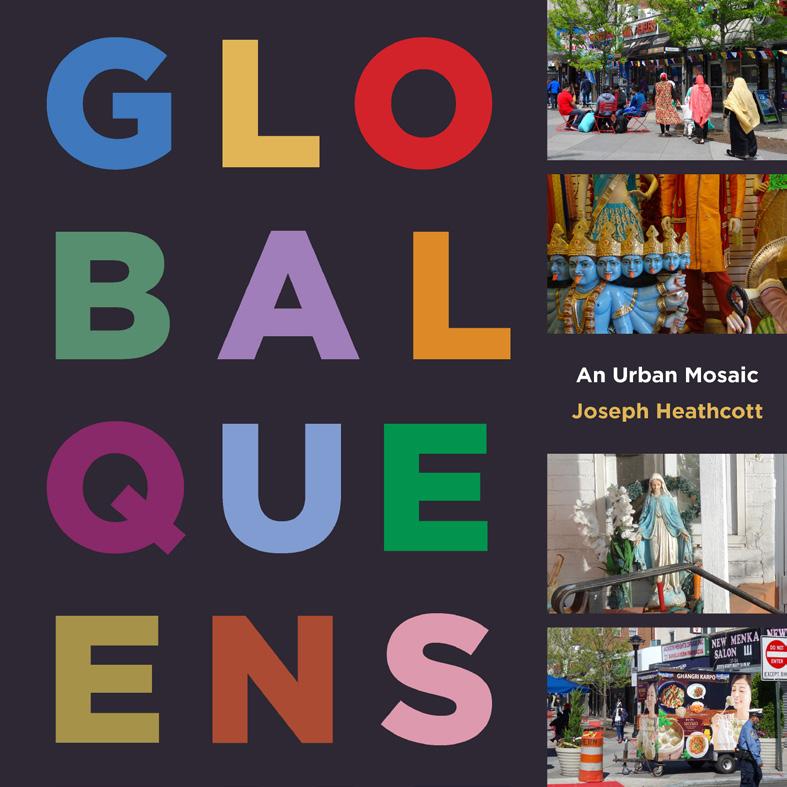
Remade by decades of immigration, Queens, New York, has emerged as an emblematic space of social mixing and encounters across multiple lines of difference. With its expansive subdivisions, tangled highways, and centerless form, it is also New York’s most enigmatic borough. It can feel alternately like a big city, a tight-knit village, a featureless industrial zone, or a sprawling suburban community. Through more than 200 contemporary photographs, Joseph Heathcott captures this multifaceted borough and one of the most diverse places in the United States.
Drawn from more than a decade of roaming around Queens and snapping photos, Heathcott conveys the juxtaposition of the ordinary and the extraordinary, the mundane and the surprising, and the staggering social diversity that best characterizes Queens. At the heart of the story are two separate but entwined histories: the rapid expansion of the borough’s built environment through the twentieth century, and the millions of people who have traveled from near and far to call Queens home. Newcomers have had to confront discrimination, white racial hostility, legal challenges, and language barriers. They have had to struggle to find adequate housing, places to worship, and jobs that pay enough to survive. And they have done all of this in the borough’s jumbled collection of neighborhoods, housing types, civic and religious institutions, factories and warehouses, commercial streets, and strip malls.
Heathcott makes primary use of documentary photography to bring these social and spatial realities of everyday life into relief. He also draws on demographic data, archival sources, planning documents, news stories, and reports. The result is a visual meditation on Queens that provides clues about an urban future where notions of citizenship and belonging are negotiated across multiple lines of difference, but where a sense of ”getting along”—however roughly textured and unfinished—has taken hold in the everyday life of the streets.
JOSEPH HEATHCOTT is a writer, photographer, educator, and Chair of Urban and Environmental Studies at The New School. His work has appeared in a wide range of venues, including books, academic journals, magazines, exhibits, and juried art shows. His most recent books include Urban Infrastructure: Historical and Social Dimensions of an Interconnected World; The Routledge Handbook of Infrastructure Design: Global Perspectives from Architectural History; and Capturing the City: Photographs from the Streets of St. Louis, 1900–1930.
“Global Queens gives us a close and intimate look at a world built by immigrant communities over multiple generations. Heathcott's gift is to provide a panoramic view of this dizzyingly expansive and profoundly complex place, showing how diverse landscapes and social relations don't just happen, they are the result of hard work by millions of people adapting the city to suit their lives.”

—HITOMI IWASAKI, HEAD OF EXHIBITIONS AND CURATOR, QUEENS MUSEUM
“In recent decades Queens has emerged one of most diverse and fascinating places on the planet. Joseph Heathcott’s remarkable photographs and rich, evocative descriptions capture the borough’s dense urbanism in all of its vibrancy and layered complexity. For anyone interested in the future of superdiverse cities, this is a must read.”




—PHILIP KASINITZ, PRESIDENTIAL PROFESSOR OF SOCIOLOGY, GRADUATE CENTER OF THE CITY UNIVERSITY OF NEW YORK
“Global Queens is a quotidian elegy to the vast and intricate composition of movement, textures and vocabularies that vitalizes New York. Joseph Heathcott’s poignant images of everyday life capture the fragile and persistent ways we make meaning together. This lively document of Queens neighborhoods offers a nuanced and necessary view of a spirited social mosaic, formed amidst the pervasive politics of racial violence and reactionary nationalism.”
—SUZANNE HALL, PROFESSOR IN SOCIOLOGY, LONDON SCHOOL OF ECONOMICS & POLITICAL SCIENCE, UK
“With kaleidoscopic views into the raw and eclectic urban landscapes of Queens, Global Queens takes us on a journey through the making of the most ethnically diverse place in the nation. As an immigrant and a former resident of the borough, the visual journey makes me realize that each of us, past and present, has played a part in its becoming, including its unique sense of multiplicity and belonging.”
—JEFF HOU, UNIVERSITY OF WASHINGTON, SEATTLE
116 pages, 101⁄2 × 111⁄4 , 94 b/w illustrations 9781531504397, Hardback, $39.95 (HC), £36.00
“Visually evocative and spare on text, the presentation makes clear Mensch’s affection for this corner of the city and the workers and ‘wiseguys’ who made their livings there. It’s ideal for anyone nostalgic for old New York.”
“There is Barbara Mensch, whose images are like the conjuring rain. She is the Brooklyn Bridge of the New York imagination, linking the now and the then. She sees the incremental turns in the city’s inexorable evolution.”
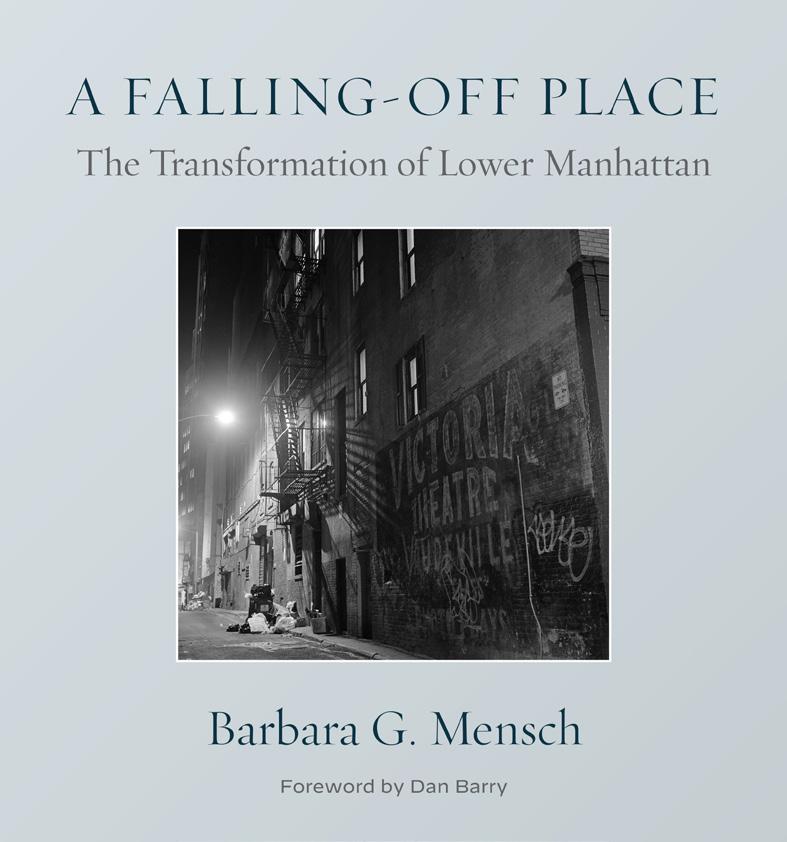
—DAN BARRY, FROM THE FOREWORD
“Barbara Mensch’s A Falling-Off Place features a variety of extraordinary photographs, ranging from images of demolition, to men at work, to abstract interiors, and to individual portraits. Like Jacob Riis in the 1890s, she has produced work that documents the material reality of New York in an unprecedented way. And it offers a vision of the relentless physical transformation of the city and its impact on working people and their labor.”
—DANIEL CZITROM, AUTHOR OF NEW YORK EXPOSEDPhotographer Barbara Mensch’s rediscovered photo archives and interview tapes capture symbolic transformations of Lower Manhattan.
Many of these images are published here for the first time. The photographs evoke the passage of time by dividing the images into three parts: the 1980s, the 1990s, and the new millennium (2000 and beyond). The photographer shares with the viewer:
“I would shoot ruins of buildings, the demolition of famous waterfront saloons, ancient alleyways, and, in some cases, nineteenth-century buildings destroyed by mysterious fires. There were images of floods and other calamities/catastrophes in Lower Manhattan, culminating with 9/11.
These photos captured what had been, what no longer exists. They served as my visual timeline. What did the passage of the many decades reveal to me? What dynamics were in my images of the same streets I repeatedly walked for years?”
The author’s images from the Fulton Fish Market in the 1980s document the generations of immigrants and their children pursuing a gritty American Dream next to the Brooklyn Bridge. Photos from the 1990s present images of floods and fires that paralyzed the area, juxtaposed with continued bulldozing to clear the way for luxury housing. Politics reshaped Manhattan’s skyline by encouraging new commercial shopping, food, and restaurant destinations. This restructuring marked the beginning of the end of downtown’s blue-collar origins and white-collar replacements, challenging us to ask, “What was lost?”
The seminal event of the 2000s, September 11, 2001, reinforced downtown’s rebirth as the global economic engine with no room for the past. Also included in this section is an interview with an insider privy to the Mafia leadership of the Fulton Fish Market during Mayor Rudolph Giuliani’s opportunistic crusade against them in the 1980s.
Dan Barry, Pulitzer Prize–winning journalist, offers a poetic and insightful tribute to the artist and photographer.
“Definitions: ‘falling off’ suggests a decline in quality or quantity, ‘falling off’ suggests the passage of time or changes over time, ‘falling off’ suggests a detachment, an alternative path to a questionable destination, ‘falling off’ suggests a separation, ‘falling off’ suggests something that comes to pass.”
BARBARA G. MENSCH has had numerous exhibitions of her photographic work. Her images are represented in some of New York City’s most prestigious galleries, and her work is included in important collections, including those of MoMA, the Museum of the City of New York, the Brooklyn Museum of Art, Fundacion Televisa of Mexico City, the Bibliothèque Nationale, and the Museum of Fine Arts, Houston. She is the author of South Street and In the Shadow of Genius: The Brooklyn Bridge and Its Creators.

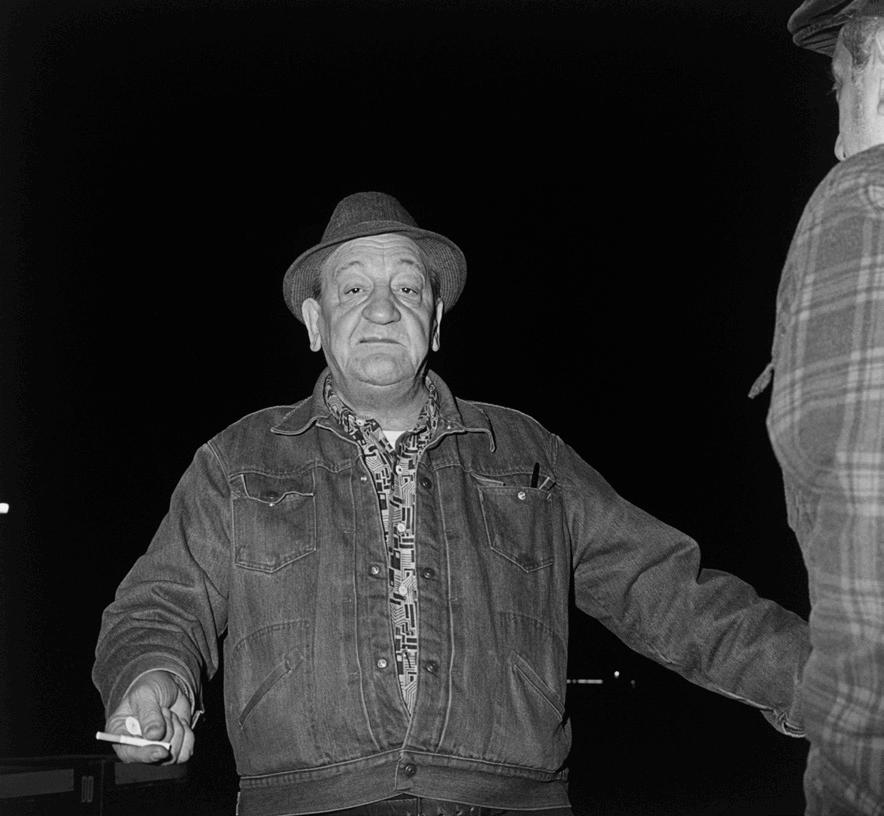

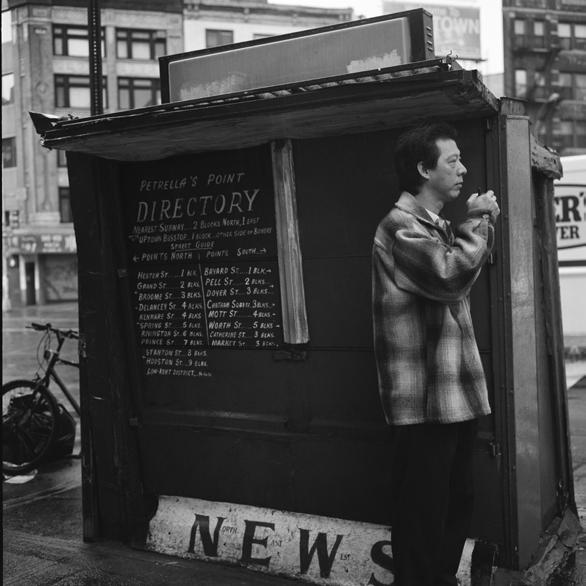


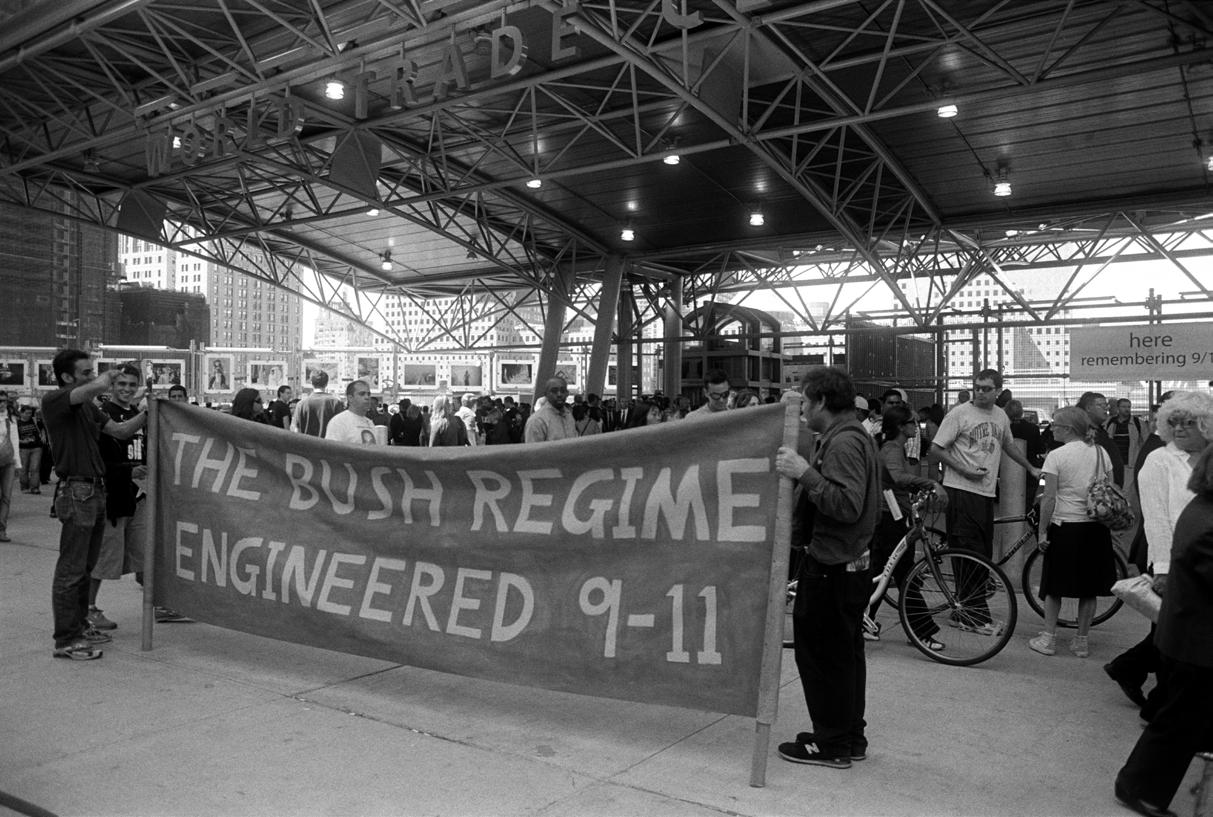
FELIPE LUCIANO
352 pages, 25 b/w illustrations
9781531504489, Hardback, $34.95 (HC), £29.99
Simultaneous electronic edition available
NOVEMBER
Memoir | New York City & Regional | Urban Studies
Chronicles a Black Puerto Rican man’s odyssey and transformation from an incarcerated gang member to the Chairman of the Young Lords Party.

Growing up fatherless and poor, Felipe Luciano didn’t yearn for wealth or dream of becoming a famous actor or athlete. He was tired of being poor and ached to be a man, to reach that point of sagacity, courage, and independence that would signal to the world that he was now a warrior, ready to fight the battle for truth and justice, to slay the dragon of evil, whatever that might be. In Flesh and Spirit, Luciano paints a vivid portrait of his life in New York City as a member of the city’s Latino community as well as his pivotal role in the Young Lords and The Last Poets.
Luciano’s memoir begins when as a teenage Brooklyn gang member he is convicted of manslaughter. This pivotal moment changes the trajectory of his life. The American kid raised on Davy Crockett and Superman TV tales emerged from the womb of prison into a harsh, new monochromatic black/white world without the benefit of rose-colored glasses. It was a painful shattering of all his childhood beliefs and the realization that he was a poor Black Puerto Rican in white America clutching onto values that didn’t work. The only flotsam in this churning sea of ’60s social turmoil was college, poetry, revolutionary activity, and sometimes God. After getting an education, Luciano went on to become an acclaimed poet and political activist who advocates for the Latino population of New York City, for the kids growing up in the same circumstances he did.
Sparing no one—not the revolutionaries, the Revolution, nor the author himself—Flesh and Spirit is written with honesty and humility to help guide young people of color and other Americans through the labyrinths of ideology, organization, missteps, false paths, and phony societal promises.
FELIPE LUCIANO is an Emmy Award–winning journalist, news anchor, and former adjunct professor at Fordham University. He is the founder and chairman of the Young Lords Party, a member of The Original Last Poets, an advocate for inter-ethnic communication, and the host of “Latin Roots,” a Latino music program in New York City. A talented diversity speaker, Luciano is committed to community empowerment, ethnic pride, and civil rights. He is a regular contributor to many New York–area newspapers and magazines, including The New York Times and Essence His poetry has appeared in anthologies such as Puerto Rican Poetry: An Anthology from Aboriginal to Contemporary Time.
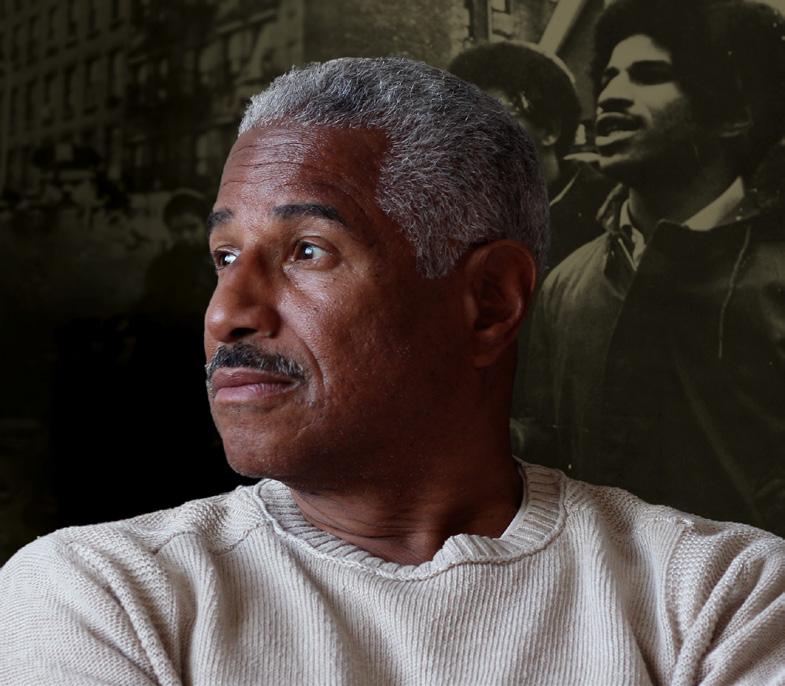
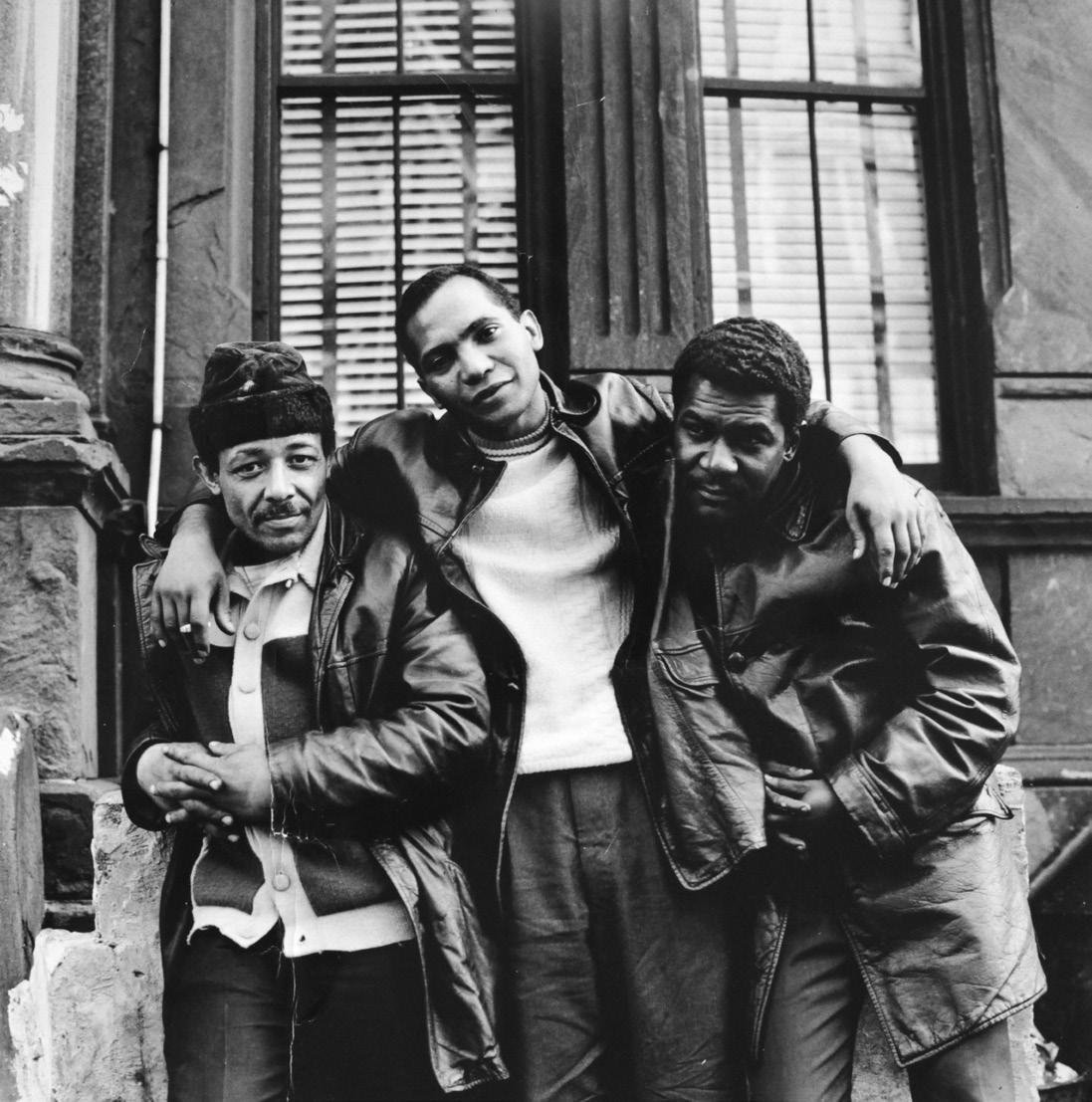
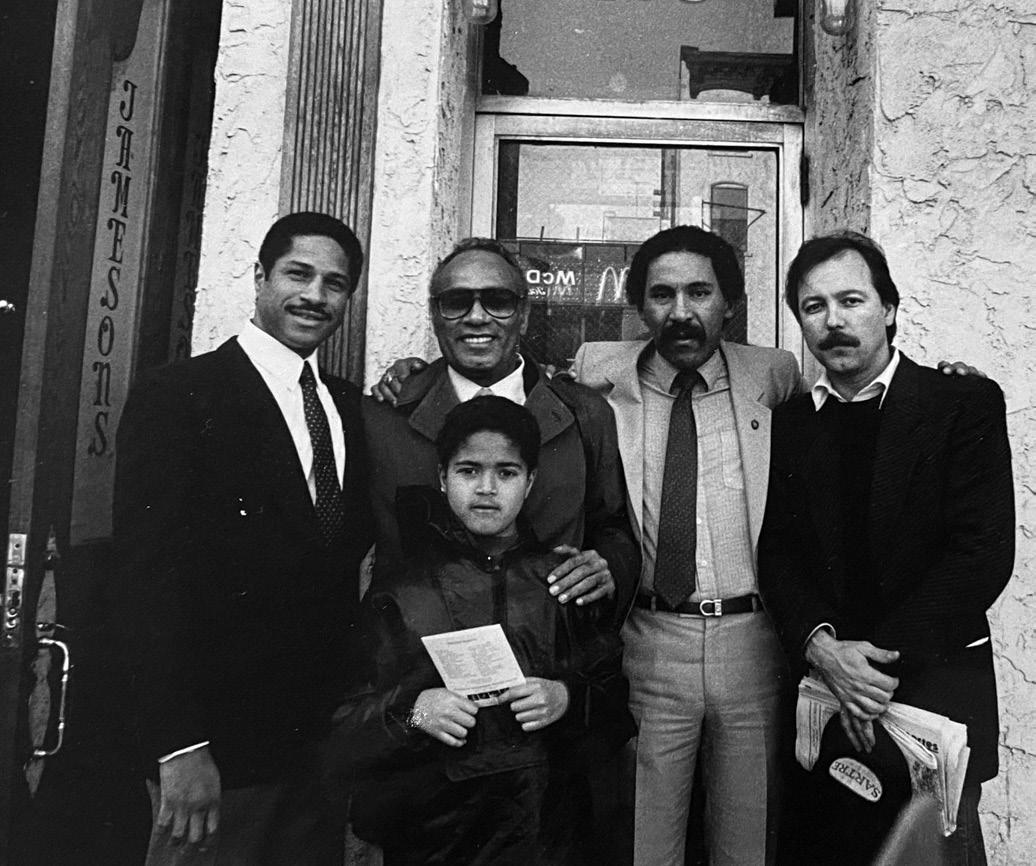
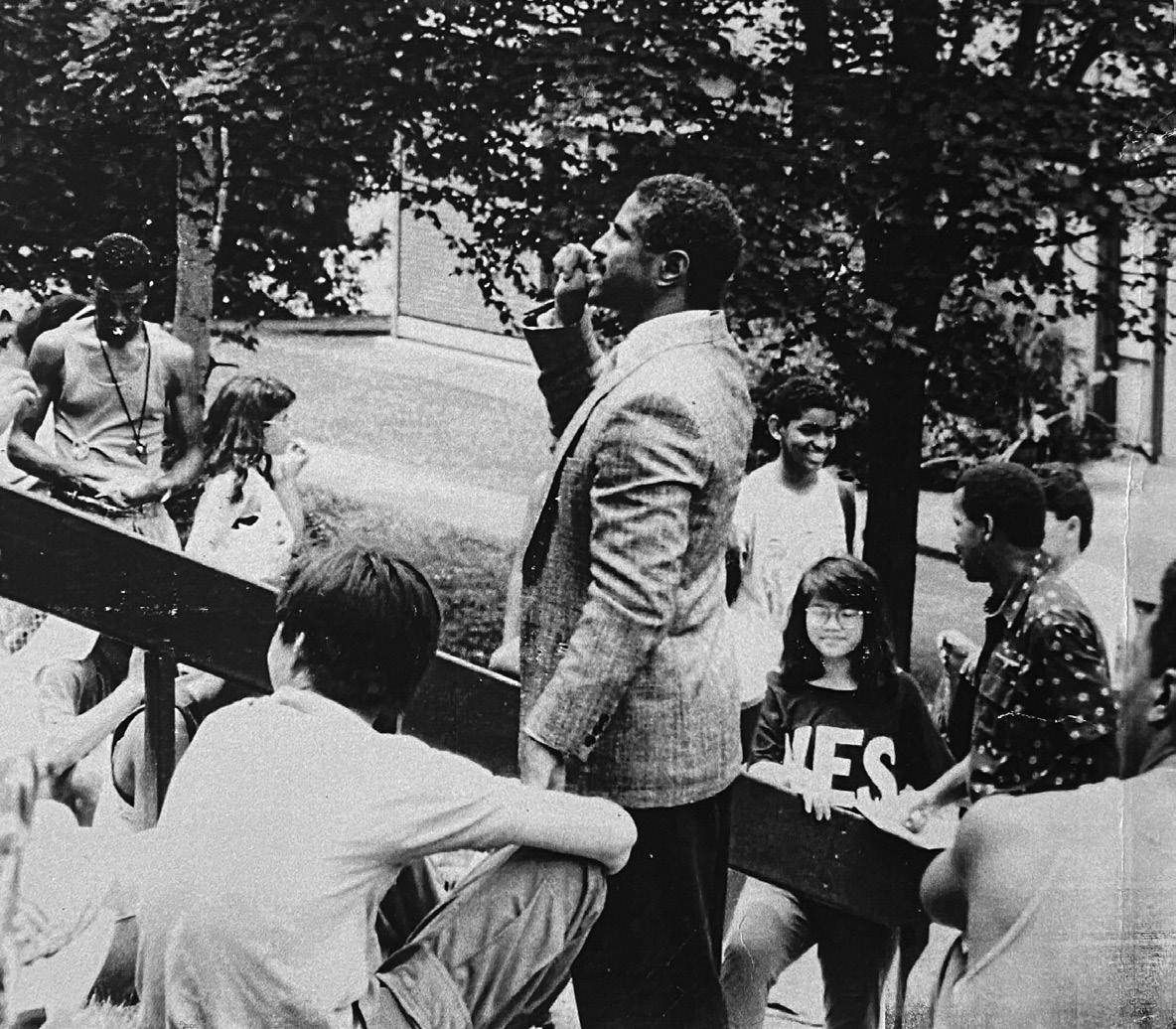
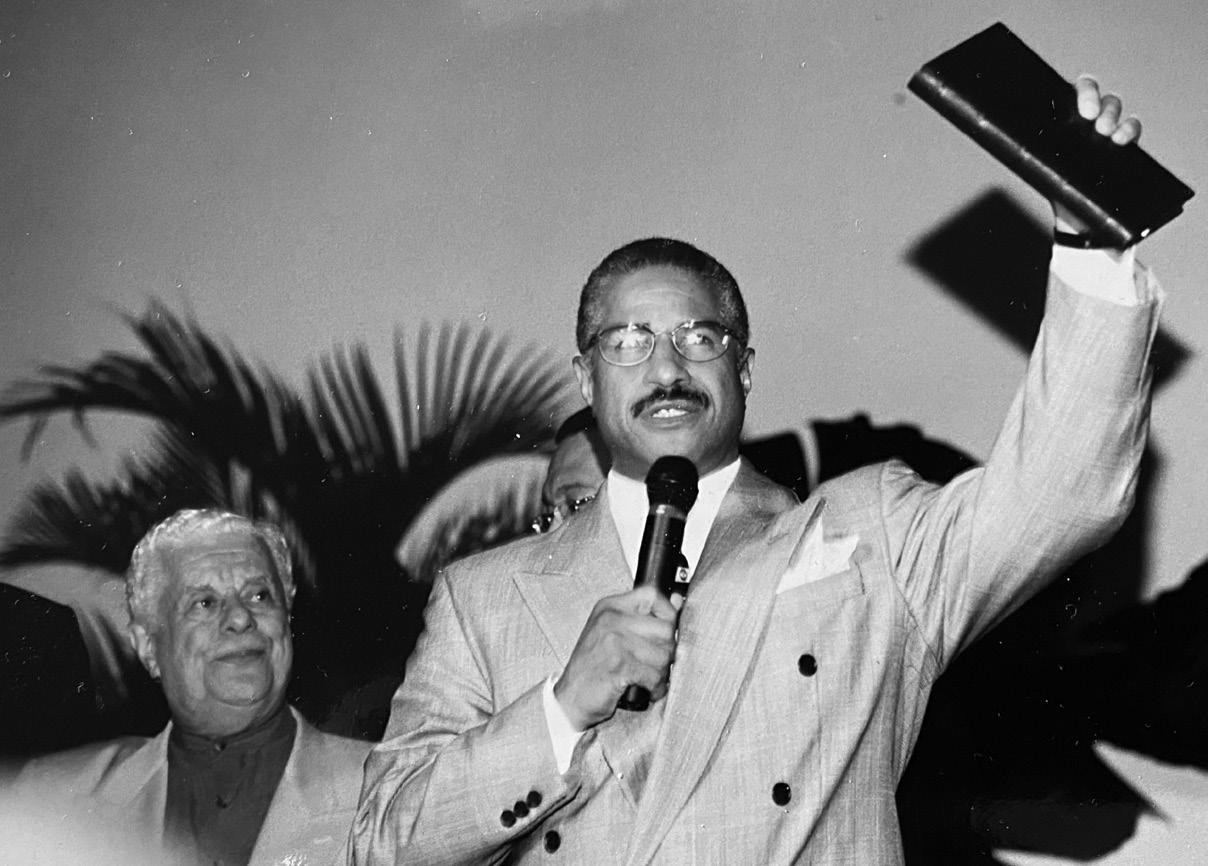
EDWARD
“A teeming multitude of characters and places, Disorderly Men honors the victims of a police raid on a gay bar by showing us their imperfections, their carnality, and their terrible compromises. Mid-century New York has never been so frightening or so beautiful.”
—BENJAMIN NUGENT, AUTHOR OF FRATERNITY“A moving and deeply engaging portrait of pre-Stonewall New York gay male communities in crisis. Cahill, while exploring a complex web of classes, social positions and status, and professions, deftly uncovers the emotional and political complexity of the period. Disorderly Men vividly imagines the tone and texture of a gay world now almost completely gone.”
—MICHAEL BRONSKI, AUTHOR OF A QUEER HISTORY OF THE UNITED STATES“What a wondrous world Cahill has created, full of pathos and driven by memorable characters and a divinely complex plot. Beyond the historical realities of postwar America, the novel—in extravagant and seductive prose—explores the interior lives of gay men eager for pleasure and desperate to push beyond their own perpetual suffering. Disorderly Men is an absolute triumph.”
—AMBER DERMONT, AUTHOR OF THE STARBOARD SEA“Edward Cahill’s wonderfully titled Disorderly Men is a bright, vivid, funny, smart homage to the pre-Stonewall era. A novel at once timeless and timely.”
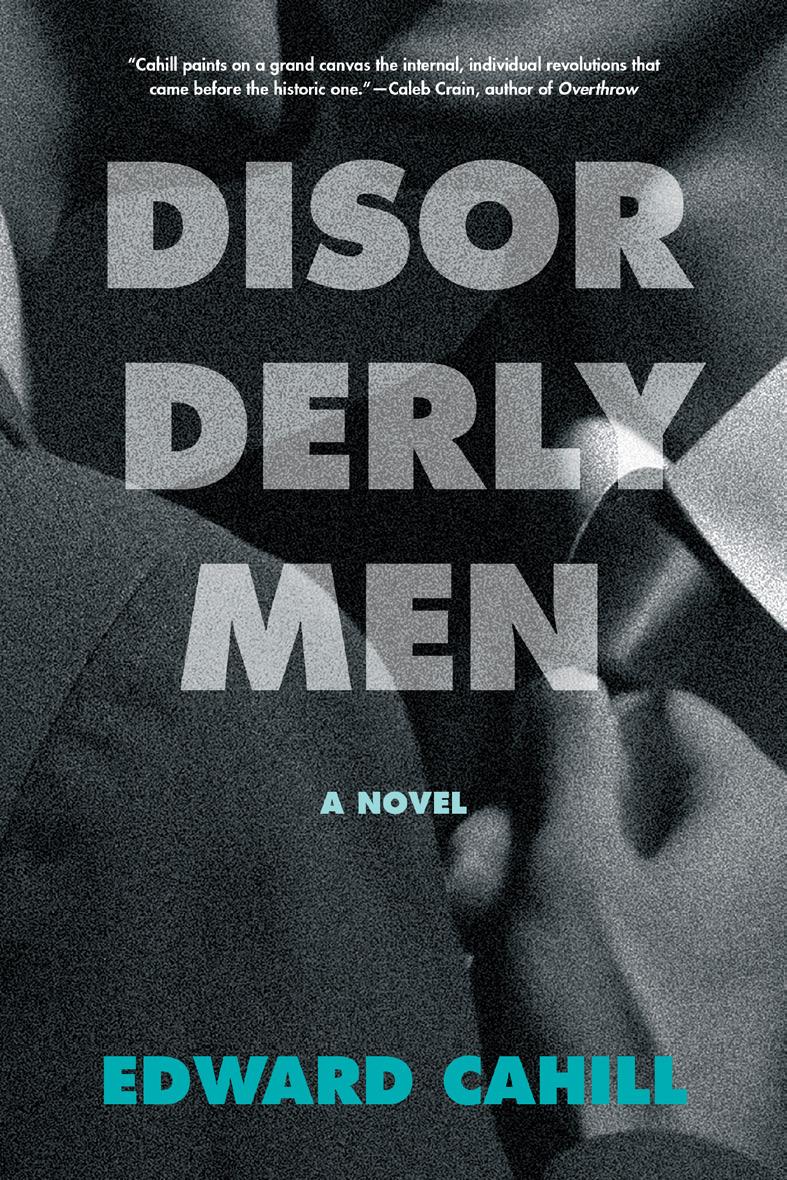 —DAVID LEAVITT, AUTHOR OF SHELTER IN PLACE
—DAVID LEAVITT, AUTHOR OF SHELTER IN PLACE
Three gay men in pre-Stonewall New York City find their fates thrown together in the police raid of a Village bar.
Roger Moorhouse is a Wall Street banker and Westchester family man with a preciously guarded secret. As the shouting begins and flashlights blaze in his face, the life he’s carefully curated over the years—a fancy new office overlooking lower Broadway, a house in Beechmont Woods, his wife and children—is about to come crashing down around him.
Columbia literature professor Julian Prince lives a comparatively uncloseted life when he finds his first committed relationship tested to its limits. How could he explain to Gus, a fearless young artist, that he couldn’t stay with him that weekend because the woman who was still technically Julian’s fiancée would be visiting? But when Gus is struck unconscious by a police baton, Julian comes out of hiding to protect him, even if exposure means losing everything.
For Danny Duffy, an Irish kid from the Bronx with a sassy mouth and a diverse group of friends, the raid is a galvanizing, Spartacus moment. Danny doesn’t have too much left to lose; his family has just disowned him. But once his name appears in the newspaper, he’ll be fired from his job at Sloan’s Supermarket, where he’s risen to assistant manager of produce, and begin a journey that veers between political enlightenment and violent revenge.
The three men find themselves in a police wagon together, their hidden lives threatened to be revealed to the world. Blackmail, a private investigator, Gus’s disappearance, and Danny’s quest for retribution propel Disorderly Men to its piercing conclusion, as each man meets the boundaries of his own fear, love, and shame. The stakes for each are different, but all of them confront a fundamental question: How much happiness is he allowed to have . . . and what share of it will he lay claim to?
EDWARD CAHILL is Professor of English at Fordham University. He is the author of Liberty of the Imagination: Aesthetic Theory, Literary Form, and Politics in the Early United States. Disorderly Men is his first novel. Learn more at www.edwardcahill.net.
“Midnight Rambles is a clear and comprehensive discussion of Lovecraft’s controversial New York period.”
—CARL SEDERHOLM, BRIGHAM YOUNG UNIVERSITY
“Meticulously researched, carefully documented, and clearly written, David J. Goodwin’s Midnight Rambles: H. P. Lovecraft in Gotham offers an intimate and even-handed portrait of the fascinating—if problematic—author’s time in New York City. Refuting some myths while confirming others, Goodwin’s biographical study productively supplements the existing literature and helps us better understand both the man and his work.”

A micro-biography of horror fiction’s most influential author and his love–hate relationship with New York City.
By the end of his life and near financial ruin, pulp horror writer Howard Phillips Lovecraft resigned himself to the likelihood that his writing would be forgotten. Today, Lovecraft stands alongside J. R. R. Tolkien as the most influential genre writer of the twentieth century. His reputation as an unreformed racist and bigot, however, leaves readers to grapple with his legacy. Midnight Rambles explores Lovecraft’s time in New York City, a crucial yet often overlooked chapter in his life that shaped his literary career and the inextricable racism in his work.
Initially, New York stood as a place of liberation for Lovecraft. During the brief period between 1924 and 1926 when he lived there, Lovecraft joined a creative community and experimented with bohemian living in the publishing and cultural capital of the United States. He also married fellow writer Sonia H. Greene, a Ukrainian-Jewish émigré in the fashion industry. However, cascading personal setbacks and his own professional ineptitude soured him on New York. As Lovecraft became more frustrated, his xenophobia and racism became more pronounced. New York’s large immigrant population and minority communities disgusted him, and this mindset soon became evident in his writing. Many of his stories from this era are infused with racial and ethnic stereotypes and nativist themes, most notably his overtly racist short story, “The Horror at Red Hook,” set in Red Hook, Brooklyn. His personal letters reveal an even darker bigotry.
Author David J. Goodwin presents a chronological micro-biography of Lovecraft’s New York years, emphasizing Lovecraft’s exploration of the city environment, the greater metropolitan region, and other locales and how they molded him as a writer and as an individual. Drawing from primary sources (letters, memoirs, and published personal reflections) and secondary sources (biographies and scholarship), Midnight Rambles develops a portrait of a talented and troubled author and offers insights into his unsettling beliefs on race, ethnicity, and immigration.
DAVID J. GOODWIN is the Assistant Director of the Center on Religion and Culture at Fordham University and was a Frederick Lewis Allen Room scholar at the New York Public Library from 2020 to 2023. He is a past commissioner and chairperson of the Jersey City Historic Preservation Commission and a former Jersey City Landmarks Conservancy board member. His first book, Left Bank of the Hudson: Jersey City and the Artists of 111 1st Street (Fordham), received the J. Owen Grundy History Award in 2018. He blogs about cities, culture, and history at anothertownonthehudson.com.
UGOCHUKWU DAMIAN OKPARA
76 pages, 5 × 8
9781531504601, Paperback, $16.95 (TP), £14.99
Simultaneous electronic edition available
SEPTEMBER
Poetry | LGBTQ Studies | African Studies
“In Ugochukwu Okpara’s In Gorgeous Display we meet a son trying to reconcile a relationship with his father, his mother, his nation, and himself. Fighting against the erasures and violences of queer bodies in his native Nigeria, the poems found here are rife with searching, with discovery, with a quiet power that does not attempt to perform for the reader but rather seeks a reconciliation that is understood across oceans and cultures. Okpara unearths the way fissures shape and break us, move us and guide us, and ultimately push us towards a kind of healing that may not yet be named. This is a wise and graceful book that sits at the intersections of inter-generational time and space and serves as a suture of past and present.”
—MATTHEW
The remarkable debut collection by a young Nigerian queer poet.
“here / i am not his image / & i envy it / i shut my eyes against what is left / the crackling softness of life / like communion / desire is a marathon / a baton waiting for your grip / here / i am not running / neither is he / i sit with a man for the first time / & we talk about war . . .”
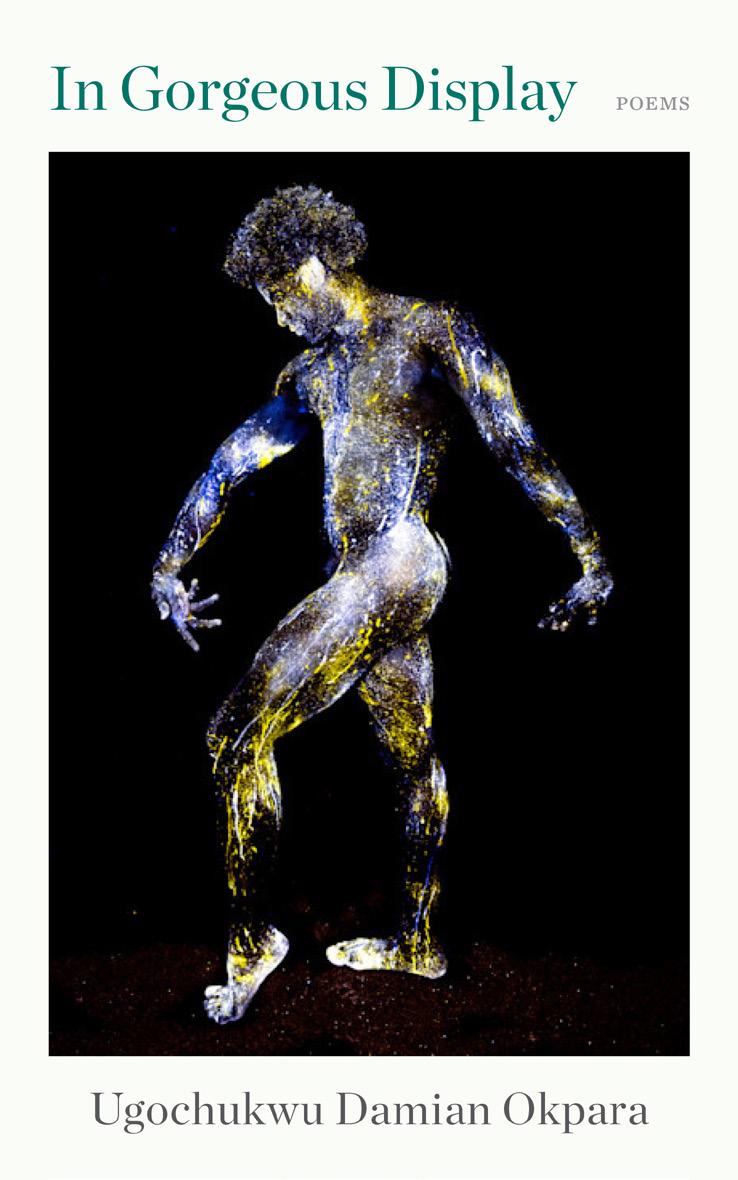
—FROM “BEAUTIFUL BOY WITH GARLANDS AROUND HIS WAIST”
In Gorgeous Display, by Nigerian poet Ugochukwu Damian Okpara, is a volume dedicated to the memory of those lost to anti-queer violence in Nigeria and elsewhere. In this first full-length collection of his work, Okpara examines queer male identity, effeminacy, and exile, offering meditations on desire and sanctuary, freedom and estrangement. Forty-three poems pierce familial relationships, safety, fear, and anxiety portrayed through the outward sign of hand tremors, queer lynching, survival, hope, the emptiness of exile, and reclamation of the self. Embracing the ephemeral and spiritual nature of physical beauty, Okpara also reveals the scars of queer displacement, illuminating the ways that leaving home is never quite the utopia one hopes for and how often the ache of abandonment can haunt a life lived in the present.
UGOCHUKWU DAMIAN OKPARA is the author of the poetry chapbook I Know the Origin of My Tremor. His works appear or are forthcoming in Poetry magazine, Poetry Wales, Ruminate, The Penn Review, Salamander magazine, and elsewhere. He is currently pursuing his MFA in Creative Writing at the University of Mississippi.
PAMELA SNEED
80 pages, 6.14 × 9.21
9781531504847, Paperback, $16.95 (TP), £14.99
Simultaneous electronic edition available
SEPTEMBER
Poetry | African American Studies | LGBTQ Studies
Praise for Pamela Sneed
“She is a writer for the future, in that she defies genre.”
—HILTON ALS, AUTHOR OF WHITE GIRLS
“Pamela Sneed tells the truth with fierce concentration and an abiding sense of purpose.”
—DOROTHY ALLISON, AUTHOR OF BASTARD OUT OF CAROLINA
“All of us should read and thank this poet repeatedly.”
—GREGG BORDOWITZ, AUTHOR OF IMAGEVIRUS
“If a sledgehammer could whisper, its name would be Pamela Sneed.”
THE BOSTON GLOBE
An incendiary literary work more relevant now than ever.
“if anger were an ax/it would split me open/and if this is a sermon/let it be my granddaddy’s sermon/my grandmother’s foottapping/steady rocking/choir singing”
—FROM “THIS IS NOT A NEW AGE”
First published in 1998, Imagine Being More Afraid of Freedom than Slavery is the debut collection by acclaimed poet and performer Pamela Sneed. Provocative and potent, it tackles the political and personal issues of enslavement, sexuality, emotional trauma, and abuse. These poems chart the journey of an artist trying to escape cycles of dependency and reclaim lost self and identity. Drawing parallels to Harriet Tubman’s journey on the Underground Railroad, Sneed’s explorations of the woods are a metaphor and emotional path one must explore to attain self-ownership. Sneed’s poems are bound by the search for love, freedom, and justice—from images of lesbian love to Emmet Till’s bloated body, they offer a raging cry and a roadmap for those interested in transforming the personal into social justice and abolitionist practices.
PAMELA SNEED is a New York City–based poet, performer, and visual artist. Her other books include KONG and Other Works, Sweet Dreams, and Funeral Diva, which won the 2021 Lambda Lesbian Poetry Award. She has published in The Paris Review, Frieze, Art Forum, and elsewhere.

ALVIN ENG
212 pages, 51⁄2 × 81⁄2, 24 b&w illustrations
9781531504830, Paperback, $18.95 (TP), £15.99
[Hardcover edition available: 9781531500368], eBook Available
SEPTEMBER
Memoir | Asian American Studies | Theater & Performance
With humor and grace, the memoir of a first-generation Chinese American in New York City.
“A true fixture of Flushing and NYC history, Alvin takes us from his immigrant parents’ hand laundry to the ’80s punk scene to ’90s experimental Downtown Theater, then connects it to his complicated trip back to the motherland as a ‘jook sing.’”
—KRISTINA WONG, PERFORMANCE ARTIST/AUTHOR
“Alvin Eng’s fascinating, funny, loving memoir derives its power from that key element of NYC’s dynamism and magic: Behind every apartment door and scrappy storefront lie epic tales of questing souls melding the old ways into something meaningful and new.”
—LISA KRON, TONY AWARD–WINNING PLAYWRIGHT
“Part personal journey, part historical deep dive into NYC’s Chinese community.”
—BRIAN LEHRER, WNYC/NPR
“Eng’s contentment in fully embracing his identity as both American and Chinese is full of humor and heart. His fluency across cultures—not just in New York and China but also in rock music, theatrical performance, playwriting, and journalism—lends itself to a multifaceted, engaging memoir.”
“I really like how he takes global, geopolitical engagements like the Chinese Exclusion Act and the Chinese Hand Laundry Alliance and explains how they affected his family personally.”
—ALISON STEWART, WNYC/NPR
“This new autobiography is a welcome addition to the Chinese American Toishan experience.”
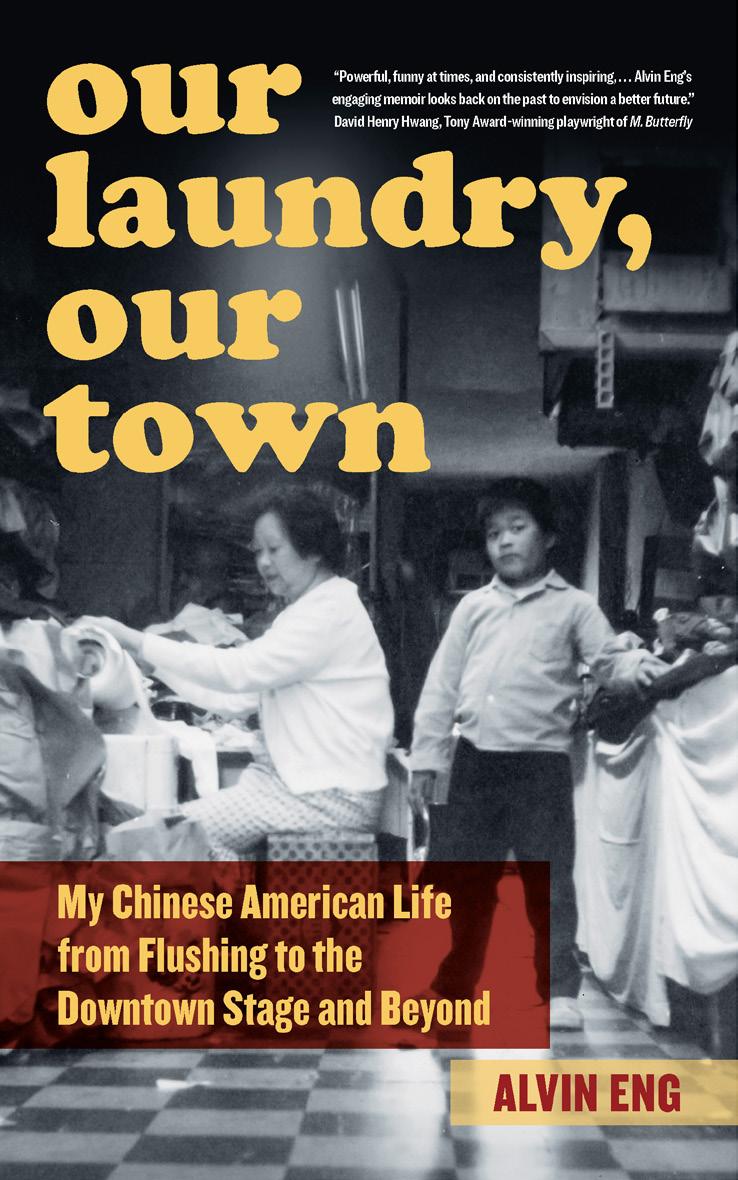
INTERNATIONAL EXAMINER
“Alvin Eng writes passionately about his humble beginnings in the Foo J. Chin Chinese Hand Laundry in Flushing. This reflective, nostalgic book takes readers back to a very different NYC.”
—CHERYL WILLS, SPECTRUM NEWS NY1
“The book tells a moving tale of the distances that separate you from your immigrant parents, but there’s a surprising twist. The protagonist is a young punk who hates math and loves The Who.”
—KEN CHEN, AUTHOR/EDUCATOR
“An evocative perspective on the Chinese American experience.”
—HENRY CHANG, AUTHOR
“I was deeply touched, especially by the spirit parallels between the characters in Thornton Wilder’s play Our Town and the beautiful idea that his parents didn’t really see each other either. Just a beautiful book.”
—STEVE ZEITLIN, FOLKLORIST/AUTHOR
ALVIN ENG is a native NYC playwright, author, acoustic punk rock raconteur, and educator. His work has been seen Off-Broadway, in Paris, Hong Kong, and Guangzhou, China. Eng’s play Three Trees was published by No Passport Press. He is the editor of the oral history/play anthology Tokens? The NYC Asian American Experience on Stage. www.alvineng.com
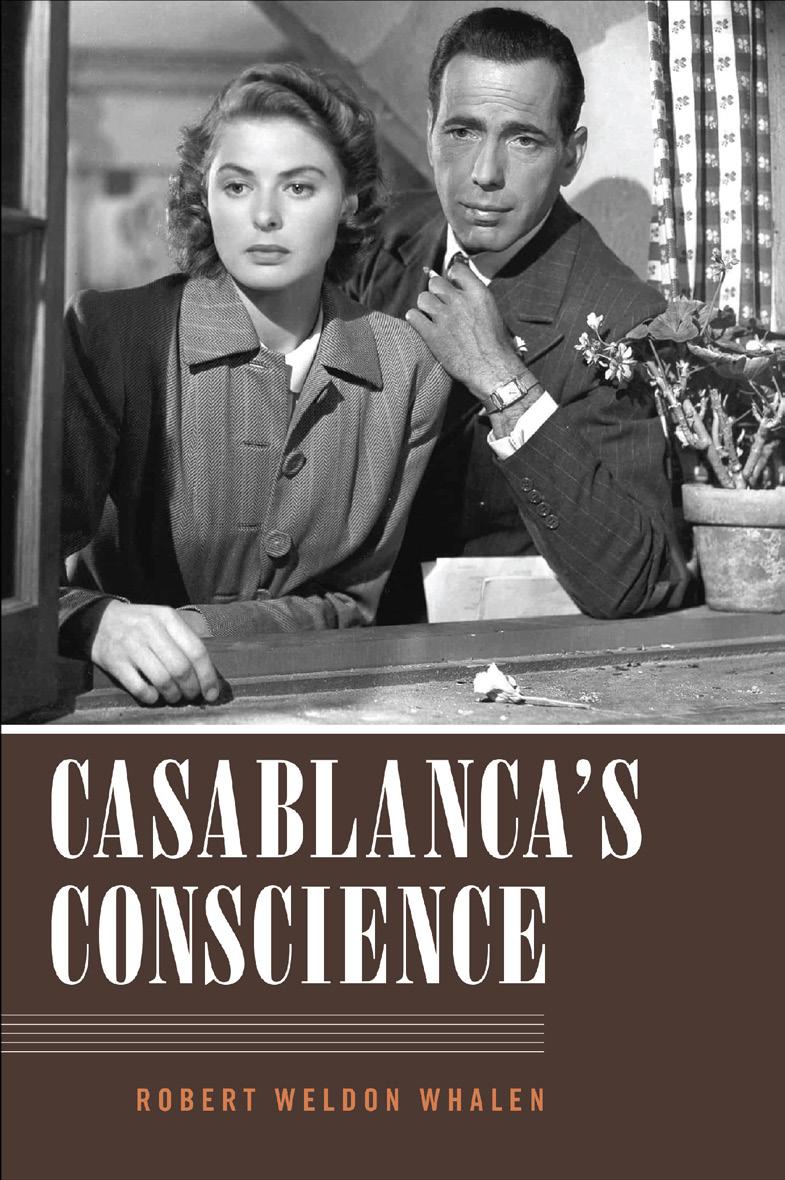
ROBERT WELDON WHALEN
160 pages
9781531504809, Paperback. $25.00 (AC), £21.99
9781531504793, Hardback, $90.00 (SDT), £81.00
Simultaneous electronic edition available
FEBRUARY
Cinema & Media Studies | Philosophy & Theory | History
“Whalen offers a fresh, innovative, and thoroughly readable approach to what many regard as the ultimate holy grail of Classical Hollywood. He reevaluates Casablanca against the illuminating, eye-opening backdrop of philosophical and theological discourse in the writings of Hannah Arendt, Dietrich Bonhoeffer, and Albert Camus. Readers are bound to discover plenty of new ideas amid the book’s far-reaching, trenchant insights.” —NOAH ISENBERG, AUTHOR OF WE’LL ALWAYS HAVE ‘CASABLANCA’: THE LIFE, LEGEND, AND AFTERLIFE OF HOLLYWOOD’S MOST BELOVED MOVIE
A new look at a beloved classic film that explores the philosophical dynamics of Casablanca
Celebrating its eightieth anniversary this year, Casablanca remains one of the world’s most enduringly favorite movies. It won three Academy Awards for Best Picture, Best Director, and Best Adapted Screenplay. It is still commonly quoted: “We’ll always have Paris” and “Here’s looking at you, kid” And who can forget, “You must remember this…a kiss is just a kiss.” Yet no one expected much to come of this little film, certainly not its blockbuster stars or even the studio producing it. So how did this hastily cranked-out 1940s film, despite its many limitations, become one of the greatest films ever made? How is it that year after year, decade after decade, it continues to appear in the lists of the greatest movies ever produced? And why do audiences still weep when Rick and Ilsa part? The answer, according to Casablanca’s Conscience, is to paraphrase Rick, “It’s true.”
Much has already been written about the film and the career-defining performances of Bogart and Bergman. Casablanca is an epic tale of love, betrayal, and sacrifice set against the backdrop of World War II. Yet decades later, it continues to capture the imagination of filmgoers. In Casablanca’s Conscience, author Robert Weldon Whalen explains why it still resonates so deeply. Applying a new lens to an old classic, Whalen focuses on the film’s timeless themes—Exile, Purgatory, Irony, Love, Resistance, and Memory. He then engages the fictional characters—Rick, Ilsa, and the others—against the philosophical and theological discourse of their real contemporaries, Hannah Arendt, Dietrich Bonhoeffer, and Albert Camus. The relationships between fictional and historical persons illuminate both the film’s era as well as perennial human concerns. Both the film and the work of the philosophers explore dimensions of the human experience, which, while extreme, are familiar to everyone. It’s the themes that resonate with the viewer, that have sustained it as an evergreen classic all these years.
ROBERT WELDON WHALEN is Professor Emeritus of History at Queens University of Charlotte. His publications include Murder, Inc. and the Moral Life: Gangsters and Gangbusters in La Guardia’s New York (Fordham); Sacred Spring: God and Modernism in Fin- de-Siècle Vienna; “Like Fire in Broomstraw”: Southern Journalism and the Textile Strikes of 1929–1931; and Assassinating Hitler: Ethics and Resistance in Nazi Germany; and Bitter Wounds. German Victims of the Great War.

240 pages
9781531504724, Paperback, $30.00 (AC), £25.99
9781531504717, Hardback, $105.00 (SDT), £94.00
Simultaneous edition available
NOVEMBER
Religion | Theology | Psychology
“From start to finish, Julia Feder’s Incarnating Grace is motivated by her love for persons suffering from sexual violence. Drawing on interdisciplinary trauma studies, first-person narratives, and the mystical-political wisdom of Teresa of Avila and Edward Schillebeeckx, this beautiful book illuminates a path of healing for victims and survivors that is urgently needed today. It reveals God as the Friend of the traumatized—an affirming companion who offers encouragement and hope and never wills their suffering. This is compassionate theology at its finest.”
—ANDREW PREVOT, AMATURO CHAIR OF CATHOLIC STUDIES AT GEORGETOWN UNIVERSITY AND AUTHOR OF THE MYSTICISM OF ORDINARY LIFE: THEOLOGY, PHILOSOPHY, AND FEMINISM
Prioritizes survivors of abuse by re-examining Christian ideals about suffering and salvation.
More than half of women and almost one in three of men in the United States have experienced sexual violence at some time in their lives. Yet our Christian tradition has failed survivors of sexual violence, who have been taught to believe that traumatic suffering brings us closer to God. Incarnating Grace attempts to save our broken ways of talking about God’s grace by unearthing liberating resources buried in the Christian tradition.
Christian ideas about salvation have historically contributed to sexual violence in our communities by reinforcing the idea that suffering is salvific. But a God worth worshiping does not want human beings to suffer. Drawing on the sixteenth-century Spanish mystic Teresa of Avila as well as contemporary political and feminist theologians, philosophers, and legal scholars, author and Associate Professor of theology Julia Feder offers an account of Christian salvation as mystical-political.
Feder begins by describing the breadth of traumatic wounding and the shape of traumatic recovery, as articulated by psychologists. Since the fullness of post-traumatic healing requires reserves deeper than those which can be articulated by the secular field of psychology alone, the book then introduces the Spanish Carmelite Saint Teresa of Avila and her theological insights, which are most helpful for constructing a post-traumatic theology of healing. Arguing that God stands against violence and suffering, the book also examines the notion of “senseless suffering,” a technical term that comes from Edward Schillebeeckx, a Catholic twentieth-century Flemish priest and theologian. The suffering of sexual violence serves no higher purpose or greater human value and pushes against all ways of making sense of the world as good and orderly. In the following chapters, Feder turns to two Christian virtues that animate post-traumatic recovery, courage and hope, and explores how Christian hope can provide a language to empower courageous activity undertaken toward healing.
Incarnating Grace opens a new dialogue about salvation and violence that does not allow evil to have the last word.
JULIA FEDER is the Assistant Director of the Center for the Study of Spirituality and Associate Professor of Religious Studies and Theology at Saint Mary’s College in Notre Dame, Indiana. Her research focuses on theological anthropology, theologies of suffering, and human evolution. Her essays have been published in Theological Studies, Horizons, the Journal of Moral Theology, the Journal of Religion and Society, Anthropology News, and Philosophy, Theology, and the Sciences.
“In this profound and profoundly intelligent book, Mark D. Jordan probes the protocols as well as the frequently violent debates that surround queer names and naming: the names we call ourselves, the names we are called by others. Along the way, Queer Callings not only defamiliarizes current ways of naming sexual and gender identities; it also loosens the grip of the very imperative to catalogue and name our identities in the first place, indeed, as our first place if we are to be at all. Jordan does so in order to open up wider and wilder and more lushly habitable ways of being and becoming and desiring. Lyrically argued and gloriously felt, Queer Callings is a gift of possibility.”
—ANN PELLEGRINI, COAUTHOR, GENDER WITHOUT IDENTITY
“Capacious in its literary engagements and in its persistence in linking philosophical and literary interventions with time-honored theological perspectives, Queer Callings draws together in a new pattern the threads of Christian theological history and Foucauldian genealogical analysis that have made Mark Jordan a luminary.”
—MELISSA M. WILCOX, AUTHOR OF QUEER NUNS: RELIGION, ACTIVISM, AND SERIOUS PARODY
“A lively and incisive historicized linguistic study of how the habit of naming ourselves after sex/gender has been built up and cemented, Queer Callings is an expertly alert and finely textured investigation of the archives of queer speech.”
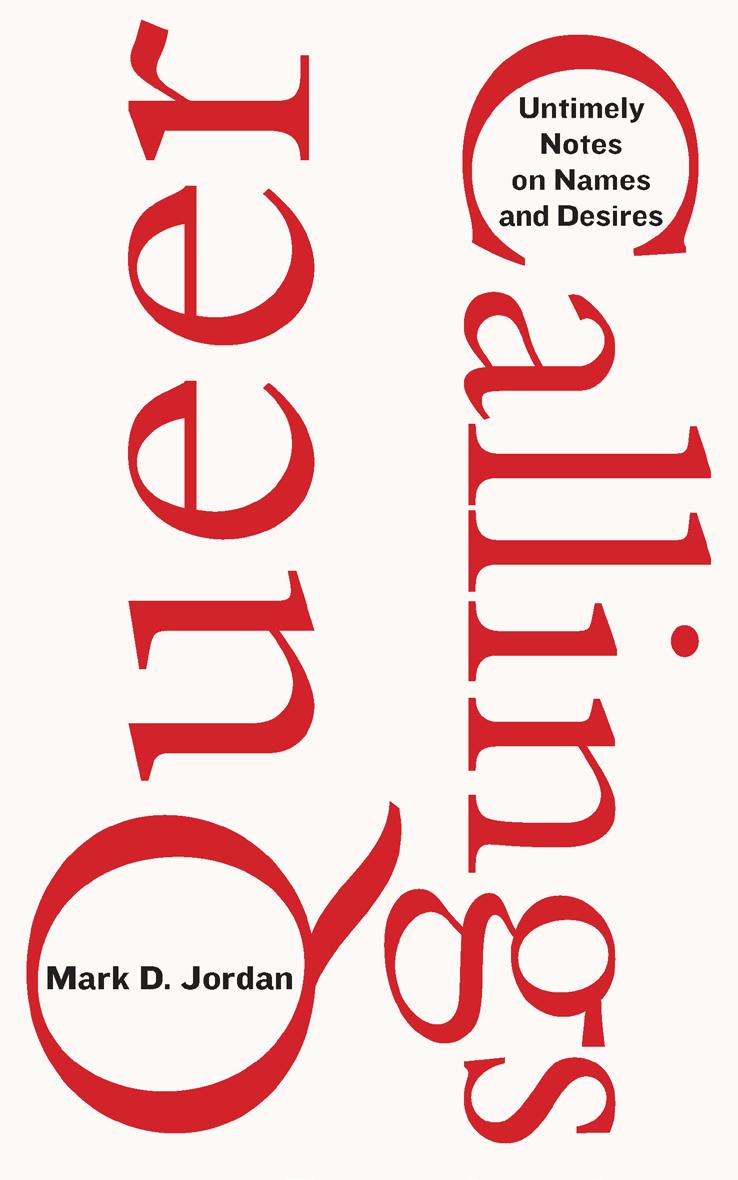
—RICHARD RAMBUSS, AUTHOR OF CLOSET DEVOTIONS AND KUBRICK’S MEN
A passionate exhortation to expand the ways we talk about human sex, sexuality, and gender.
Twenty-five years ago, Mark D. Jordan published his landmark book on the invention and early history of the category “sodomy,” one that helped to decriminalize certain sexual acts in the United States and to remove the word sodomy from the updated version of a standard English translation of the Christian Bible. In Queer Callings, Jordan extends the same kind of illuminating critical analysis to present uses of “identity” with regard to sexual difference. While the stakes might not seem as high, he acknowledges, his newest history of sexuality is just as vital to a better present and future.
Shaking up current conversations that focus on “identity language,” this essential new book seeks to restore queer languages of desire by inviting readers to consider how understandings of “sexual identity” have shifted—and continue to shift—over time. Queer Callings re-reads texts in various genres—literary and political, religious and autobiographical—that have been preoccupied with naming sex/gender diversity beyond a scheme of LGBTQ+ identities. Engaging a wide range of literary and critical works concerned with sex/gender self-understanding in relation to “spirituality,” Jordan takes up the writings of Oscar Wilde, Marcel Proust, Djuna Barnes, Samuel R. Delany, Audre Lorde, Geoff Mains, Eve Kosofsky Sedgwick, Gloria Anzaldúa, Maggie Nelson, and others.
Before it’s possible to perceive sexual identities differently, Jordan argues, current habits for classifying them have to be disrupted. In this way, Queer Callings asks us to reach beyond identity language and invites us to re-perform a selection of alternate languages—some from before the invention of phrases like “sexual identity,” others more recent. Tracing a partial genealogy for “sexual identity” and allied phrases, Jordan reveals that the terms are newer than we might imagine. Many queer folk now counted as literary or political ancestors didn’t claim a sexual or gender identity: They didn’t know they were supposed to have one. Finally, Queer Callings joins the writers it has evoked to resist any remaining confidence that it’s possible to give neatly contained accounts of human desire. Reaching into the past to open our eyes to extraordinary opportunities in our present and future, Queer Callings is a generatively destabilizing and essential read.
MARK D. JORDAN is R. R. Niebuhr Research Professor at Harvard Divinity School. His recent books include Recruiting Young Love: How Christians Talk about Homosexuality and Convulsing Bodies: Religion and Resistance in Foucault. He is also author of the groundbreaking work The Invention of Sodomy in Christian Theology.
In recent years, Latinos—primarily Central American migrants—crossing the southern border of the United States have dominated the national media, as the legitimacy of their detention and of U.S. immigration policy in general is debated by partisan politicians and pundits. Among these migrants seeking economic opportunities and fleeing violence from gangs and drug traffickers are many Central American Garifuna. This fascinating book is the long-overdue account—written by a Garifuna New Yorker—of the ways that Garifuna immigrants from Guatemala, Belize, and Honduras have organized themselves and become a vibrant presence in New York City, from the time of their first arrivals in the 1940s to the present.
The author documents four generations of Garifuna people in New York City who were active in the organizations at the heart of their community. Garifuna organizations have expanded and diversified over time from being primarily concerned with simply providing a space to gather for social events and some self-help groups for seamen (who were the first migrants) to a wide variety of organizations today that range from those focused on culture—music, dance, religion, language, sports, media—to those concentrating on economic development, political engagement and representation, immigration issues, health concerns, and transnational projects related to the situation of Garifuna in their Central American communities. As the Garifuna population grew, their organized entities simultaneously increased. The legacy of the Garifuna ethnic group is one of heroic resilience: They challenged colonial European suppression and grew from an estimated population of 2,000 to a growing 600,000 in the present day. After wars defending their original settlement on the Caribbean island of St. Vincent, the remaining Garifuna were rounded up and expelled from the territory to Central America, and from there they eventually immigrated to the United States. In New York City, an estimated 200,000 Garifuna live in the five boroughs, with their largest population in the Bronx. Having overcome numerous challenges, this Black/ Indigenous ethnic group is now known for its significant involvement in both Central American as well as U.S. societies.
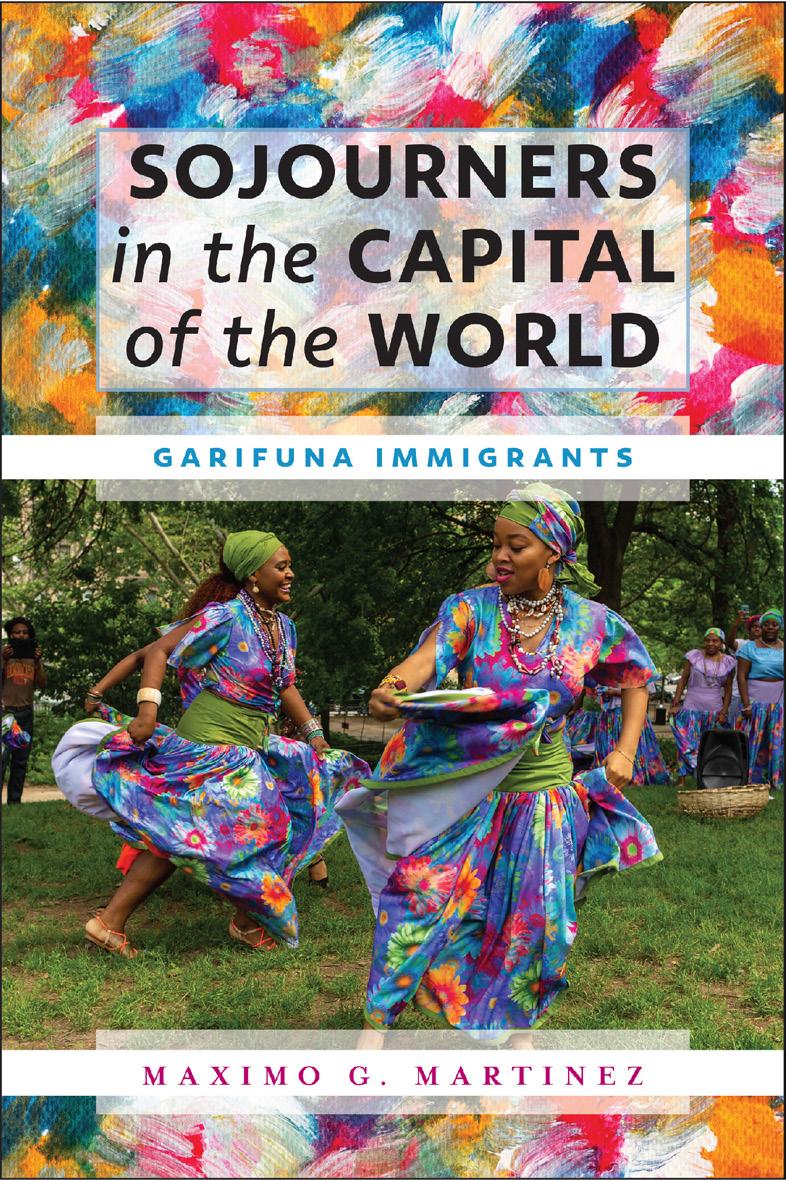
The Garifuna are integrated into the fabric of New York City as a distinctive Afro-Latinx/African Diaspora ethnic group known for its cultural and political impact. Garifuna organizations are at once concerned with creating alliances with a diversity of many other groups and also focused on dealing with issues specific to the unique culture, history, and situation of the Garifuna. They provide an interesting case study on whether and how Black ethnic groups assimilate with African Americans. And awareness of this group, its culture, and its contribution to American society is essential to understanding a growing segment of the expanding diverse Latino presence in the United States.
MAXIMO G. MARTINEZ is Professor of Government at Blinn College in Bryan, Texas. His research focuses on Latin American politics and Afro-Caribbean immigrants in the United States. He is the author of Other Hispanics: An Analysis of NYC Honduran Political Participation.
208 pages, 25 b/w illustrations
9781531504649, Paperback, $29.95 (AC), £25.99
9781531504632, Hardback, $110.00 (SDT), £99.00
Simultaneous electronic edition available
JANUARY
Islamic Studies | Gender & Sexuality | Sociology
This work received support for excellence in publication and translation from Albertine Translation, a program created by Villa Albertine.

“Current and relevant, and informed by a sensitivity and awareness of the diversity of Islamic practices.” —NIMA
NAGHIBI, AUTHOR OF WOMEN WRITE IRAN“Agnes De Féo’s thoughtful book explores a number of paradoxes. The French law of 2010 which sought to prohibit the niqab (facial veil) actually increased its use, as wearing it became a sign of resistance. Proponents of the law invoked women’s rights and gender equality to impose a limitation on how women could dress. Niqab wearers insist that it is traditional, but its adaptation in much of the Muslim world and in Europe is a recent fruit of globalized Islam. By giving voices to French women who have chosen to wear the niqab, De Féo questions much of the conventional wisdom concerning Islam and its place in European society.” —JOHN
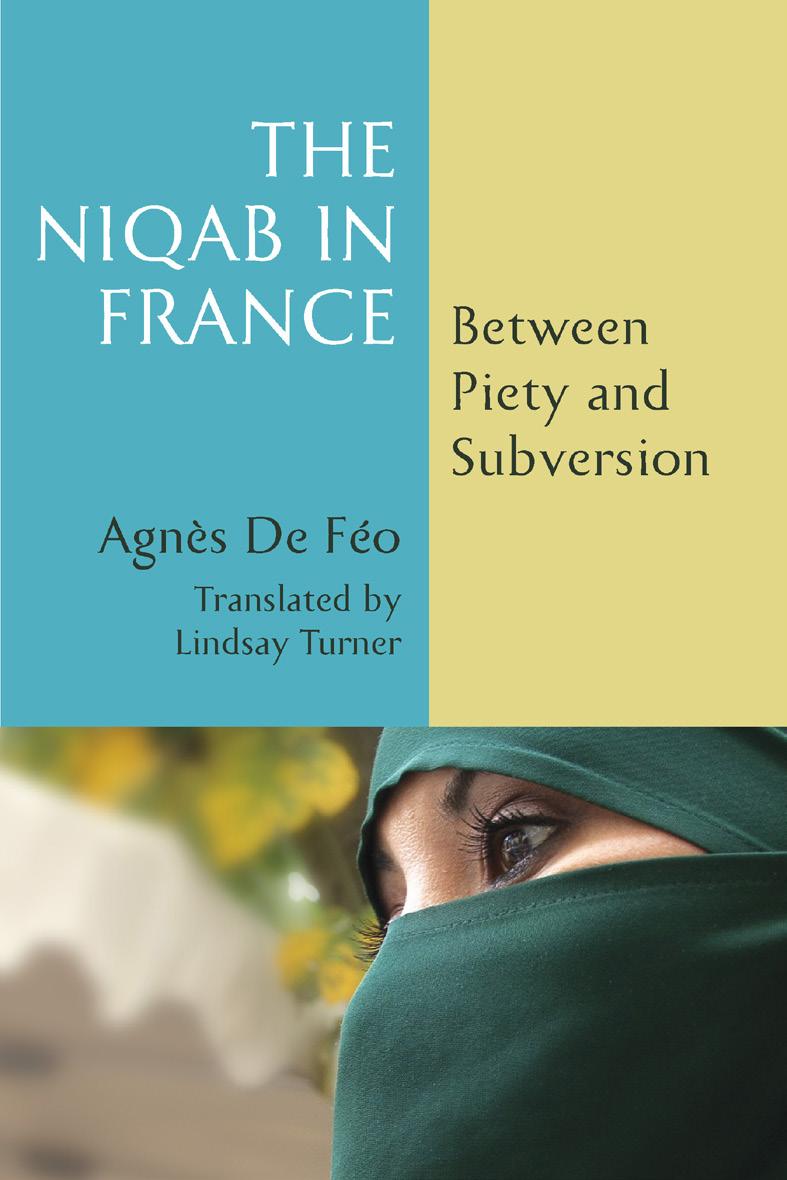 TOLAN, UNIVERSITY OF NANTES
TOLAN, UNIVERSITY OF NANTES
An intimate look at a fiercely controversial topic in contemporary Western culture and politics: a garment—the niqab, or fullface veil—and the women who choose to wear it.
This original new work is the fascinating result of sociologist and documentary filmmaker Agnès De Féo’s ten-year exploration of the phenomenon of niqab wearing. It is at once a groundbreaking study and a series of compelling first-person accounts from French and Francophone women who wear or have worn the niqab in France’s Salafi communities. With the backdrop of the French government’s 2010 ban on full facial veiling in public spaces, which itself has shaped the phenomenon, De Féo draws on her subjects’ own words to show their agency, working against the clichés that often underlie public views of the niqab—that it is purely the result of masculine pressure, for example, or of extreme religiosity or nationalism, or of the submissive desire to disappear. Instead, she shows, the niqab is multivalent: Women wear it for reasons that range from religious piety to the desire to rebel against mainstream society, family, or the rule of law. The reasons are complex, overdetermined, contradictory, or even inconsistent, but they are the women’s own.
Despite being worn only by a small minority of Muslim women, the Islamic garment has nonetheless been a major source of intense political, religious, and cultural debate in France. Searching to understand, rather than speculate, De Féo chose to approach the people who wear the niqab and to make them, rather the veil itself, the subject of her research. Her unprecedented study, based on more than 200 interviews, reveals the many factors—social, political, geopolitical, and psychological—underpinning a personal choice that is not always as religious as it seems.
The book ends with sixteen captivating interviews giving voice to stories rarely heard. With finesse and discernment, the author debunks the myths surrounding the wearing of the niqab and sheds light on a practice subject to misunderstanding and prejudice, offering the reader unique insight. Challenging our preconceived notions and stereotypes about women who wear any form of Islamic apparel, but particularly the niqab, The Niqab in France introduces a group of women each with her own life story; her own share of personal struggles, aspirations, and desires; and her own claim to a certain place in society.
AGNÈS DE FÉO is a sociologist and documentary filmmaker. Since 2008, she has been studying women in the Salafist movement in France and has made eight films on the question of the niqab. Her work on the Cham community in Vietnam and Cambodia since 2002 has resulted in five documentaries, as well as a book, Parlons Cham du Vietnam (2016).
LINDSAY TURNER is Assistant Professor of English and Creative Writing at Case Western Reserve University. She is the author of two collections of poetry and has translated books by Stéphane Bouquet, Éric Baratay, Souleymane Bachir Diagne, Anne Dufourmantelle, Richard Rechtman, Ryoko Sekiguchi, and others.

DANIEL CAMPO
384 pages, 9 × 9, 102 color and b/w illustrations
9781531504687, Paperback, $24.95 (AC), £21.99
9781531504670, Hardback, $90.00 (SDT), £81.00 Simultaneous electronic edition available Polis: Fordham Series in Urban Studies NOVEMBER Urban Studies | Sociology | Architecture
“Campo looks beneath the shiny surfaces and official histories of cities to tell the stories of how independent, resistant, and creative people are reshaping the post-industrial city. It is also a history of how the relentless ‘growth machine’ of urban redevelopment continues to undervalue the communities and cultures that have emerged at sites and districts from Pittsburgh to Buffalo. Campo’s deeply researched, compellingly argued, and thoughtfully pragmatic manifesto is a critical contribution toward a more progressive and more original American urbanism.”
“The ruins of factories and refineries in Buffalo, Detroit, and Pittsburgh offer new possibilities for revitalizing the Rust Belt, according to this architectural study from urbanist Campo.”
Chronicles grassroots efforts to recover, rebuild, and enjoy architecturally iconic but economically obsolete places in the American Rust Belt.
A pioneering Detroit automobile factory. A legendary iron mill at the edge of Pittsburgh. A campus of concrete grain elevators in Buffalo. Two monumental train stations, one in Buffalo, the other in Detroit. These once-noble sites have since fallen from their towering grace. As local elected leaders did everything they could to destroy what was left of these places, citizens saw beauty and utility in these industrial ruins and felt compelled to act. Postindustrial DIY tells their stories.
The culmination of more than a dozen years of on-the-ground investigation, ethnography, and historical analysis, author and urbanist Daniel Campo immerses the reader in this postindustrial landscape, weaving the perspectives of dozens of DIY protagonists as well as architects, planners, and preservationists. Working without capital, expertise, and sometimes permission in a milieu dominated by powerful political and economic interests, these do-it-yourself actors are driven by passion and a sense of civic duty rather than by profit or political expediency. They have craftily remade these sites into collective preservation projects and democratic grounds for arts and culture, environmental engagement, regional celebrations, itinerant play, and in-the-moment constructions. Their projects are generating excitement about the prospect of Rust Belt life, even as they often remain invisible to the uninformed passerby and fall short of professional preservation or environmental reclamation standards.
Demonstrating that there is no such thing as a site that is “too far gone” to save or reuse, Postindustrial DIY is rich with case studies that demonstrate how great architecture is not simply for the elites or the wealthy. The citizen preservationists and urbanists described in this book offer looser, more playful, and often more publicly satisfying alternatives to the development practices that have transformed iconic sites into expensive real estate or a clean slate for the next profitable endeavor. Transcending the disciplinary boundaries of architecture, historic preservation, city planning, and landscape architecture, Postindustrial DIY suggests new ways to engage, adapt, and preserve architecturally compelling sites and bottom-up strategies for Rust Belt revival.
DANIEL CAMPO, PH.D., is an urbanist and Associate Professor and Chair of the Department of Graduate Built Environment Studies in the School of Architecture and Planning at Morgan State University. He also serves as the Director of Morgan’s Graduate Program in City and Regional Planning. He is the author of The Accidental Playground: Brooklyn Waterfront Narratives of the Undesigned and Unplanned (Fordham). He was previously a planner for the New York City Department of City Planning.
“Hilary Green and Andy Slap, two extraordinary scholars of the Civil War era, have gathered a diverse group of historians to illuminate anti-Black racism in the past and present. The Civil War and the Summer of 2020 offers a mix of well-established and up-and-coming experts who detail topics that are both familiar and unknown—policing, monuments, sports, religion, resistance, and the Civil War’s impact on Australia and its Indigenous peoples. This collection of impressive essays takes a much-needed communal approach by having scholars lead history-curious readers back in time to understand the present. This book is essential reading for anyone who understands the importance of a more accurate, complex, and engaging understanding of history as a resource for building a more just world.”
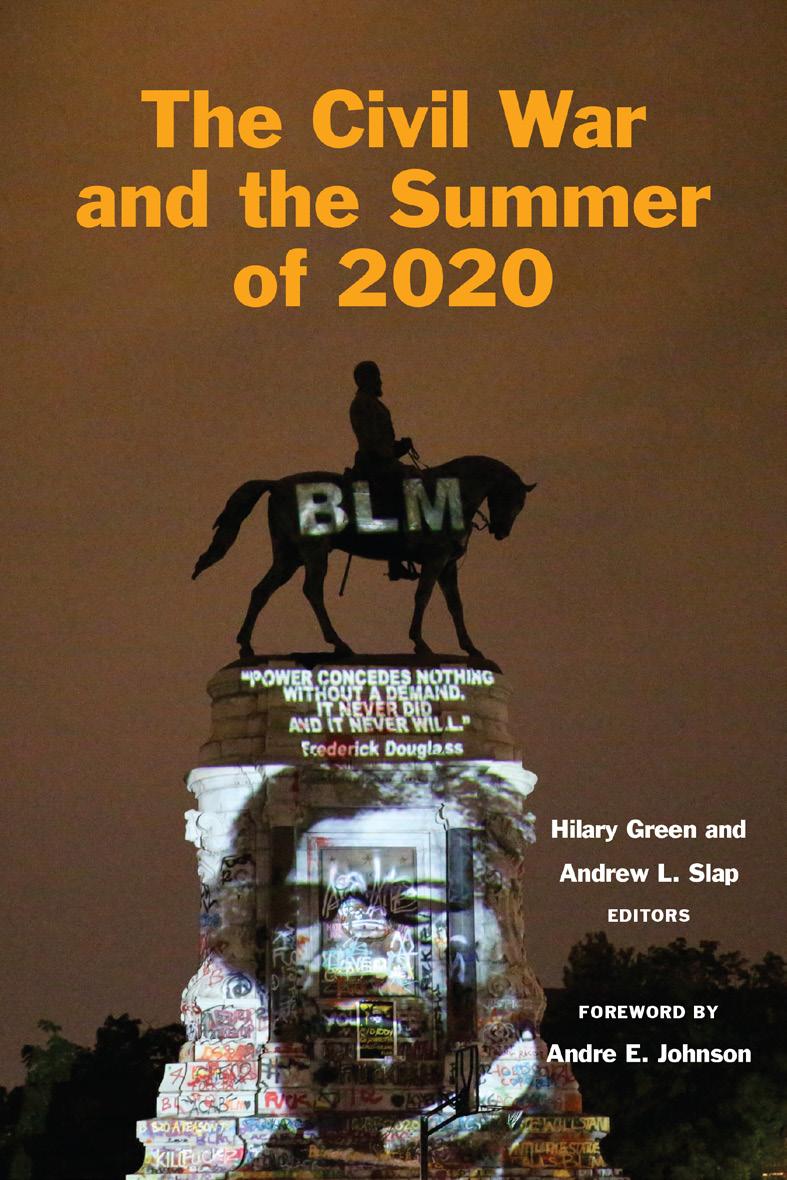
—KIDADA E. WILLIAMS, AUTHOR OF I SAW DEATH COMING: A HISTORY OF TERROR AND SURVIVAL IN THE WAR AGAINST RECONSTRUCTION , AND HOST OF THE SEIZING FREEDOM PODCAST
Investigates how Americans have remembered violence and resistance since the Civil War, including Confederate monuments, historical markers, college classrooms, and history books.
George Floyd’s murder in the summer of 2020 sparked a national reckoning for the United States that had been 400 years in the making. Millions of Americans took to the streets to protest both the murder and the centuries of systemic racism that already existed among European colonists but transformed with the arrival of the first enslaved African Americans in 1619. The violence needed to enforce that systemic racism for all those years, from the slave driver’s whip to statesponsored police brutality, attracted the immediate attention of the protesters. The resistance of the protesters echoed generations of African Americans’ resisting the violence and oppression of white supremacy. Their opposition to violence soon spread to other aspects of systemic racism, including a cultural hegemony built on and reinforcing white supremacy. At the heart of this white supremacist culture is the memory of the Civil War era, when in 1861 8 million white Americans revolted against their country to try to safeguard the enslavement of 4 million African Americans.
The volume has three interconnected sections that build on one another. The first section, “Violence,” explores systemic racism in the Civil War era and now with essays on slavery, policing, and slave patrols. The second section, titled “Resistance,” shows how African Americans resisted violence for the past two centuries, with essays discussing matters including self-emancipation and African American soldiers. The final section, “Memory,” investigates how Americans have remembered this violence and resistance since the Civil War, including Confederate monuments and historical markers.
This volume is intended for nonhistorians interested in showing the intertwined and longstanding connections between systemic racism, violence, resistance, and the memory of the Civil War era in the United States that finally exploded in the summer of 2020.
HILARY GREEN is James B. Duke Professor of Africana Studies, Africana Studies Department, Davidson College. She is the author of Educational Reconstruction: African American Schools in the Urban South, 1865–1890 (Fordham) and numerous essays and articles. In addition, she is working on two book projects—a manuscript examining how everyday African Americans remembered and commemorated the Civil War and another exploring campus slavery, race, and memory at the University of Alabama.
ANDREW L. SLAP is a Professor of history at East Tennessee State University. He is the author of The Doom of Reconstruction: The Liberal Republicans in the Civil War Era (Fordham). He is also the editor or co-editor of three volumes on the Civil War era. His current book project is “African American Communities during Slavery, War, and Peace: Memphis in the Nineteenth Century.”
ELIZABETH A. MARSHALL
176 pages, 20 color and 22 b/w illustrations
9781531505240, Paperback, $25.00 (SDT), £21.99
9781531505233, Hardback, $90.00 (SDT), £81.00
Simultaneous electronic edition available
NOVEMBER
Children’s Studies | American Studies
“Elizabeth Marshall’s The Drinking Curriculum offers up a wildly intoxicating and brilliantly persuasive tour of our culture’s tales of childhood and boozing, innocence and loss. I know of no scholarly book that is at once so humorous, startling, and deeply important, ranging from comedy to angry denunciation, all presented to us in prose that rips into our minds—and hearts.”
—JAMES R. KINCAID, AUTHOR OF EROTIC INNOCENCE: THE CULTURE OF CHILD MOLESTING“A compelling case study of precisely how our culture’s insistence on childhood purity obscures the violence that maintaining the veneer of innocence requires. The Drinking Curriculum offers an incredibly rich set of observations that ask us to think about our assumptions around maturity, sovereignty, purity, and innocence in provocative new ways.”
 —ANNA MAE DUANE, EDITOR OF THE CHILDREN’S TABLE: CHILDHOOD STUDIES AND THE HUMANITIES
—ANNA MAE DUANE, EDITOR OF THE CHILDREN’S TABLE: CHILDHOOD STUDIES AND THE HUMANITIES
In The Drinking Curriculum, Elizabeth Marshall brings the taboo topic of alcohol and childhood into the limelight. Marshall coins the term “the drinking curriculum” to describe how a paradoxical set of cultural lessons about childhood are fueled by adult anxieties and preoccupations. By analyzing popular and widely accessible texts in visual culture—temperance tracts, cartoons, film, advertisements, and public-service announcements—Marshall demonstrates how youth are targets of mixed messages about intoxication. Those messages range from the overtly violent to the humorous, the moralistic to the profane. Offering a critical and, at times, irreverent analysis of dominant protectionist paradigms that sanctify childhood as implicitly innocent, The Drinking Curriculum centers the graphic narratives our culture uses to teach about alcohol, the roots of these pictorial tales in the nineteenth century, and the discursive hangover we nurse into the twenty-first.
ELIZABETH A. MARSHALL is an associate professor at Simon Fraser University, where she teaches courses on children’s literature, childhood, and popular culture. She is the author of Graphic Girlhoods: Visualizing Education and Violence and co-author with Leigh Gilmore of Witnessing Girlhood: Toward an Intersectional Tradition of Life Writing (Fordham).
A lively exploration into America’s preoccupation with childhood innocence and its corruption.

208 pages, 20 b/w illustrations
9781531505202, Paperback, $30.00 (SDT), £25.99
9781531505196, Hardback, $105.00 (SDT), £94.00
Simultaneous electronic edition available
DECEMBER
Indigenous Studies | Media Studies | Art & Visual Culture
“In Settler Colonial Ways of Seeing, Danielle Taschereau Mamers offers an insightful and compelling account of the ideological dynamics enacted by various modes of colonial record-keeping and documentation. Further, she provides incredibly evocative analyses of how Indigenous artists have taken up these administrative modes in order to register and contest the ways they translate Native bodies and territories as the stuff of everyday settler management. This excellent, provocative study brings together visual, legal, and Indigenous studies in new ways that illustrate the import of artwork for understanding and engaging state processes.”
—MARK RIFKIN, AUTHOR OF BEYOND SETTLER TIME: TEMPORAL SOVEREIGNTY AND INDIGENOUS SELF-DETERMINATION
An innovative analysis of Indigenous strategies for overcoming the settler state.
How do bureaucratic documents create and reproduce a state’s capacity to see? What kinds of worlds do documents help create? Further, how might such documentary practices and settler colonial ways of seeing be refused?
Settler Colonial Ways of Seeing investigates how the Canadian state has used documents, lists, and databases to generate, make visible—and invisible—Indigenous identity. With an archive of legislative documents, registration forms, identity cards, and reports, Danielle Taschereau Mamers traces the political and media history of Indian status in Canada, demonstrating how paperwork has been used by the state to materialize identity categories in the service of colonial governance. Her analysis of bureaucratic artifacts is led by the interventions of Indigenous artists, including Robert Houle, Nadia Myre, Cheryl L’Hirondelle, and Rebecca Belmore. Bringing together media theories of documentation and the strategies of these artists, Settler Colonial Ways of Seeing develops a method for identifying how bureaucratic documents mediate power relations as well as how those relations may be disobeyed and re-imagined.
By integrating art-led inquiry with media theory and settler colonial studies approaches, Taschereau Mamers offers a political and media history of the documents that have reproduced Indian status. More importantly, she provides us with an innovative guide for using art as a method of theorizing decolonial political relations. This is a crucial book for any reader interested in the intersection of state archives, settler colonial studies, and visual culture in the context of Canada’s complex and violent relationship with Indigenous peoples.
DANIELLE TASCHEREAU MAMERS writes about art, documents, and visual politics. Her research has been published in CR: New Centennial Review; Settler Colonial Studies; Photography & Culture; and other academic and popular journals. She holds a Ph.D. in Media Studies from the University of Western Ontario.
LIRON MOR
288 pages, 6 b/w illustrations
9781531505448, Paperback, $32.00 (SDT), £27.99
9781531505431, Hardback, $110.00 (SDT), £99.00
Simultaneous electronic edition available
DECEMBER
Philosophy & Theory | Middle Eastern Studies | Political Science
“This ambitious book argues that ‘the Israeli–Palestinian conflict’ is simply not a conflict. In deconstructing this central yet misleading political paradigm, along with its historical uses and abuses, the author explores the uncharted cultural war zones between Hebrew and Palestinian cultural production while offering a multi-layered discussion of Mizrahi identity and literature. Choosing not to follow in the trodden path of her predecessors in the field, Mor thus emerges as a ‘discourse initiator’ who establishes a new beginning, in the Saidian sense.”
—ANTON SHAMMAS, AUTHOR OF ARABESQUES“Conflicts offers a powerful combination of literary, political, and philosophical critique to explore the asymmetries of what is known as the Israeli-Palestinian conflict. Mor takes apart the concept of conflict itself and exposes its colonial legacy and the illusion of symmetry between two even powers that it has produced.”
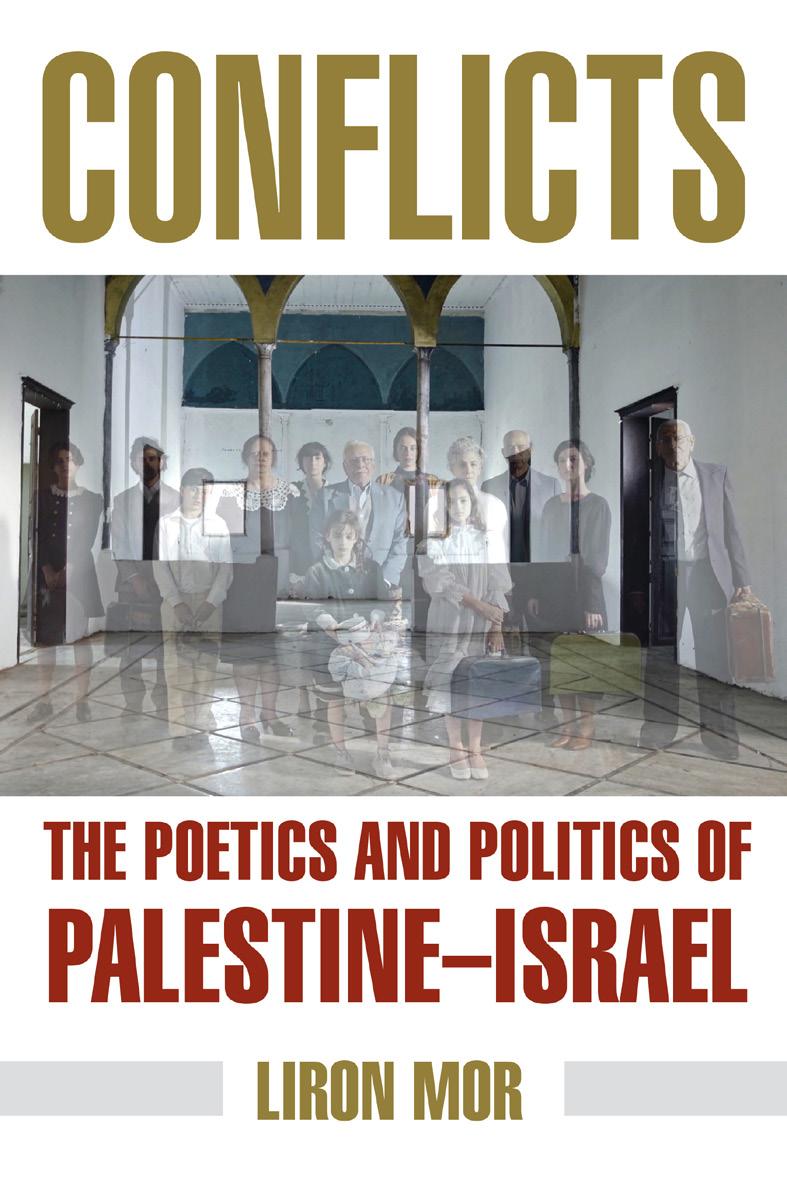 —CHANA KRONFELD, UNIVERSITY OF CALIFORNIA, BERKELEY
—CHANA KRONFELD, UNIVERSITY OF CALIFORNIA, BERKELEY
Liron Mor’s book queries what conflict means in the context of Palestine-Israel. Conflict has long been seen as singular and primary: as an “original sin” that necessitates the state and underwrites politics. This book problematizes this universal notion of conflict, revealing its colonial implications and proposing that conflicts are always politically constructed after the fact and are thus to be understood in their various specific forms.
The book explores sites of poetic and political strife in Palestine-Israel by combining a comparative study of Hebrew and Arabic literature with political and literary theory. Mor leverages an archive that ranges from the 1930s to the present, from prose and poetry to film and television, to challenge the conception of the Palestinian-Israeli context as a conflict, delineating the colonial history of this concept and showing its inadequacy to Palestine-Israel. Instead, Mor articulates locally specific modes of theorizing the antagonisms and mediations, colonial technologies, and indigenous techniques that make up the fabric of this site. The book thus offers five figurative conflictual concepts that are derived from the poetics of the works: conflict (judgment/ishtibāk), levat . im (disorienting dilemmas), ikhtifā’ (anti/colonial disappearance), h . ok . (mediating law), and inqisām (hostile severance). In so doing, Conflicts aims to generate a historically and geographically situated mode of theory-making that defies the separation between the conceptual and the poetic.
LIRON MOR is Associate Professor of Comparative Literature at the University of California, Irvine.
“This book brings the field up to date: The authors do not rehash older work and older interpretations of central texts but engage the most current debates, around gender and sexuality, connecting Africana and African American thought to Latin American thought, creolizing the canon, the question of racial realism, and the political philosophical issues raised by Indigenous resistance.”
—LINDA MARTÍN ALCOFF, HUNTER COLLEGEA trailblazing exploration of inter-American thought, dynamic debates, and multifaceted philosophical perspectives.
Philosophizing the Americas establishes the field of inter-American philosophy. Bringing together contributors who work in Africana philosophy, Afro-Caribbean philosophy, Latin American philosophy, Afro-Latin philosophy, decolonial theory, and African American philosophy, the volume examines the full range of traditions that have, separately and in conversation with one another, worked through how philosophy in both establishes itself in the Americas and engages with the world from which it emerges.
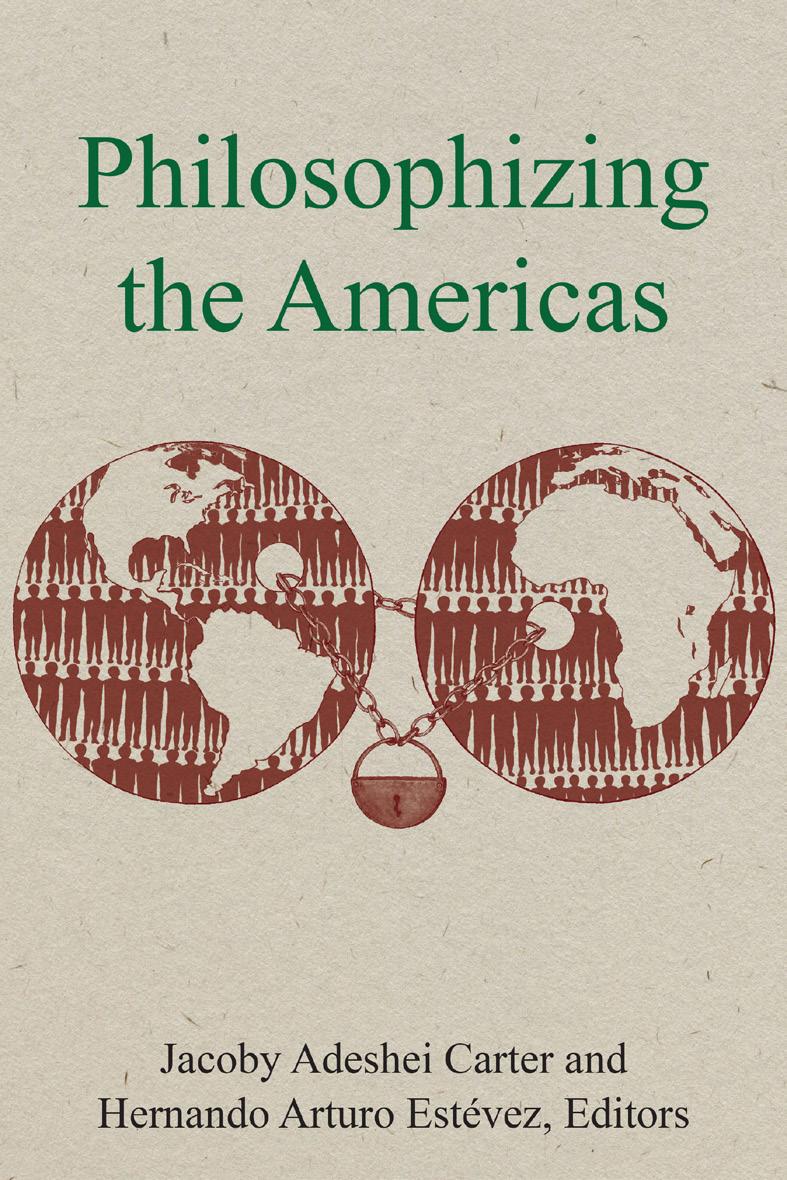
JACOBY
352 pages
9781531504915, Paperback, $35.00 (SDT), £29.99
9781531504922, Hardback, $125.00 (SDT), £112.00
Simultaneous electronic edition available
JANUARY
Philosophy & Theory | American Studies | Latin American Studies
The book traces a range of questions, from the history of philosophy in the Americas to philosophical questions of race, feminism, racial eliminativism, creolization, epistemology, coloniality, aesthetics, and literature. The essays place an impressive range of philosophical traditions and figures into dialogue with one another—some familiar, such as José Martí, Sylvia Wynter, Martin R. Delany, José Vasconcelos, and Alain Locke, as well as such less familiar thinkers as Arturo Alfonso Schomburg, Hilda Hilst, and George Lamming. In each chapter, the contributors find fascinating and productive matrices of tension or convergence in works throughout the Americas. The result is an original and important contribution to knowledge that introduces readers from various disciplines to unfamiliar yet compelling ideas and considers familiar texts from novel and prescient perspectives. Philosophizing the Americas stands alone as a representation of current scholarly debates in the field of inter-American philosophy.
JACOBY ADESHEI CARTER is Associate Professor and Chair of Philosophy at Howard University.
HERNANDO A. ESTÉVEZ is Professor and Chair of Philosophy at the Universidad de La Salle in Bogotá.
CONTRIBUTORS: Stephanie Rivera Berruz, Jacoby Adeshei Carter, Nadia Celis, Tommy J. Curry, Hernando A. Estévez, Daniel Fryer, James B. Haile III, Chike Jeffers, Lee A. McBride III, Michael Monahan, Eliana Díaz Muñoz, Adriana Novoa, Susana Nuccetelli, Andrea J. Pitts, Dwayne A. Tunstall, and Alejandro A. Vallega
“The free offer of freedom, of a capacity one is permitted to use at will, is a gift horse Ruda looks in the mouth. What he finds stowed away there is indifference and the arbitrariness of choice. The alternative he argues for is remarkable for being off-menu: a freedom won only from the negation of the given. A strongly argued, important book.”
—JOAN COPJEC, BROWN UNIVERSITY“
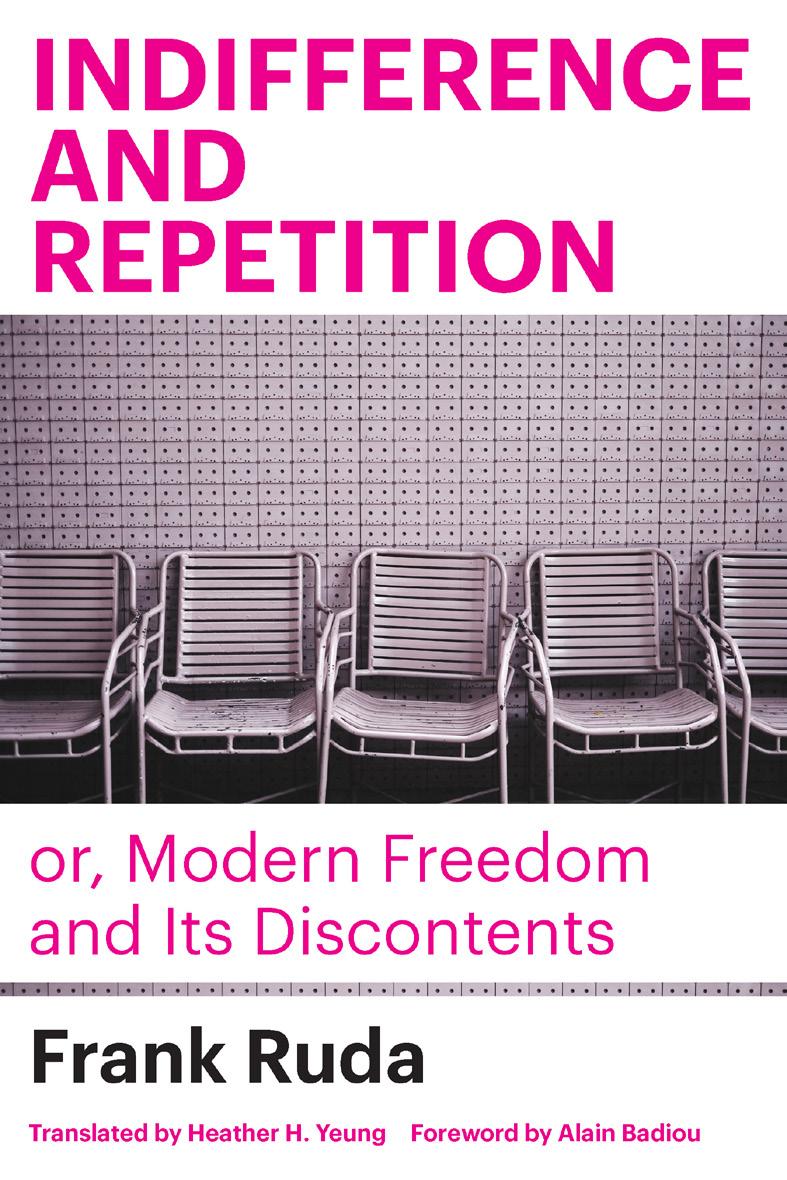
FRANK RUDA
Indifference and Repetition is a timely and interesting challenge to the modern liberal ideology that freedom is our inalienable natural right. It offers a weapon against the illusory freedom of algorithmically determined choice in increasingly virtual social interactions.”
“Ruda writes with authority, masterfully guiding readers through material that ranges from the familiar to the intriguingly obscure, while demonstrating how the latter still matters.”
In capitalism, human beings act as if they are mere animals. So we hear repeatedly in the history of modern philosophy. Indifference and Repetition examines how modern philosophy, largely coextensive with a particular boost in capitalism’s development, registers the reductive and regressive tendencies produced by capitalism’s effect on individuals and society.
Ruda examines a problem that has invisibly been shaping the history of modern, especially rationalist, philosophical thought, a problem of misunderstanding freedom. Thinkers like Descartes, Kant, Hegel, and Marx claim that there are conceptions and interpretations of freedom that lead the subjects of these interpretations to no longer act and think freely. They are often unwillingly led into unfreedom. It is thus possible that even “freedom” enslaves. Modern philosophical rationalism, whose conceptual genealogy the books traces and unfolds, assigns a name to this peculiar form of domination by means of freedom: indifference. “Indifference” is a name for the assumption that freedom is something that human beings have: a given, a natural possession. When we think freedom is natural or a possession, we lose freedom. Modern philosophy, Ruda shows, takes its shape through repeated attacks on freedom as indifference; it is the owl that begins its flight, so that the days of unfreedom will turn to dusk.
FRANK RUDA is Professor of Modern and Contemporary Philosophy at the University of Dundee, Scotland. His most recent books are Reading Hegel (with Agon Hamza and Slavoj Žižek); The Dash—The Other Side of Absolute Knowing (with Rebecca Comay); and Abolishing Freedom: A Plea for a Contemporary Use of Fatalism
HEATHER H. YEUNG is Reader in Literature (Poetry and Poetics) at the University of Dundee.
ALAIN BADIOU is former chair of the École Normale Supérieure in Paris, France, and, with Gilles Deleuze, Michel Foucault, and Jean-François Lyotard, founder of the faculty of Philosophy at the University of Paris VIII.
NAZAN ÜSTÜNDAĞ
272 pages, 13 b/w illustrations
9781531505523, Paperback, $30.00 (SDT), £25.99
9781531505516, Hardback, $105.00 (SDT), £94.00 Simultaneous electronic edition available
“This is a brilliantly original reading of the nature of the resistance to the Turkish state’s Kurdish policies by the Kurdish Women’s Freedom Movement. The book is beautifully written, even lyrical in places, a kind of poetic tribute to the possibilities this movement embodies.”—
JOAN WALLACH SCOTT, INSTITUTE FOR ADVANCED
“The Mother, the Politician, and the Guerrilla is a captivating story of Kurdish women persuading us to listen attentively to women’s political imagination. Drawing from postcolonial, decolonial, and Black studies, the book poetically narrates and eloquently theorizes the Kurdish women’s power to transform the ruling relations.”
—SHAHRZAD MOJAB, CO-AUTHOR OF REVOLUTIONARY LEARNING: MARXISM, FEMINISM AND KNOWLEDGE
The Mother, the Politician, and the Guerrilla intervenes in discussions on decolonialism and feminism by introducing the example of the Kurdish Women’s Freedom Movement. Üstündağ shows how the practices and the concepts of the movement contribute to debates on how the past, present, and future can be critically re-thought in revolutionary ways.
In the movement’s images, figures, voices, bodies, and their reverberations Üstündağ elaborates a new political imagination that has emerged in Kurdistan through women’s acts and speech. This political imagination unfolds between flesh, body, voice, and language. It is the result of Kurdish women’s desire to find new ways of being and becoming, between the necessary and the possible.
Focusing on the figures of the mother, the woman politician and woman guerrilla, Üstündağ argues that the Kurdish Women’s Freedom Movement changes what politics consists of, including its matter, relationality, temporality, and spatiality. Although anchored in the specific Kurdish experiences, the book puts the movement into conversation with feminist political theory, psychoanalysis, Black studies, Queer studies, and Decolonial studies. In solidarity with the Kurdish Movement’s tradition of resistance to History with a capital H that Kurds have built through reiterated performance, the book seeks to establish what new entanglements with wide-ranging thought the movement offers as a provocation for contemporary politics.
NAZAN ÜSTÜNDAĞ is Patrimonies Program Fellow at the Gerda Henkel Foundation.
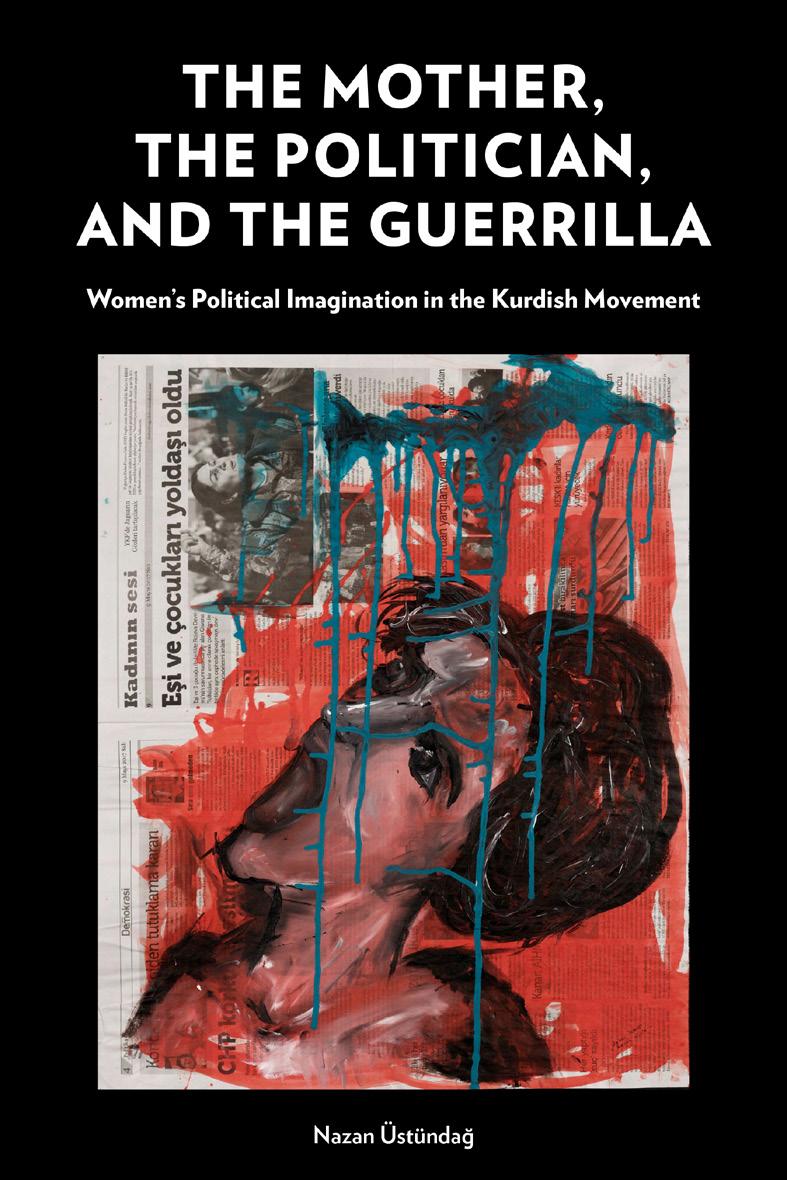
“
Singing with the Mountains is highly valuable for those of us interested in the complex and multiple regional histories of Islam, especially those marginalized ‘heterodox’ groups and local traditions that are so often left out of the popular imaginary of Islam as an unbroken monolith. Sherman’s achievement here is substantial and exciting.”
—MICHAEL MUHAMMAD KNIGHT, AUTHOR OF SUFI DELEUZE: SECRETIONS OF ISLAMIC ATHEISMAn illuminating story of a Sufi community that sought the revelation of God.
In the Afghan highlands of the sixteenth century, the messianic community known as the Roshaniyya not only desired to find God’s word and to abide by it but also attempted to practice God’s word and to develop techniques of language intended to render their own tongues as the organs of continuous revelation. As their critics would contend, however, the Roshaniyya attempted to make language do something that language should not do—infuse the semiotic with the divine. Their story thus ends in a tower of skulls, the proliferation of heresiographies that detailed the sins of the Roshaniyya, and new formations of “Afghan” identity.
In Singing with the Mountains, William E. B. Sherman finds something extraordinary about the Roshaniyya, not least because the first known literary use of vernacular Pashto occurs in an eclectic, Roshani imitation of the Qur’an. The story of the Roshaniyya exemplifies a religious culture of linguistic experimentation. In the example of the Roshaniyya, we discover a set of questions and anxieties about the capacities of language that pervaded Sufi orders, imperial courts, groups of wandering ascetics, and scholastic networks throughout Central and South Asia.
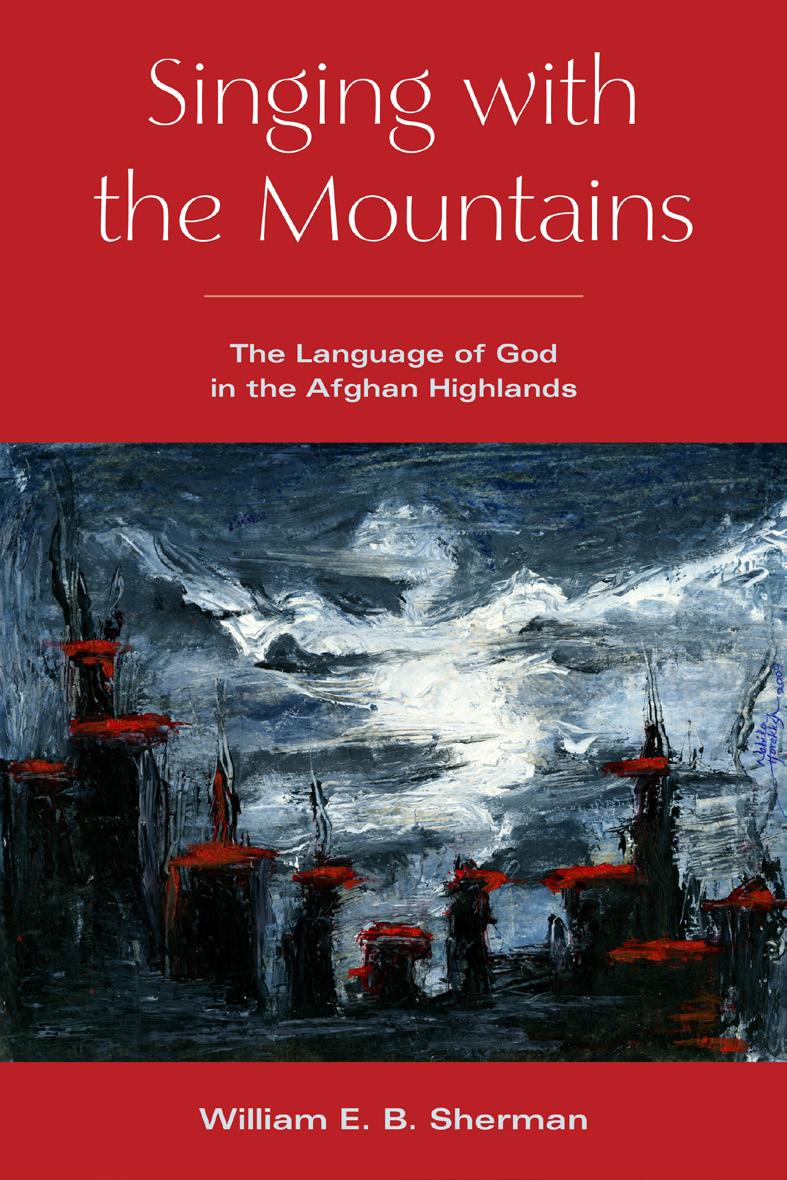
In telling this tale, Sherman asks the following questions: How can we make language shimmer with divine truth? How can letters grant sovereign power and form new “ethnic” identities and ways of belonging? How can rhyme bend our conceptions of time so that the prophetic past comes to inhabit the now of our collective moment? By analyzing the ways in which the Roshaniyya answered these types of questions—and the ways in which their answers were eventually rejected as heresies—this book offers new insight into the imaginations of religious actors in the late medieval and early modern Persianate worlds.
WILLIAM E. B. SHERMAN is an Assistant Professor of Islamic Studies in the Department of Religious Studies at the University of North Carolina at Charlotte.
CHRISTOPHER ROVEE
272 pages, 7 b/w illustrations
9781531505127, Paperback, $32.00 (SDT), £27.99
9781531505110, Hardback, $110.00 (SDT), £99.00
Simultaneous electronic edition available
Lit Z
JANUARY
Literary Studies | Education
“With its fascinating and unusual archive, its compelling strands of argument, and its lucid writing, New Critical Nostalgia offers an original understanding of New Criticism and romantic poetry’s role in the development of American literary studies.”
—KEVIS GOODMAN, UNIVERSITY OF CALIFORNIA, BERKELEY“This accomplished book—through a meticulous reconstruction of the uncanny encounter between New Criticism and British Romanticism—takes us straight into the scene of reading itself. And there it remains, through one mesmerizing case study after another. Irreducible to either history or criticism, Rovee’s book weaves these two methods, or perspectives, together so that, in their steady pulsations, they illuminate one another’s corresponding powers.”
New Critical Nostalgia weighs the future of literary study by reassessing its past. It tracks today’s impassioned debates about method back to the discipline’s early professional era, when an unprecedented makeover of American higher education with far-reaching social consequences resulted in what we might call our first crisis of academic life. Rovee probes literary study’s nostalgic attachments to this past by recasting an essential episode in the historiography of English—the vigorous rejection of Romanticism by American New Critics—in the new light of the American university’s tectonic growth. In the process, he demonstrates literary study’s profound investment in Romanticism and reveals the Romantic lyric’s special affect, nostalgia, as having been part of English’s professional identity all along.

New Critical Nostalgia meticulously shows what is lost in reducing mid-century American criticism and the intense, quirky, and unpredictable writings of central figures, such as Cleanth Brooks, Josephine Miles, and W. K. Wimsatt, to a glib monolith of New Critical anti-Romanticism. In Rovee’s historically rich account, grounded in analysis of critical texts and enlivened by archival study, readers discover John Crowe Ransom’s and William Wordsworth’s shared existential nostalgia, witness the demolition of the “immature” Percy Shelley in the revolutionary textbook Understanding Poetry, explore the classroom give-and-take prompted by the close reading of John Keats, consider the strange ambivalence toward Lord Byron on the part of formalist critics and romantic scholars alike, and encounter the strikingly contemporary quantitative studies by one of the mid-century’s preeminent poetry scholars, Josephine Miles. These complex and enthralling engagements with the Romantic lyric introduce the reader to a dynamic intellectual milieu in which professionals with varying methodological commitments (from New Critics to computationalists), working in radically different academic locales (from Nashville and New Haven to Baton Rouge and Berkeley), wrangled over what it means to read, with nothing less than the future of the discipline at stake.
CHRISTOPHER ROVEE is Associate Professor of English at Louisiana State University. He is the author of Imagining the Gallery: The Social Body of British Romanticism.
CHRISTOPHER G o GWILT
240 pages, 12 b/w illustrations
9781531505080, Paperback, $32.00 (SDT), £27.99
9781531505073, Hardback, $105.00 (SDT), £94.00
“In an exhilarating exploration of the letter K and other micro-textual details across a range of writing systems, GoGwilt re-examines the history of romanization and its entanglement with Arabic, Chinese, and other major scripts. A fascinating range of modernist texts converge to form a powerful archive of exile, encounter, conflict, and transformative shifts in modern global history. A bold experiment in comparative method.”
—LYDIA H. LIU, AUTHOR OF THE FREUDIAN ROBOT: DIGITAL MEDIA AND THE FUTURE OF THE UNCONSCIOUS“No one has ever drawn, from the history of romanization and the shifting norms of transliteration, such subtle insights into the linguistic, social, and aesthetic forms of modernity as Christopher GoGwilt, and across so vast a world of scripts and languages. He has given us a truly innovative, eye-opening book.”
—SHELDON POLLOCK, COLUMBIA UNIVERSITYThe K-Effect shows how the roman alphabet has functioned as a standardizing global model for modern print culture. Investigating the history and ongoing effects of romanization, Christopher GoGwilt reads modernism from a global and comparative perspective through the works of Joseph Conrad and others.
The book explores the ambiguous effect of romanized transliteration both in the service of colonization and as an instrument of decolonization. This simultaneously standardizing and destabilizing effect is abbreviated in the way the letter K indexes changing hierarchies in the relation between languages and scripts. The book traces this K-effect through the linguistic work of transliteration and its aesthetic organization in transnational modernism.
The book examines a variety of different cases of romanization: the historical shift from Arabic script to romanized print form in writing Malay; the politicization of language and script reforms across Russia and Central Europe; the role of Chinese debates about romanization in shaping global transformations in print media; and the place of romanization between ancient Sanskrit models of language and script and contemporary digital forms of coding. Each case study develops an analysis of Conrad’s fiction read in comparison with such other writers as James Joyce, Lu Xun, Franz Kafka, and Pramoedya Ananta Toer.
The first sustained cultural study of romanization, The K-Effect proposes an important new way to assess the multilingual and multiscript coordinates of modern print culture.
CHRISTOPHER G o GWILT is Professor of English and Comparative Literature at Fordham University. He is the author of The Passage of Literature: Genealogies of Modernism in Conrad, Rhys, and Pramoedya (Winner, Modernist Studies Association Book Prize); The Fiction of Geopolitics: Afterimages of Culture from Wilkie Collins to Alfred Hitchcock; and The Invention of the West: Joseph Conrad and the Double-Mapping of Europe and Empire.
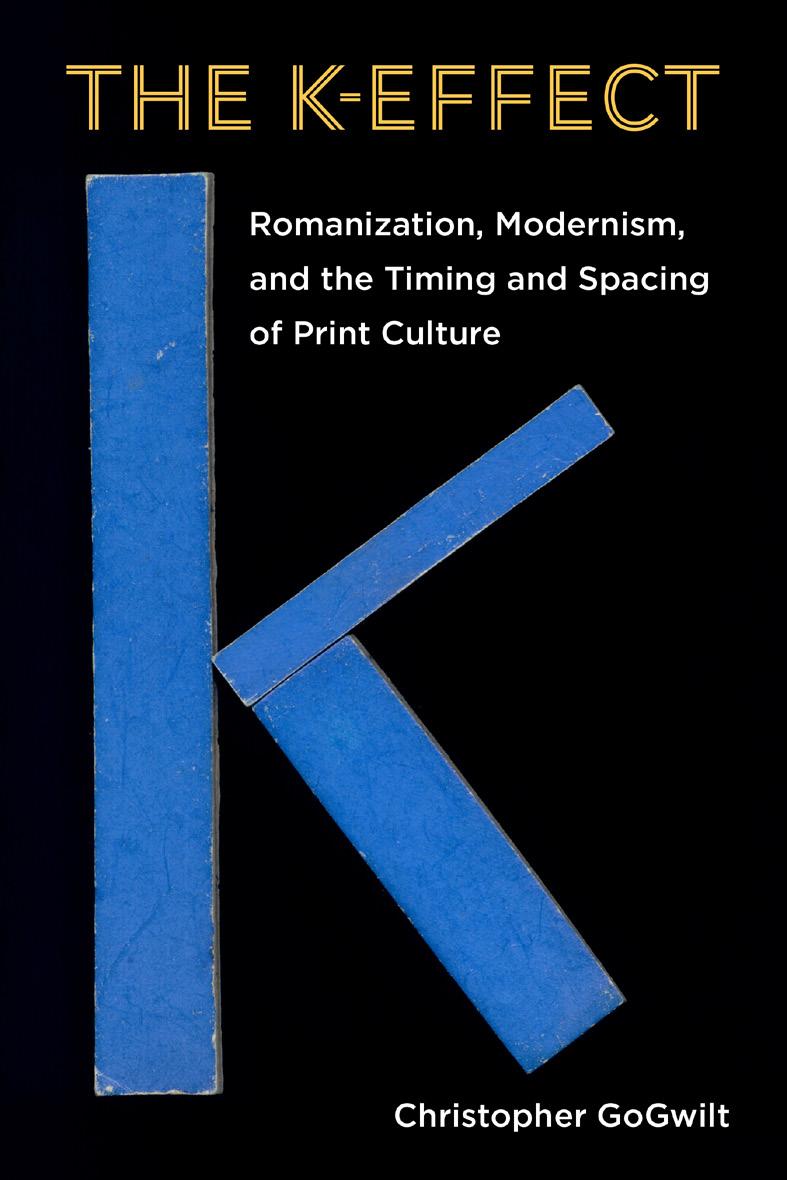
“
ELMO GONZAGA
272 pages, 14 b/w illustrations
9781531505288, Paperback, $35.00 (SDT), £29.99
9781531505271, Hardback, $125.00 (SDT), £112.00
Simultaneous electronic edition available
NOVEMBER
Urban Studies | Asian Studies | Race & Ethnic Studies
Monsoon Marketplace is innovative in its historical and inter-Asian scope and makes important contributions regarding Global, Asian, and Southern media cultures outside of North Atlantic media studies, area studies, and North-South juxtapositions.”
Provides vivid accounts of commercial and leisure spaces that captivated the public imagination in the past but have since been destroyed, forgotten, or refurbished.
Monsoon Marketplace uncovers the entangled vernacular cultures of capitalist modernity, mass consumption, and media spectatorship in two understudied postcolonial Asian cities across three crucial historical moments. Juxtaposing Manila and Singapore, it analyzes print and audiovisual representations of popular commercial and leisure spaces during the colonial occupation in the 1930s, national development in the 1960s, and neoliberal globalization in the 2000s. Engaging with the work of creators including Nick Joaquin, Kevin Kwan, and P. Ramlee, it discusses figures of female shoppers in 1930s Manila, languid expatriates in 1930s Singapore, street hawkers in 1960s Singapore, youthful activists in 1960s Manila, call center agents in 2000s Manila, and super-rich investors in 2000s Singapore. Looking at the historical transformation of Calle Escolta, Avenida Rizal, Raffles Place, and Orchard Road, it focuses on Crystal Arcade, the Manila Carnival, the Great World and New World Amusement Parks, and Change Alley, all of which had once captivated the public imagination but have since vanished from the cityscape. Instead of treating capitalism, media, and modernity as overarching systems or processes, the book examines how their configurations and experiences are contingent, variable, pluralistic, and archipelagic. Diverging from critical theories and cultural studies that see consumerism and spectatorship as sources of alienation, docility, and fantasy, it explores how they create new possibilities for agency, collectivity, and resistance.
ELMO GONZAGA is an Assistant Professor in the Division of Cultural Studies and Associate Director of the MA in Intercultural Studies at The Chinese University of Hong Kong (CUHK). His work has appeared in the Journal of Cinema and Media Studies, Cultural Studies, Verge: Studies in Global Asias, South East Asia Research, and the Journal of Asian Studies.

MEGAN COLE PAUSTIAN
288 pages
9781531505486, Paperback, $35.00 (SDT), £29.99
9781531505479, Hardback, $125.00 (SDT), £112.00
Simultaneous electronic edition available
JANUARY
African Studies | Literary Studies | Postcolonial Studies
“Paustian shows how imaginative literature by African writers equips us to move beyond Eurocentric representations of Africa that depend on colonialist and naïve neoliberal ideas. The book sets out engaging readings of African literature, using the notion of ‘humanitarian fictions’ as an analytical category and a political challenge that takes us toward big questions of ethics, history, and ongoing human interactions.”
—OLAKUNLE GEORGE, BROWN UNIVERSITY“Humanitarian Fictions manages throughout to be critical without being dismissive and constructs a humanitarian vision that is acutely sensitive to its own predicament.”
—JEANNE-MARIE JACKSON, JOHNS HOPKINS UNIVERSITYA groundbreaking exploration of African literature that defies colonialist and neoliberal ideas.
Humanitarianism has a narrative problem. Far too often, aid to Africa is envisioned through a tale of Western heroes saving African sufferers. While labeling white savior narratives has become a familiar gesture, it doesn’t tell us much about the story as story. Humanitarian Fictions aims to understand the workings of humanitarian literature, as they engage with and critique narratives of Africa. Overlapping with but distinct from human rights, humanitarianism centers on a relationship of assistance, focusing less on rights than on needs, less on legal frameworks than on moral ones, less on the problem than on the nonstate solution. Tracing the white savior narrative back to religious missionaries of the nineteenth century, Humanitarian Fiction reveals the influence of religious thought on seemingly secular institutions and uncovers a spiritual, collectivist streak in the discourse of humanity.
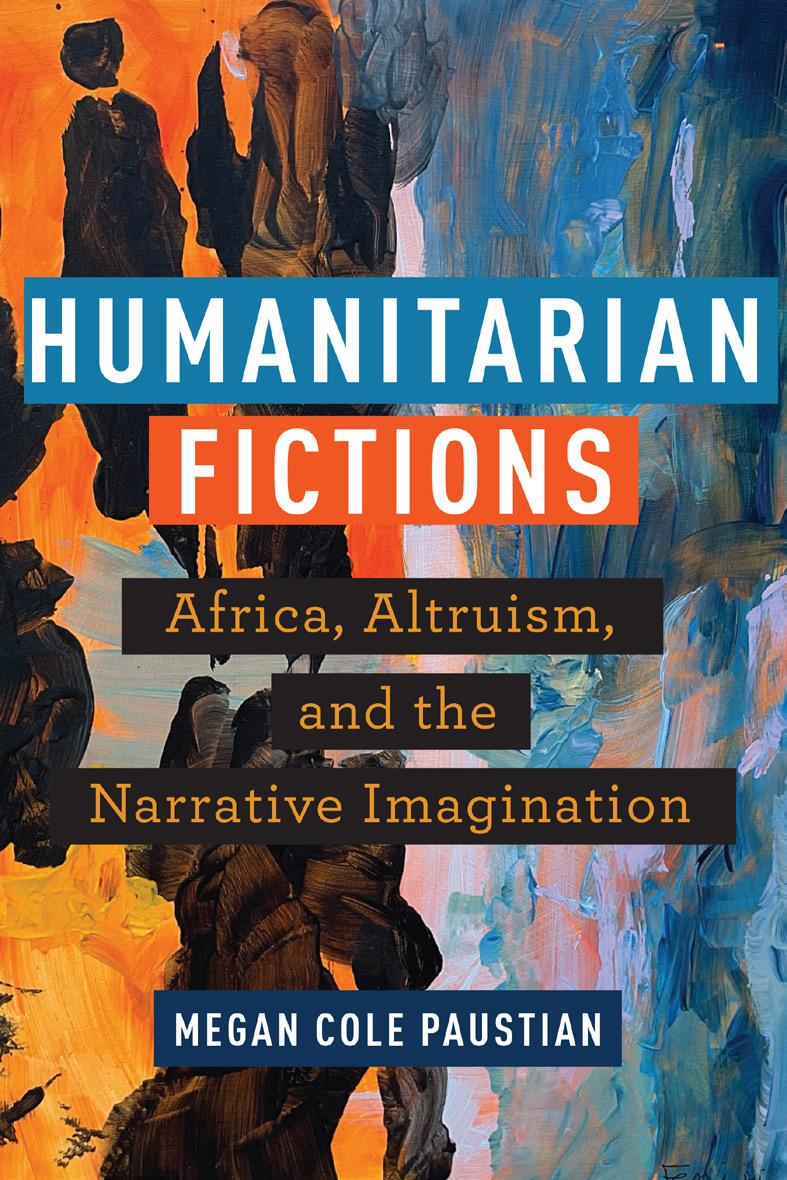
Because the humanitarian model of care transcends the boundaries of the state, and its networks touch much of the globe, Humanitarian Fictions redraws the boundaries of literary classification based on a shared problem space rather than on a shared national space. The book maps a transnational vein of anglophone literature about Africa that features missionaries, humanitarians, and their so-called beneficiaries. Putting humanitarian thought in conversation with postcolonial critique, this book brings together African, British, and U.S. writers typically read within separate traditions. Paustian shows how the novel—with its profound sensitivity to narrative—can enrich the critique of white saviorism while also imagining alternatives that give African agency its due.
MEGAN COLE PAUSTIAN is Associate Professor of English at North Central College.
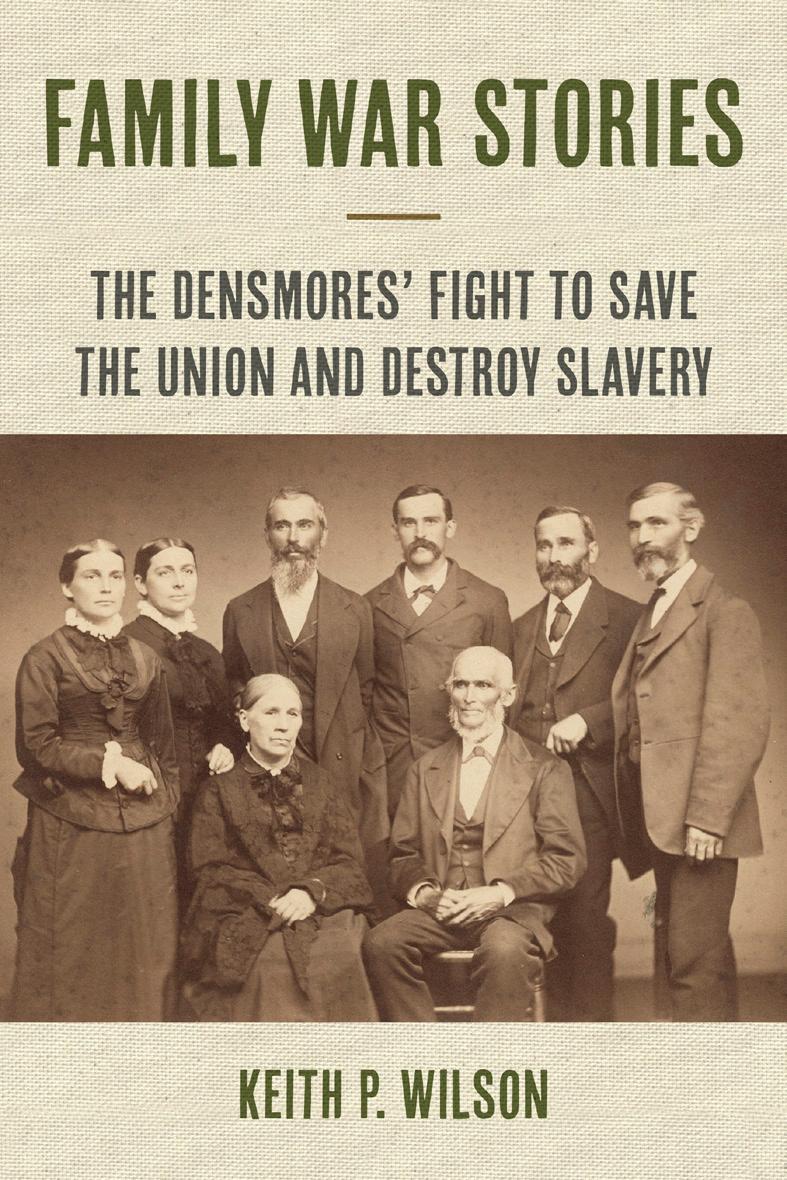
KEITH P. WILSON
“The letters contain valuable insight on an array of topics that expand our understanding of the Civil War, the war in the West, the experiences of soldiers and officers in the United States Colored Troops, the experiences on the northern home front, and the intimate relationships that existed between family members during this period.”
—RYAN W. KEATING, PROFESSOR OF HISTORY, CALIFORNIA STATE UNIVERSITY SAN BERNARDINOBased on an extensive collection of letters written from the home front and the battlefront, Family War Stories offers fresh insights into how the reciprocal nature of family correspondence can shape a family’s understanding of the war.
Family War Stories examines the contribution of the Densmore family to the Northern Civil War effort. It extends the boundaries of research in two directions. First, by describing how members of this white family from Minnesota were mobilized to fight a family war on the home front and the battlefront, and second, by exploring how the war challenged the family’s abolitionist beliefs and racial attitudes. Family War Stories argues that the totality of the family’s Civil War experience was intricately shaped by the dynamics of family life and the reciprocal nature of family correspondence. Further, it argues that the serving sons’ understanding of the war was shaped by their direct military experiences in the army camps and battlefields and how their loved ones at home interpreted these experiences.
With two sons serving as officers in the United States Colored Troops’ regiments fighting in the Mississippi Valley, the Densmore family was heavily involved in destroying slavery. Family War Stories analyses how the sons’ military experiences tested the family’s abolitionist ideology and its commitment to white racial superiority. It also explains how the family sought to accommodate the presence of a refugee from slavery working in the family kitchen. In some ways, the presence of this worker in the household posed an even greater range of challenges to the family’s racial beliefs than the sons’ military service.
By examining one family’s deep involvement in the war against slavery, Wilson analyses how the Civil War posed particular challenges to Northerners committed to abolitionism and white supremacy.
KEITH P. WILSON is a retired university lecturer affiliated with Monash University, Melbourne, Australia. His books include Campfires of Freedom: The Camp Life of Black Soldiers during the Civil War and ed. Honor in Command: Lt. Freeman S. Bowley’s Civil War Service in the 30th United States Colored Infantry.
“
288 pages, 4 b/w illustrations
9781531505608, Paperback, $35.00 (SDT), £29.99
9781531505592, Hardback, $125.00 (SDT), £112.00
Simultaneous electronic edition available
Reconstructing America
OCTOBER
Politics | History | Race & Ethnic Studies
Abolitionist Twilights is a must read for intellectual historians of the Civil War era. Krohn provides an in depth analysis of the conceptual limitations that made white abolitionists problematic allies in the years following the war. His book also provides context in the longer narrative of allyship and its shortcomings in the quest for AfricanAmerican civil rights.”
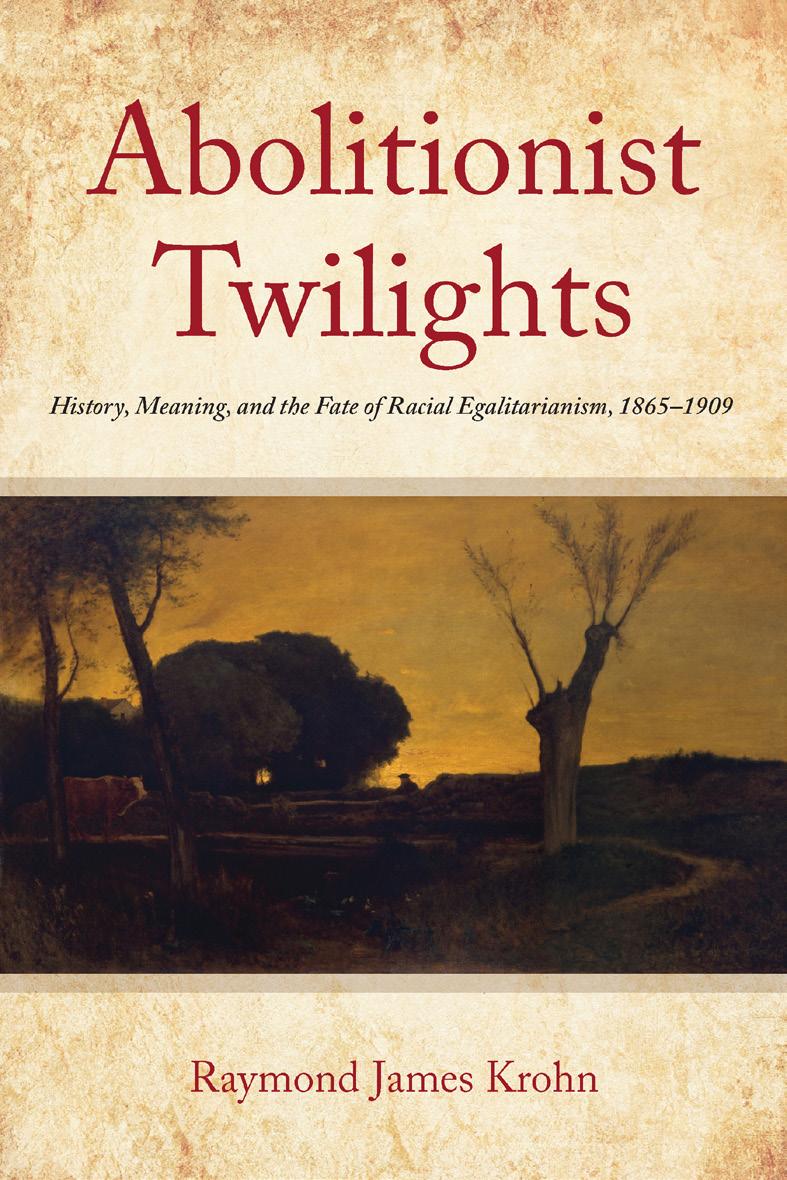
—JOHN A. CASEY, AUTHOR OF NEW MEN: RECONSTRUCTING THE IMAGE OF THE VETERAN IN LATE-NINETEENTH-CENTURY AMERICAN LITERATURE AND CULTURE
Provides unique insight into Reconstruction’s downfall and Jim Crow’s emergence.
In the years and decades following the American Civil War, veteran abolitionists actively thought and wrote about the campaign to end enslavement immediately. This study explores the late-in-life reflections of several antislavery memorial and historical writers, evaluating the stable and shifting meanings of antebellum abolitionism amidst dramatic changes in postbellum race relations. By investigating veteran abolitionists as movement chroniclers and commemorators and situating their texts within various contexts, Raymond James Krohn further assesses the humanitarian commitments of activists who had valued themselves as the enslaved people’s steadfast friends.
Never solely against slavery, post-1830 abolitionism challenged widely held anti-Black prejudices as well. Dedicated to emancipating the enslaved and elevating people of color, it equipped adherents with the necessary linguistic resources to wage a valiant, sustained philanthropic fight. Abolitionist Twilights focuses on how the status and condition of the freedpeople and their descendants affected book-length representations of antislavery persons and events. In probing veteran–abolitionist engagement in or disengagement from an ongoing African American freedom struggle, this ambitious volume ultimately problematizes scholarly understandings of abolitionism’s racial justice history and legacy.
RAYMOND JAMES KROHN is an Assistant Professor of History at Boise State University. As a historian of the United States, he specializes in the eighteenth and nineteenth centuries, slavery and abolition, social movements, and political, intellectual, and cultural history.
368 pages, 12 b/w illustrations
9781531504960, Paperback, $35.00 (SDT), £29.99
9781531504953, Hardback, $125.00 (SDT), £112.00
Simultaneous electronic edition available
World War II: The Global, Human, and Ethical Dimension DECEMBER
History | Literary Studies | Religion
“Thanks to multidisciplinary approaches, Shadows of Nagasaki situates the historiography of the atomic bombing in a broader context of Nagasaki history and beyond, which demonstrates a new approach to memory-making practice.”
—YUKI MIYAMOTO, PROFESSOR AT DEPAUL UNIVERSITY, AND AUTHOR OF BEYOND THE MUSHROOM CLOUD: COMMEMORATION, RELIGION, AND RESPONSIBILITY AFTER HIROSHIMA
A critical introduction to how the Nagasaki atomic bombing has been remembered, especially in contrast to that of Hiroshima.
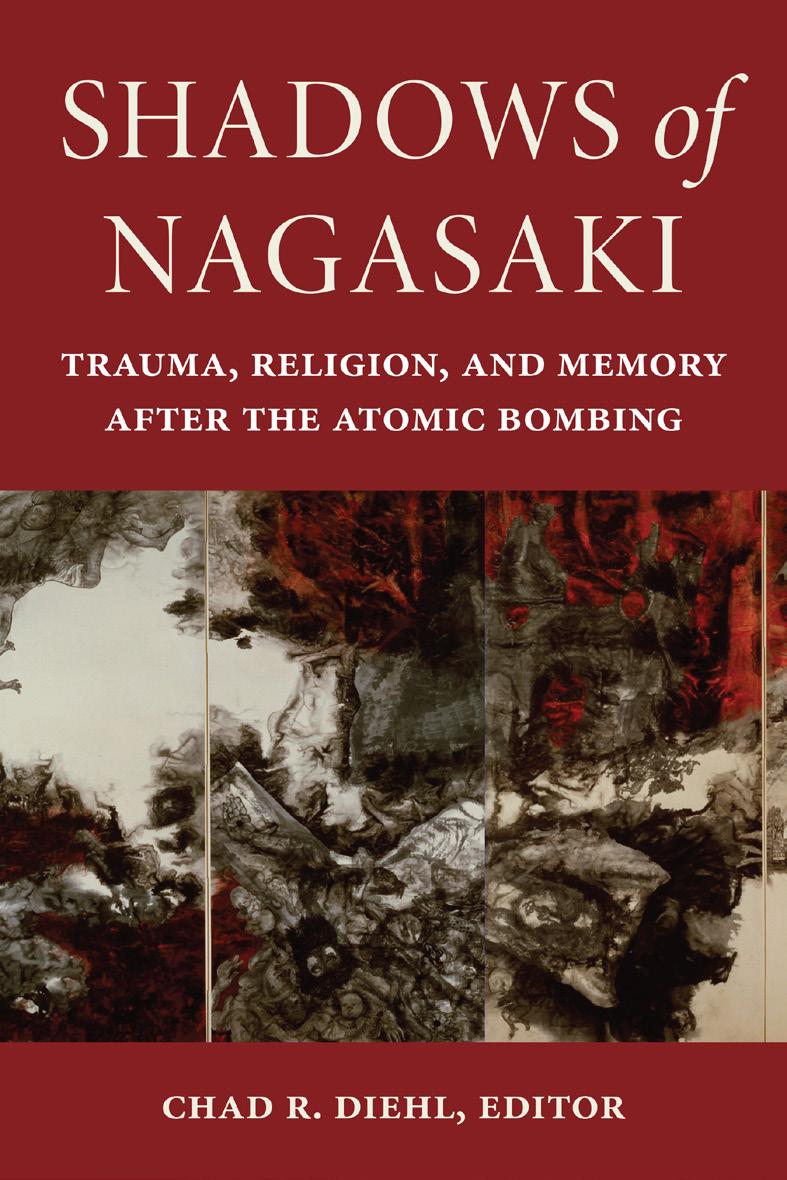
In the decades following the atomic bombing of Nagasaki on August 9, 1945, the city’s residents processed their trauma and formed narratives of the destruction and reconstruction in ways that reflected their regional history and social makeup. In doing so, they created a multi-layered urban identity as an atomic-bombed city that differed markedly from Hiroshima’s image. Shadows of Nagasaki traces how Nagasaki’s trauma, history, and memory of the bombing manifested through some of the city’s many post-atomic memoryscapes, such as literature, religious discourse, art, historical landmarks, commemorative spaces, and architecture. In addition, the book pays particular attention to how the city’s history of international culture, exemplified best perhaps by the region’s Christian (especially Catholic) past, informed its response to the atomic trauma and shaped its postwar urban identity. Key historical actors in the volume’s chapters include writers, JapaneseCatholic leaders, atomic-bombing survivors (known as hibakusha), municipal officials, American occupation personnel, peace activists, artists, and architects. The story of how these diverse groups of people processed and participated in the discourse surrounding the legacies of Nagasaki’s bombing shows how regional history, culture, and politics—rather than national ones—become the most influential factors shaping narratives of destruction and reconstruction after mass trauma. In turn, and especially in the case of urban destruction, new identities emerge and old ones are rekindled, not to serve national politics or social interests but to bolster narratives that reflect local circumstances.
CHAD R. DIEHL is an Instructional Designer at UVA and the author of Resurrecting Nagasaki: Reconstruction and the Formation of Atomic Narratives.
240 pages
9781531505165, Paperback, $30.00 (SDT), £25.99
9781531505158, Hardback, $105.00 (SDT), £94.00
Simultaneous electronic edition available World War II: The Global, Human, and Ethical Dimension
From combat novels to the corporate thriller, Beyond Hostile Islands examines the literary history of the Pacific War, while interrogating stereotypical renditions of the Japanese. The Pacific theatre is/was intrinsically archipelagic, and McKay - aware of an uneasy US-NZ juxtaposition - warns us that source material from island cultures/authors may unsettle, but also align with, continental world views. Beyond Hostile Islands is binary-bashing: it upsets culturalist, colonialist and imperialist narratives, exposing a messier humanity, and thus uncovers commonality amidst the dissimilar.
—GODFREY BALDACCHINO, PROFESSOR OF SOCIOLOGY, UNIVERSITY OF MALTA. FOUNDING EDITOR, ISLAND STUDIES JOURNAL ; FORMER PRESIDENT, INTERNATIONAL SMALL ISLANDS STUDIES ASSOCIATION (ISISA)
“Daniel McKay’s Beyond Hostile Islands is a well-researched and nuanced examination of fiction that deals—in various ways—with the Pacific theatre of World War II.”
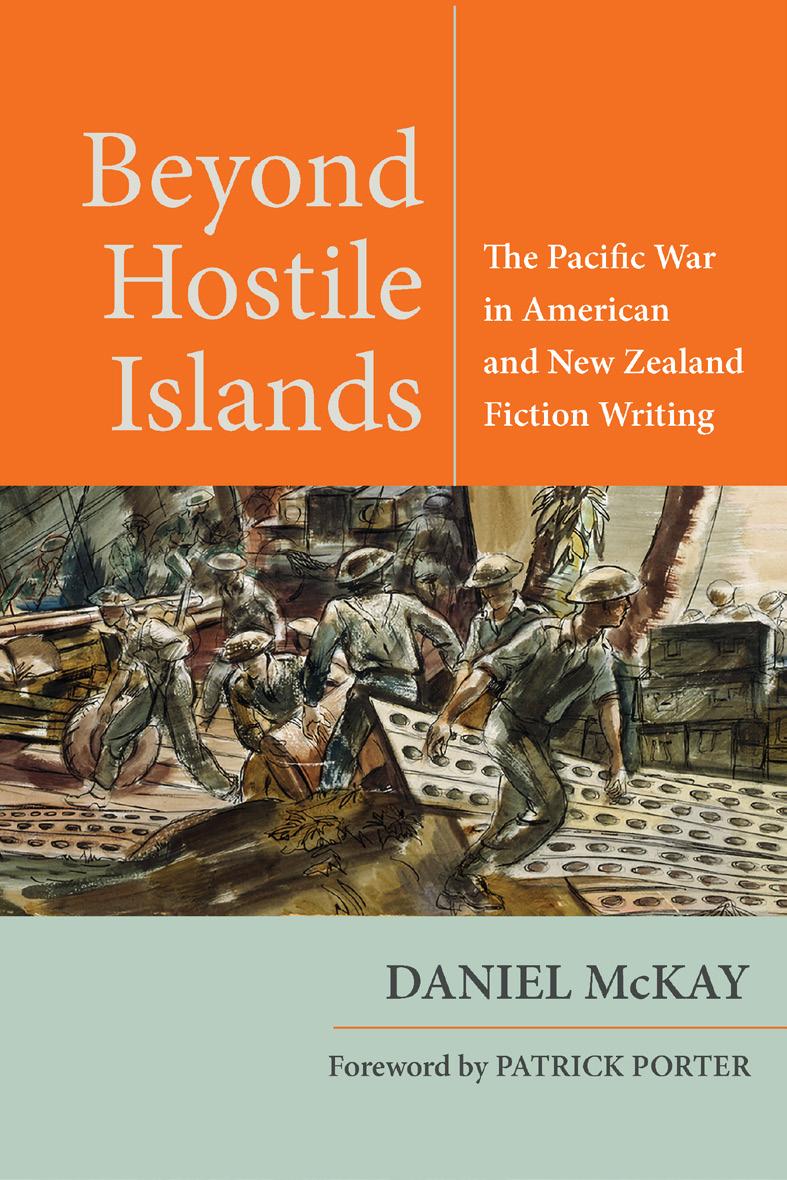
—ERIN MERCER, SENIOR LECTURER IN ENGLISH AT MASSEY UNIVERSITY, AND AUTHOR OF TELLING THE REAL STORY: GENRE AND NEW ZEALAND LITERATURE
Offers a fascinating window into how the fraught politics of apology in the East Asian region have been figured in anglophone literary fiction.
The Pacific War, 1941-1945, was fought across the world’s largest ocean and left a lasting imprint on Anglophone literary history. However, studies of that imprint or of individual authors have focused on American literature without drawing connections to parallel traditions elsewhere. Beyond Hostile Islands contributes to ongoing efforts by Australasian scholars to place their national cultures in conversation with those of the United States, particularly regarding studies of the ideologies that legitimize warfare. Consecutively, the book examines five of the most significant historical and thematic areas associated with the war: island combat, economic competition, internment, imprisonment, and the atomic bombing of Hiroshima and Nagasaki.
Throughout, the central issue pivots around the question of how or whether at all New Zealand fiction writing differs from that of the United States. Can a sense of islandness, the ‘tyranny of distance,’ Māori cultural heritage, or the political legacies of the nuclear-free movement provide grounds for distinctive authorial insights? As an opening gambit, Beyond Hostile Islands puts forward the term ‘ideological coproduction’ to describe how a territorially and demographically more minor national culture may accede to the essentials of a given ideology while differing in aspects that reflect historical and provincial dimensions that are important to it. Appropriately, the literary texts under examination are set in various locales, including Japan, the Solomon Islands, New Zealand, New Mexico, Ontario, and the Marshall Islands. The book concludes in a deliberately open-ended pose, with the full expectation that literary writing on the Pacific War will grow in range and richness, aided by the growth of Pacific Studies as a research area.
DANIEL M c KAY is an associate professor in the English Department at New Mexico Military Institute. His articles have appeared in MELUS, Mosaic, positions: east asia cultures critique, and University of Toronto Quarterly, among others.
JACOB ROGOZINSKI
TRANSLATED BY SEPEHR RAZAVI AFTERWORD BY CARLO GINZBURG
336 pages
9781531505363, Paperback, $35.00 (SDT), £29.99
9781531505356, Hardback, $125.00 (SDT), £112.00
Simultaneous electronic edition available
JANUARY
Philosophy & Theory | History | Renaissance Studies
“A searingly erudite genealogy of hatred, pulled off with equal amounts of historical and philosophical sophistication. Given Rogozinski’s attention to the changing faces of hate, and the many ways in which the inquest and the test, let alone torture and persecution, are mobilized in its service, the book’s resonances today are potent.”
—PERRY ZURN, AMERICAN UNIVERSITY“Rogozinski is enviably well and widely read, and his insights are remarkable.”
—WALTER STEPHENS, JOHNS HOPKINS UNIVERSITYThis book works to uncover the logic of hatred, to understand how this affect manifests itself historically in persecution and terror apparatuses. More than a historical genealogy of persecution, The Logic of Hatred shows what phenomenology can offer to historical understanding. Focusing on the witch-hunts waged in the fifteenth through seventeenth centuries, the first part of the book analyzes the techniques instigators used to designate and annihilate their targets: the search for diabolical stigma, the confession of “truth” extracted by torture, the constitution of an absolute Enemy through the suggestion of conspiracy, of a world turned upside-down, or the figure of Satan.
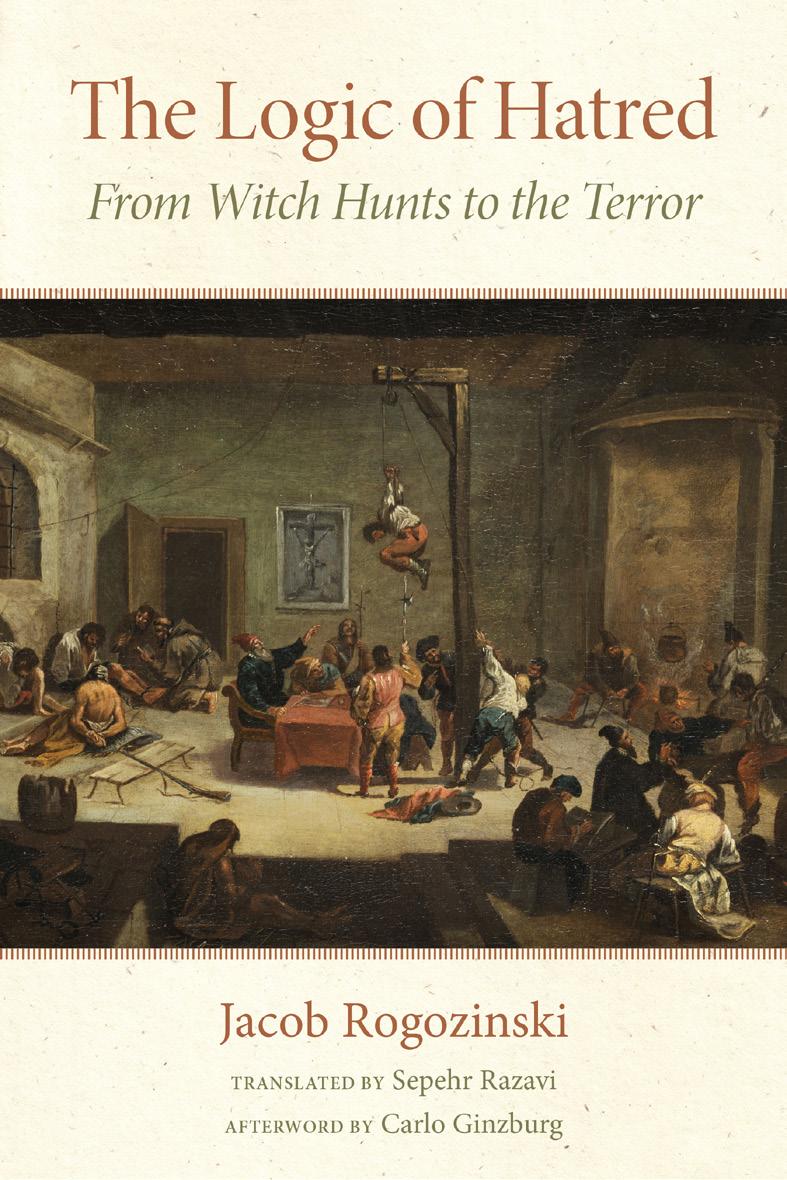
Rogozinski locates one of the origins of the witch-hunt in the anguish that popular uprisings arouse in dominant classes. The second part of the book extends the investigation to related phenomena, such as the extermination of lepers in the Middle Ages and the Reign of Terror during the French Revolution. By studying these historical experiences and marking their differences and similarities, this book shows the passage from exclusion to persecution and how revolts of the oppressed can let themselves be transformed and captured by persecutory politics. The analyses presented thus shed light on conspiracy theory and the terror apparatuses of our time.
JACOB ROGOZINSKI is Professor of Philosophy Emeritus at the University of Strasbourg. He is the author of The Ego and the Flesh: An Introduction to Egoanalysis
SEPEHR RAZAVI is a graduate student in philosophy at the University of Edinburgh.
CARLO GINZBURG is Professor Emeritus of History at UCLA. His books include The Cheese and the Worms and, most recently, The Soul of Brutes.
RONALD MENDOZA-DE JESÚS
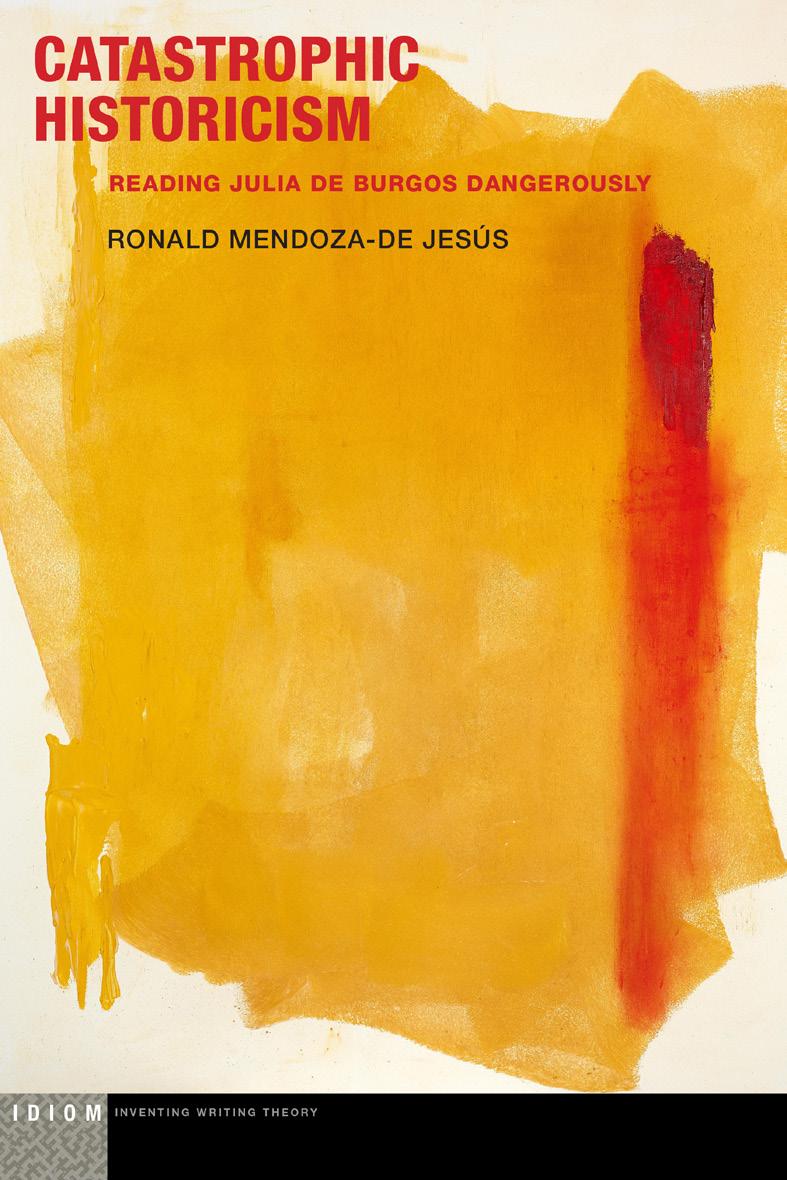
272 pages
9781531505646, Paperback, $32.00 (SDT), £27.99
9781531505639, Hardback, $110.00 (SDT), £99.00
Simultaneous electronic edition available
Idiom: Inventing Writing Theory
NOVEMBER
Philosophy & Theory | Latin American Studies | Race & Ethnic Studies
“The book makes Puerto Rican literary history tremble. By desedimenting the metaphysical ground of historicism’s cosmo-poietics, openings emerge for re-reading the canonical poet Julia de Burgos. I can think of nothing more difficult and faithful—as a scholar— than the reading procedure of danger, which confronts incalculable vulnerability.”
—REN ELLIS NEYRA, WESLEYAN UNIVERSITYRedefining Julia de Burgos and Puerto Rican Literary Sovereignty.
Catastrophic Historicism unsettles the historicist constitution of Julia de Burgos (1914–53), Puerto Rico’s most iconic writer—a critical task that necessitates redefining the concept of historicism. Through readings of Aristotle, Walter Benjamin, Jacques Derrida, Werner Hamacher, and Frank Ankersmit, Mendoza-de Jesús shows that historicism grounds historical objectivity in the historian’s capacity to compose totalizing narratives that domesticate the contingency of the past. While critiques of historicism as a realism leave untouched the sovereignty of the historian, the book insists that reading the text of history requires an attunement to danger—a modality that interrupts historicism by infusing the past with a contingency that evades total appropriation.
After de-sedimenting the monumental tradition that has reduced de Burgos to a totemic figure, Catastrophic Historicism reads the poet’s first collection, Poema en 20 surcos (1938). Mendoza-de Jesús argues that the historicity of Poema crystallizes in the lyrical speaker’s self-institution as an embodied ipseity, which requires producing racialized/gendered allegorical figures—the bearers of an abject flesh—that lack any ontological resistance to modern alienation. Rather than treating de Burgos’s poetics of selfhood as the ideal image of Puerto Rican sovereignty, Mendoza-de Jesús endangers this idealization by drawing attention to the abjection that sustains our attachments to ipseity as the form of a truly sovereign life. In this way, Catastrophic Historicism not only resets the terms of ongoing critiques of historicism in the humanities, it also intervenes in Puerto Rican historicity for the sake of its transformation.
RONALD MENDOZA-DE JESÚS is Assistant Professor of Spanish and Comparative Literature at the University of Southern California.
320 pages, 42 b/w illustrations
9781531504885, Paperback, $40.00 (SDT), £36.00
9781531504878, Hardback, $140.00 (SDT), £125.00
edition available
“This is the most comprehensive and up-to-date collection of Marian shrine devotionalism that I have read, and I urge everyone interested in understanding the enduring power and persistence of shrines devoted to the Virgin Mary to read this book. American Patroness is an exciting and important new collection that features top scholars of Catholicism who effectively translate the power and beauty of belief, prayer, and community in shared and communal spaces. Deeply researched and clearly written and excellent for class use.”
—KRISTY NABHAN-WARREN, AUTHOR OF MEATPACKING AMERICA: HOW MIGRATION, WORK, AND FAITH UNITE AND DIVIDE THE HEARTLAND
“American Patroness is a major contribution to the study of US Catholicism and American religion. The helpful introduction and vivid case studies offer surprising insights about the complexity and vitality of devotion today, not only at traditional shrines but also tourist sites, urban underpasses, and digital spaces. Indispensable for specialists but of interest to everyone who wants to know more about the contemporary religious landscape.”
—THOMAS A. TWEED, AUTHOR OF RELIGION: A VERY SHORT INTRODUCTION
A vital collection of interdisciplinary essays that illuminates the significance of Marian shrines and promises to teach scholars how to “read” them for decades to come.
American Patroness: Marian Shrines and the Making of US Catholicism is a collection of twelve essays that examine the historical and contemporary roles of Marian shrines in US Catholicism. The essays in this collection use historical, ethnographic, and comparative methods to explore how Catholics have used Marian devotion to make an imprint on the physical and religious landscape of the United States. Using the dynamic malleability of Marian shrines as a starting place for studying US Catholicism, each chapter reconsiders the American religious landscape from the perspective of a single shrine to Mary and asks: What does this shrine reveal about US Catholicism and about American religion?
Each of the contributors in American Patroness examines why and how Marian shrines persist in the twenty-first century and subsequently uses that examination to re-read contemporary US Catholicism. Because shrines are not neutral spaces—they reflect and shape the elastic yet strict boundaries of what counts as Catholic identity, and who controls prayer practices—the studies in this collection also shed light on the contested dynamics of these holy sites. American Patroness demonstrates that Marian shrines continue to be places where an American Catholic identity is continuously worked on, negotiations about power occur, and Marian relationships are fostered and nurtured in spaces that are simultaneously public and intimate.
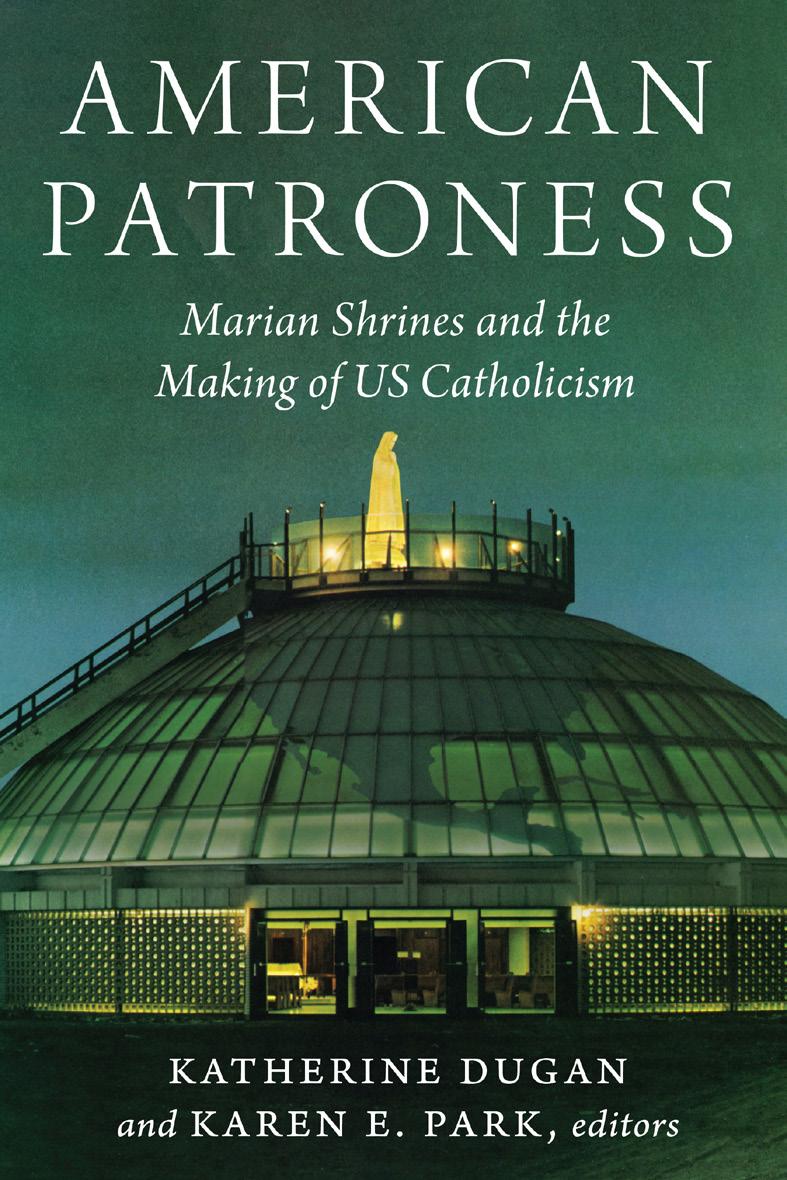
CONTRIBUTORS: Adrienne Nock Ambrose, Lloyd Barba, James S. Bielo, Katherine Dugan, David J. Endres, Kayla Harris, Patrick J. Hayes, Joseph Laycock, Karen E. Park, Terry Rey, Stephen Selka, Claire Vaughn, Andrew Walker-Cornetta
KATHERINE DUGAN is Professor of Theology and Religious Studies at Springfield College (MA), where she studies contemporary US Catholics and teaches courses in American religion. She is the author of Millennial Missionaries: How a Group of Young Adult Catholics is Making Catholicism Cool.
KAREN E. PARK is Professor of Theology and Religious Studies at St. Norbert College (WI). She is a frequent contributor to Religion Dispatches and other online and print publications on religion and culture in the US.
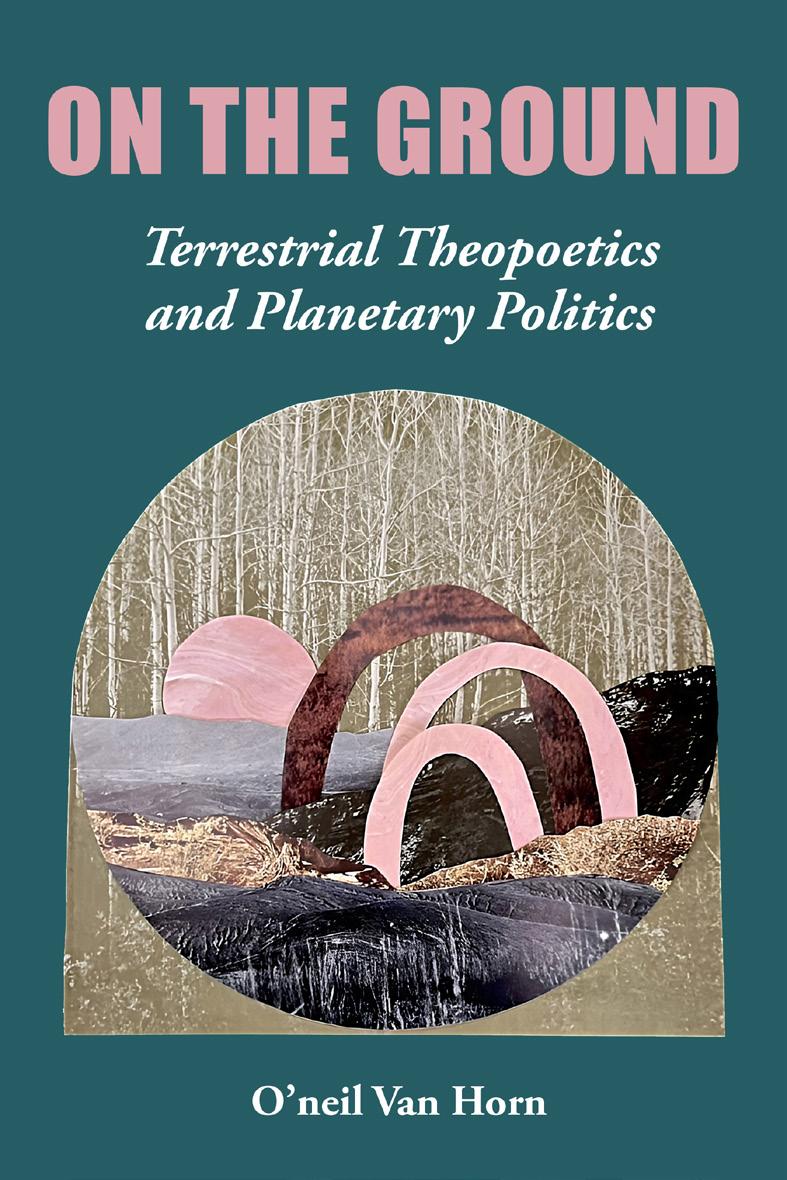
O’NEIL VAN HORN
224 pages
9781531505561, Paperback, $30.00 (SDT), £25.99
9781531505554, Hardback, $105.00 (SDT), £94.00
Simultaneous electronic edition available
DECEMBER
Religion | Philosophy & Theory | Environment
Climate change is here. Its ravaging effects will upend our interconnected ecosystems, and yet those effects will play out disproportionately among the planet’s nearly 8 billion human inhabitants. On the Ground explores how one might account for the many paradoxical tensions posed by the Anthropocene: tensions between planetarity and particularity, connectivity and contextuality, entanglement and exclusion. Using the philosophical and theological idea of “ground,” Van Horn argues that ground—when read as earth-ground, as soil—offers a symbol for conceiving of the effects of climate change as collective and yet located, as communal and yet differential. In so doing, he offers critical interventions on theorizations of hope and political action amid the crises of climate change.
Drawing on soil science, theopoetics, feminist ethics, poststructuralism, process philosophy, and more, On the Ground asks: In the face of global climate catastrophe, how might one theorize this calamitous experience as shared and yet particular, as interconnected and yet contextual? Might there be a way to conceptualize our interconnected experiences without erasing critical constitutive differences, particularly of social and ecological location? How might these conceptual interventions catalyze pluralistic, anti-racist planetary politics amid the Anthropocene? In short, the book addresses these queries: What philosophical and theological concepts can soil create? How might soil inspire and help re-imagine forms of planetary politics in the midst of climate change? On the Ground thus roots us in a robust theoretical symbol in the hopes of producing and proliferating intersectional responses to climate change.
O’ N EIL VAN HORN is Assistant Professor of Theology at Xavier University in Cincinnati. He holds a Ph.D. in Philosophical and Theological Studies from Drew University and is a former Louisville Scholar (2021–2023). He has published various works in the fields of theopoetics, constructive ecotheology, and environmental philosophy.
A bold, theoretical, and pragmatic book that looks to soil as a symbol for constructive possibilities for hope and planetary political action in the Anthropocene.
GIANFRANCO RAVASI
120 pages, 51⁄2 × 81⁄2
9781531505806, Paperback, $26.00 (SDT), £21.99
9781531505813, Hardback, $90.00 (SDT), £81.00
Simultaneous electronic edition available
Disruptive Cartographers: Doing Theology Latinamente
NOVEMBER
Theology | Religion | Latinx Studies
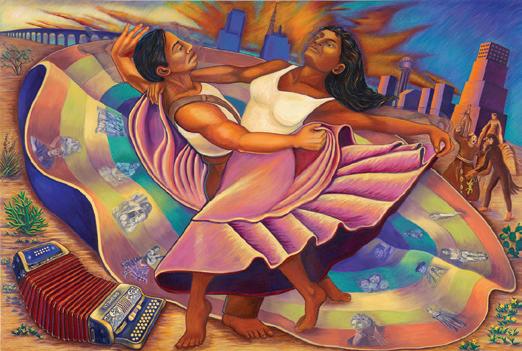
“A crucial corollary of the Christian belief in the Incarnation is the affirmation that revelation can only take place in and through human cultures. Consequently, U.S. Latinx theologians have been asking what a theology done latinamente would look like. This books answers that question.”
—ROBERTO S. GOIZUETA, BOSTON COLLEGEExploring Latin@ theologies and the power of revelation.
The Word Became Culture enacts a preferential option for culture, retrieving experiences and expressions from across latinidad as sources of theologizing and acts of resistance to marginalization. Each author in this edited volume demonstrates the many ways in which Latin@ theologies are disruptive, generative, and creative spaces rooted in the richness, struggles, texts, and rituals found at the intersections of faith and culture. With a foreword by Cardinal Gianfranco Ravasi, president emeritus of the Pontifical Council for Culture, this book situates Latin@ theologies in the ongoing search for and recognition of the “Word becoming” within the particularities of diverse cultural experiences.
MIGUEL H. DÍAZ is the John Courtney Murray, SJ, University Chair in Public Service at Loyola University Chicago. Dr. Díaz served under President Barack Obama as the ninth U.S. Ambassador to the Holy See. He is a co-editor of the series Disruptive Cartographers: Doing Theology Latinamente and author of the third volume in the series, Queer God de Amor (Fordham). As a public theologian, Professor Díaz regularly engages print, radio, and television media. He is a contributor to the “Theology en la Plaza” column for the National Catholic Reporter. As part of his ongoing commitment to advance human rights globally, he participates in several diplomatic initiatives in Washington, D.C., including being a member of the Atlantic Council, a member of the Ambassadors Circle at the National Democratic Institute (NDI), and a member of the Board and Senior Fellow for Religion and Peacebuilding for the Alliance for Peacebuilding (AfP).
JEAN-PIERRE RUIZ
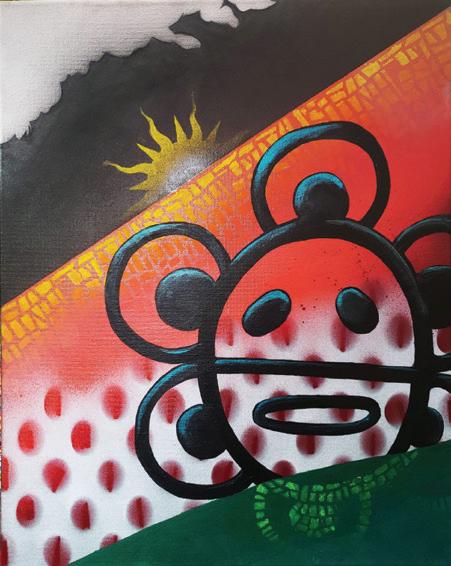
160 pages, 51⁄2 × 81⁄2
9781531505851, Paperback, $26.00 (SDT), £21.99
9781531505844, Hardback, $90.00 (SDT), £81.00
Simultaneous electronic edition available
Disruptive Cartographers: Doing Theology Latinamente
DECEMBER
Theology | Religion | History
Association of Catholic Publishers 2022 Excellence in Publishing Awards: First Place, Theology Catholic Media Association, Honorable Mention in Theology: Morality, Ethics, Christology, Mariology, and Redemption.
“A fascinating read! Moving back and forth across the Atlantic, this book charts traces of divine mystery revealed in cultural expressions. A surprising sixteenth-century encounter between an Indigenous Caribbean people and the Spaniards colonizing them? Yes. A dramatic twenty-first-century encounter between Indigenous Amazonian people, a supportive pope, and their critics? Indeed. Using original sources, this study lays a trail of clues to the possibility that the self-disclosure of God might be greater than one has imagined or understood.”
—ELIZABETH JOHNSON, CSJ, DISTINGUISHED PROFESSOR EMERITA, FORDHAM UNIVERSITYUnveiling divine mysteries across continents and centuries.
Revelation in the Vernacular retrieves a hermeneutics of the vernacular that is rooted en lo cotidiano, in everyday life and experience. Traversing time and geography, Ruiz remaps a theology of revelation done latinamente, beginning with sixteenth-century encounters of Spanish colonizers with Indigenous peoples in the Caribbean. Drawing on the theology of the Incarnation articulated by Fray Luis de León (1527–91), he offers rich resources for interreligious engagement by believers in today’s religiously diverse world. Through an analysis of the documents of the 2019 Amazonian Synod, including Querida Amazonia, the Postsynodal Exhortation by Pope Francis, he explores a culture of encounter and dialogue that has been a hallmark of this pontificate. From the inscriptions in the caves of la Isla de Mona through the writings of the Latin American Bishops (CELAM), this book establishes a solid basis on which to discern the “Seeds of the Word” in our times.
JEAN-PIERRE RUIZ teaches on the faculty of the Department of Theology and Religious Studies at St. John’s University in New York, where he is also a senior research fellow of the Vincentian Center for Church and Society. He is a noted Nuyorican biblical scholar and theologian, and his publications include the Catholic Press Association Award–winning book Readings from the Edges: The Bible and People on the Move. A past president of the Academy of Catholic Hispanic Theologians of the U.S. (ACHTUS), he received their Virgilio Elizondo Award for distinguished achievement in theology. During the Obama administration, Ruiz served as a member of the U.S. Department of State’s Working Group on Religion and Foreign Policy. Ruiz’s research interests include the Apocalypse of John, the place of the Bible in the colonization of the Americas, the Bible and migration, and interreligious dialogue (especially Jewish–Christian dialogue).
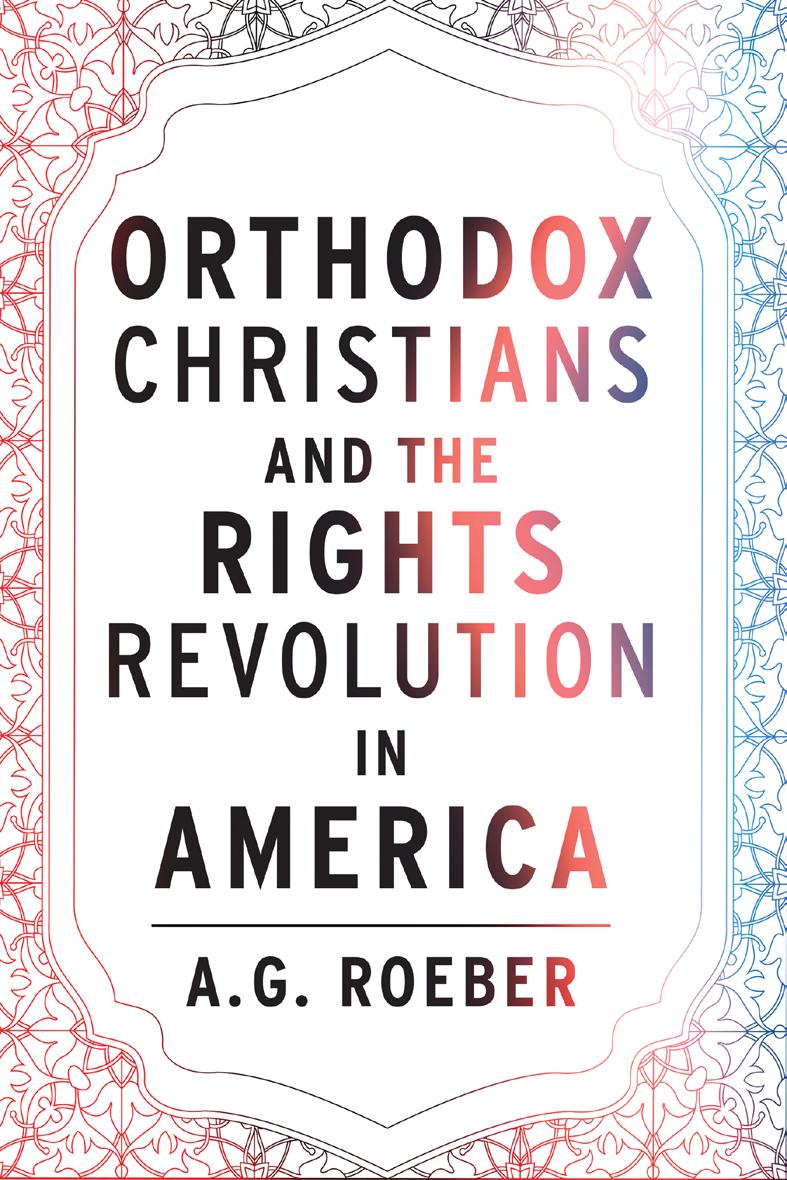
“What happens when convictions about ‘rights’ developed from within the traditions of Orthodox Christianity confront the modern ‘rights revolution’ that is dominated by secular reasoning? A.G. Roeber’s deeply researched and carefully argued book provides answers that focus on the growing participation of the Orthodox in American social and political debates. One of the book’s many contributions, however, is to extend its discussion to consider the clash of Orthodox opinions (Russian versus Ukrainian and the Orthodox Church of the USA) on the Russian invasion of Ukraine. For anyone interested in connections between religious thought and contemporary debates over “rights,” this book is a treasure.”
A distinctive and unrivaled examination of North American Eastern Orthodox Christians and their encounter with the rights revolution in a pluralistic American society.
From the civil rights movement of the 1950s to the “culture wars” of North America, commentators have identified the partisans bent on pursuing different “rights” claims. When religious identity surfaces as a key determinant in how the pursuit of rights occurs, both “the religious right” and “liberal” believers remain the focus of how each contributes to making rights demands. How Orthodox Christians in North America have navigated the “rights revolution,” however, remains largely unknown. From the disagreements over the rights of the First Peoples of Alaska to arguments about the rights of transgender persons, Orthodox Christians have engaged an anglo-American legal and constitutional rights tradition. But they see rights claims through the lens of an inherited focus on the dignity of the human person.
In a pluralistic society and culture, Orthodox Christians, both converts and those with family roots in Orthodox countries, share with non-Orthodox fellow citizens the challenge of reconciling conflicting rights claims. Those claims do pit “religious liberty” rights claims against perceived dangers from outside the Orthodox Church. But internal disagreements about the rights of clergy and people within the Church accompany the Orthodox Christian engagement with debates over gender, sex, and marriage as well as expanding political, legal, and human rights claims. Despite their small numbers, North American Orthodox remain highly visible and their struggles influential among the more than 280 million Orthodox worldwide. Orthodox Christians and the Rights Revolution in America offers an historical analysis of this unfolding story.
THE REV. DR. A. G. ROEBER is Emeritus Professor of Early Modern History and Religious Studies at Penn State University and Professor of Church History at St. Vladimir’s Orthodox Theological Seminary. He is the author of many books; his Palatines, Liberty, and Property: German Lutherans in Colonial British America was the 1983 co-winner of the American Historical Association’s John H. Dunning Prize. A past president of the Orthodox Theological Society in America, he is also co-author of Changing Churches: An Orthodox, Catholic, and Lutheran Theological Conversation; author of Mixed Marriages: An Orthodox History; and editor of Human v. Religious Rights? German and U.S. Exchanges and Their Global Implications.
“Listening to Christian spirituality carefully and liberatingly for the present is neither simple nor necessarily welcome in pluralistic and secular contexts. This series, intended for respectful existential, secular, and pluralistic engagement, promotes a deep conversation about how Christian spiritual heritage matters today. Readers are invited into the art of interpretation with—and beyond—these influential texts and authors, into difficult and urgent questions about how we live well together in a world where no one single vision prevails, but where we help each other clarify what matters most, making a world with room for all spiritual paths promising justice. For the everyday quest to live well together in a world we must equally share, Christian tradition offers spiritual wisdom—and this series offers able guides in recovering that wisdom and suggesting how it can be practiced today.”
—TOM BEAUDOIN ON THE “PAST LIGHT ON PRESENT LIFE: THEOLOGY, ETHICS, AND SPIRITUALITY” SERIES
Edited and with Commentary by Roger Haight, S.J.,“‘Past Light on Present Life’ is a brilliantly dynamic series. It weaves together theological frameworks, ethical implications, and spiritual mindsets in interpreting texts of numerous great personages in the history of Christian spirituality. Importantly, in doing so it responds to searing questions of our current age. The genius of the series lies in the precise choices of the original texts at the heart of each concise volume, which provide the key for such pertinent interpretation. These volumes provide much-needed fresh insight for experts in the field, as they also will prove invaluable for undergraduate teachers, graduate students, religious seekers, and spiritual directors.”
—JULIA D.E. PRINZ ON THE “PAST LIGHT ON PRESENT LIFE: THEOLOGY, ETHICS, AND SPIRITUALITY” SERIES

This volume brings together texts of the twelfth-century Hildegard of Bingen and the early-thirteenth-century Francis of Assisi to represent religious spirituality after the Gregorian Reform and just prior to or simultaneous with the formation of universities in Western Europe. In an extraordinary way, Hildegard embodies monastic theology and spirituality and provides a contrast to the new thing that would be created with the study of theology in the new Aristotelian idiom of the universities. But equally in contrast to the Benedictine Hildegard, the thirteenth century witnessed a renewed enthusiasm for a more literal following of Christ in a life of penitence and poverty. This is a life of dependence, not on a superior and enclosed community but on the compassion of society at large. Francis would join this movement on his own terms, attract a following, and gradually formulate a spirituality that sent signals of the need to reform individual lives and the institutions of the Church. These two authors, then, are not joined here because of any shared similarity but to help illustrate two quite different spiritualities that animated the lively European twelfth and thirteenth centuries.
ROGER HAIGHT, S.J. , a Visiting Professor at Union Theological Seminary in New York, has written several books in the area of fundamental theology. A graduate of the University of Chicago, he is a past president of the Catholic Theological Society of America.
ALFRED PACH III is an Associate Professor of Medical Sciences and Global Health at the Hackensack Meridian School of Medicine. He has a Ph.D. from the University of Wisconsin in Madison and an MDiv in Psychology and Religion from Union Theological Seminary.
AMANDA AVILA KAMINSKI is an Assistant Professor of Theology at Texas Lutheran University, where she also serves as Director of the program in Social Innovation and Social Entrepreneurship. She has written extensively in the area of Christian spirituality.
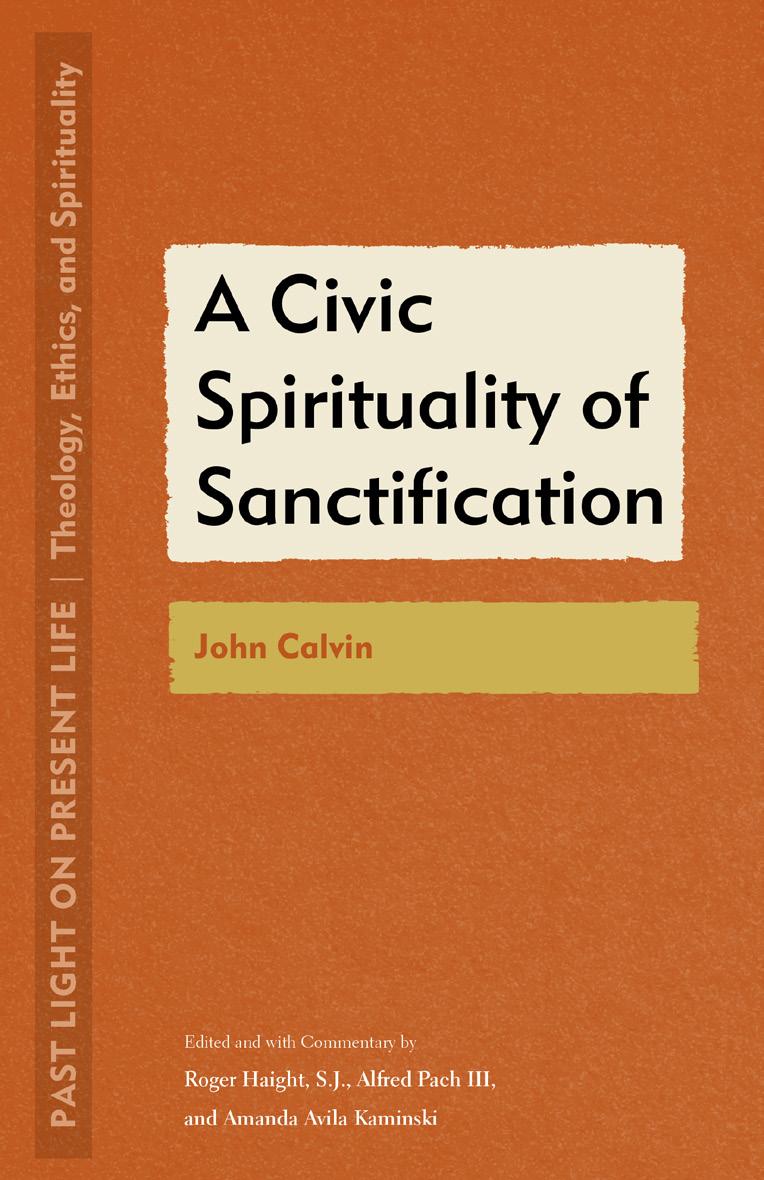 John Calvin
John Calvin
160 pages, 51⁄2 × 81⁄2 9781531505745, Paperback, $9.95 (SDT), £8.99
“Listening to Christian spirituality carefully and liberatingly for the present is neither simple nor necessarily welcome in pluralistic and secular contexts. This series, intended for respectful existential, secular, and pluralistic engagement, promotes a deep conversation about how Christian spiritual heritage matters today. Readers are invited into the art of interpretation with—and beyond—these influential texts and authors, into difficult and urgent questions about how we live well together in a world where no one single vision prevails, but where we help one another clarify what matters most, making a world with room for all spiritual paths promising justice. For the everyday quest to live well together in a world we must equally share, Christian tradition offers spiritual wisdom—and this series offers able guides in recovering that wisdom and suggesting how it can be practiced today.”
—TOM BEAUDOIN ON THE “PAST LIGHT ON PRESENT LIFE: THEOLOGY, ETHICS, AND SPIRITUALITY” SERIES
“‘Past Light on Present Life’ is a brilliantly dynamic series. It weaves together theological frameworks, ethical implications, and spiritual mindsets in interpreting texts of numerous great personages in the history of Christian spirituality. Importantly, in doing so it responds to searing questions of our current age. The genius of the series lies in the precise choices of the original texts at the heart of each concise volume, which provide the key for such pertinent interpretation. These volumes provide much-needed fresh insight for experts in the field, as these texts also will prove invaluable for undergraduate teachers, graduate students, religious seekers, and spiritual directors.”
—JULIA D.E. PRINZ ON THE “PAST LIGHT ON PRESENT LIFE: THEOLOGY, ETHICS, AND SPIRITUALITY” SERIES
This volume presents the spirituality of John Calvin in three short texts drawn from his Institutes of the Christian Religion. Many consider Calvin the most influential thinker of the sixteenth century. His ideas flowed from Geneva into northern Europe, to the English-speaking lands of Britain, and through the Puritans to North America. The prolific writings of Calvin across several genres open up many aspects of Christian living, and each one offers an entrée to his spirituality. On the supposition that “spirituality” refers to the way people or groups lead their lives in relation to ultimacy, three texts have been chosen to form the axis for this interpretation of Calvin’s contribution. These texts deal with his theological view of law, a definition of sanctification, and a short treatise on the Christian life. The portrait of Calvin’s spirituality that emerges from these texts and the larger framework of his theology, his ecclesiology, and his career as church leader and civic organizer can be summarized in the following phrase: a practical spirituality of sanctification by participation in society. One cannot find all of that in these texts, but they establish a platform on which the pieces fall into place. The story of his early life and formation, along with several key ideas that characterize the man and his vision, will help to draw a sharper, more distinctive picture of at least this influential aspect of Calvin’s spirituality. It is one that bears direct relevance, with appropriate adjustments, to life today.
ROGER HAIGHT, S.J. , a Visiting Professor at Union Theological Seminary in New York, has written several books in the area of fundamental theology. A graduate of the University of Chicago, he is a past president of the Catholic Theological Society of America.
ALFRED PACH III is an Associate Professor of Medical Sciences and Global Health at the Hackensack Meridian School of Medicine. He has a Ph.D. from the University of Wisconsin in Madison and an MDiv in Psychology and Religion from Union Theological Seminary.
AMANDA AVILA KAMINSKI is an Assistant Professor of Theology at Texas Lutheran University, where she also serves as Director of the program in Social Innovation and Social Entrepreneurship. She has written extensively in the area of Christian spirituality.
“Listening to Christian spirituality carefully and liberatingly for the present is neither simple nor necessarily welcome in pluralistic and secular contexts. This series, intended for respectful existential, secular, and pluralistic engagement, promotes a deep conversation about how Christian spiritual heritage matters today. Readers are invited into the art of interpretation with—and beyond—these influential texts and authors, into difficult and urgent questions about how we live well together in a world where no one single vision prevails, but where we help each other clarify what matters most, making a world with room for all spiritual paths promising justice. For the everyday quest to live well together in a world we must equally share, Christian tradition offers spiritual wisdom—and this series offers able guides in recovering that wisdom and suggesting how it can be practiced today.”
—TOM BEAUDOIN ON THE “PAST LIGHT ON PRESENT LIFE: THEOLOGY, ETHICS, AND SPIRITUALITY” SERIES
“‘Past Light on Present Life’ is a brilliantly dynamic series. It weaves together theological frameworks, ethical implications, and spiritual mindsets in interpreting texts of numerous great personages in the history of Christian spirituality. Importantly, in doing so it responds to searing questions of our current age. The genius of the series lies in the precise choices of the original texts at the heart of each concise volume, which provide the key for such pertinent interpretation. These volumes provide much-needed fresh insight for experts in the field, as they also will prove invaluable for undergraduate teachers, graduate students, religious seekers, and spiritual directors.”
—JULIA D.E. PRINZ ON THE “PAST LIGHT ON PRESENT LIFE: THEOLOGY, ETHICS, AND SPIRITUALITY”
160 pages, 51⁄2 × 81⁄2

9781531506049, Paperback, $9.95 (SDT), £8.99
This volume directs attention to the teaching of Jesus; it introduces the question of how the imagination has to work in order to retrieve the teaching of Jesus and apply it to actual life in our day. Teachers and preachers are engaged in this work all the time, but upon examination it involves a process that bears reflection. We live in a world that is so different from the world in which Jesus taught that many ask about its practicability relative to our complex everyday lives. The volume turns to three authors who work at this, have thought through present-day theory of interpretation, and respond to basic questions that explain the adjustments that allow us to apply Jesus’s teaching to our dilemmas with interpretation that remain faithful to the content that He proposed. Sandra Schneiders turns to modern hermeneutics—the theory of interpretation—and explains what is going on in the human mind that allows us to say that present-day interpretation, while different from that of Jesus because our “worlds” are different, corresponds to what Jesus communicated in the past relative to His world. William Spohn pushes the same idea further to concrete examples of how analogy, sameness, and difference together bind the imagination to Jesus and frees us to see new relevance for Jesus’s actual teaching. And Lisa Sowle Cahill takes the spirit of the other two into the social order to show how Jesus’s teaching has a real relevance for the highly complex societies in which we live today. The logics of these three authors offer models for what is going on in all of the “Past Light on Present Life” volumes as they represent different historical periods and distinct themes in Western Christian spirituality.
ROGER HAIGHT, S.J. , a Visiting Professor at Union Theological Seminary in New York, has written several books in the area of fundamental theology. A graduate of the University of Chicago, he is a past president of the Catholic Theological Society of America.
ALFRED PACH III is an Associate Professor of Medical Sciences and Global Health at the Hackensack Meridian School of Medicine. He has a Ph.D. from the University of Wisconsin in Madison and an MDiv in Psychology and Religion from Union Theological Seminary.
AMANDA AVILA KAMINSKI is an Assistant Professor of Theology at Texas Lutheran University, where she also serves as Director of the program in Social Innovation and Social Entrepreneurship. She has written extensively in the area of Christian spirituality.
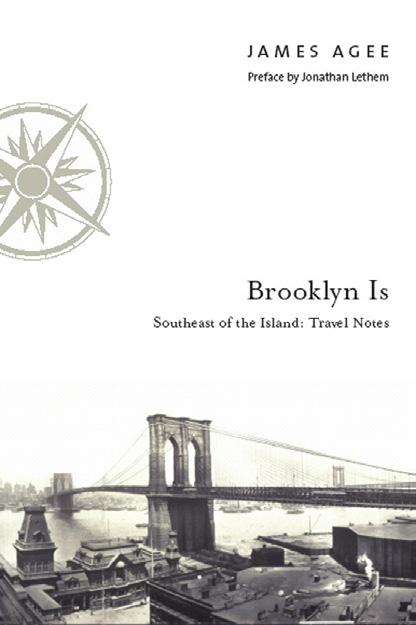
Southeast of the Island: Travel Notes
James Agee, Preface by Jonathan Lethem
64 pages, 5 x 7
9780823224920, Hardback, $25.95 (HC), £21.99
Whose Middle Ages?
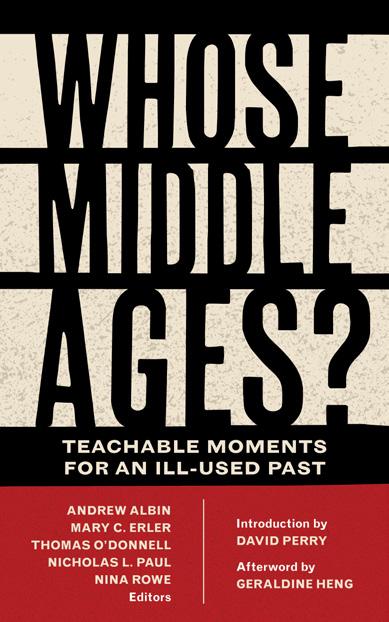
Teachable Moments for an Ill-Used Past
Andrew Albin, Mary C. Erler, Thomas
O’Donnell, Nicholas L. Paul, and Nina Rowe, Editors
Introduction by David Perry
Afterword by Geraldine Heng
240 pages, 5 x 8, 35 b/w illustrations
9780823285563, Paperback, $22.00 (AC), £18.99
Fordham Series in Medieval Studies
Whom We Shall Welcome
Italian Americans and Immigration Reform, 1945-1965
Danielle Battisti
352 pages, 14 b/w illustrations
9780823284382, Paperback, $39.00 (SDT), £35.00 Critical Studies in Italian America
The Book of Tiny Prayer
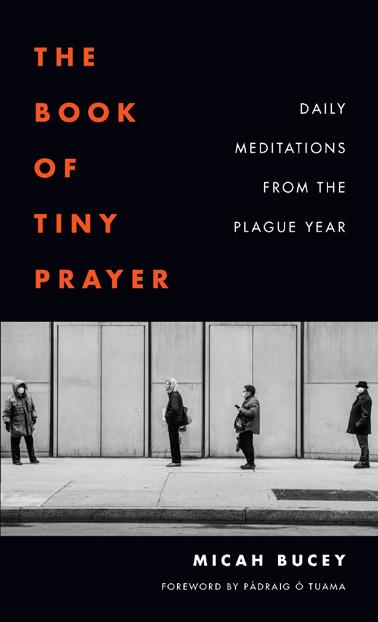
Daily Meditations from the Plague Year
Micah Bucey, Foreword by Pádraig Ó Tuama
312 pages, 4 1⁄2 x 7
9780823299225, Paperback, $15.95 (TP), £13.99
When the IRA Came to New York
Mark Bulik
208 pages, 12 b/w illustrations
9781531502607, Hardback, $24.95 (HC), £21.99 Empire State Editions
Judith P. Butler
160 pages
9780823225040, Paperback, $33.00 (SDT), £27.99 Senses of the Subject
Judith Butler
228 pages
9780823264674, Paperback, $27.00 (AC), £22.99
Hungary in World War II
Caught in the Cauldron
Deborah S. Cornelius
400 pages, 16 b/w illustrations
9780823233441, Paperback, $39.00 (SDT), £35.00
World War II: The Global, Human, and Ethical Dimension
The Aesthetics of Possibility
Ashon T. Crawley
320 pages, 20 b/w illustrations
9780823274550, Paperback, $28.00 (SDT), £23.99 Commonalities
American Literatures Initiative
How Container Ships Changed the World Brian J. Cudahy
352 pages, 50 b/w illustrations
9780823225699, Paperback, $39.00 (SDT), £35.00 In the Adirondacks

Dispatches from the Largest Park in the Lower 48
Matt Dallos
240 pages, 12 color illustrations
9781531502638, Hardback, $29.95 (HC), £25.99 Empire State Editions
The Animal That Therefore I Am Jacques Derrida, Edited by Marie-Louise Mallet, Translated by David Wills
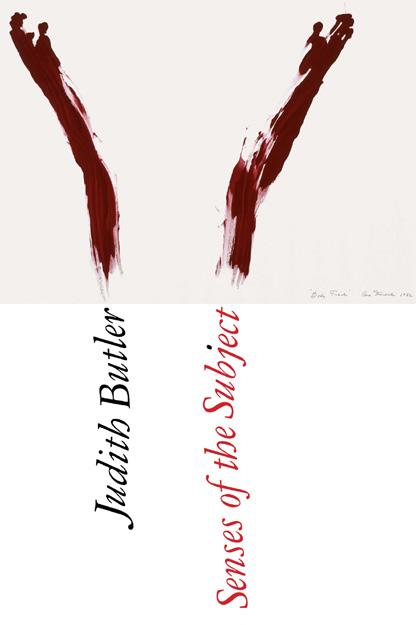
192 pages
9780823227914, Paperback, $31.00 (SDT), £26.99 Perspectives in Continental Philosophy
The Nazi Who Saved Jews, Expanded Edition
Michael Good
288 pages, 6 1⁄2 x 9 1⁄2 , 30 b/w illustrations
9780823224418, Paperback, $33.00 (AC), £27.99

A Philosophical Introduction to His Life and Thought
Lewis R. Gordon
216 pages, 9 b/w illustrations
9780823266098, Paperback, $24.00 (SDT), £20.99
Just Ideas
Educational Reconstruction
African American Schools in the Urban South, 1865-1890
Hilary Green
272 pages
9780823270125, Paperback, $39.00 (SDT), £35.00
Reconstructing America
Sacred Shelter
Thirteen Journeys of Homelessness and Healing
Edited by Susan Celia Greenfield
336 pages, 26 b/w illustrations
9780823281190, Paperback, $30.00 (AC), £25.99
Empire State Editions
Public Things
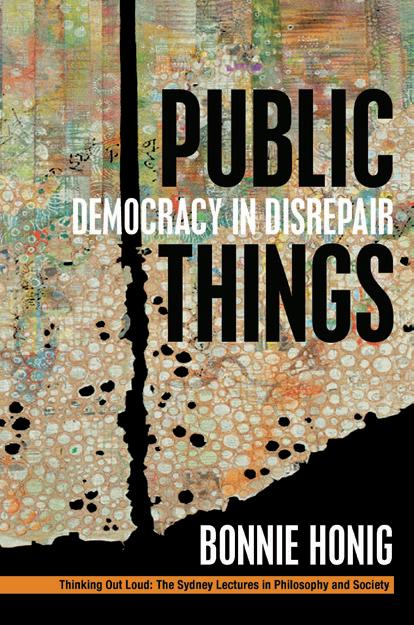
Democracy in Disrepair
Bonnie Honig
160 pages
9780823276417, Paperback, $22.00 (SDT), £21.99 Thinking Out Loud
The Life and Times of Bertram L. Baker
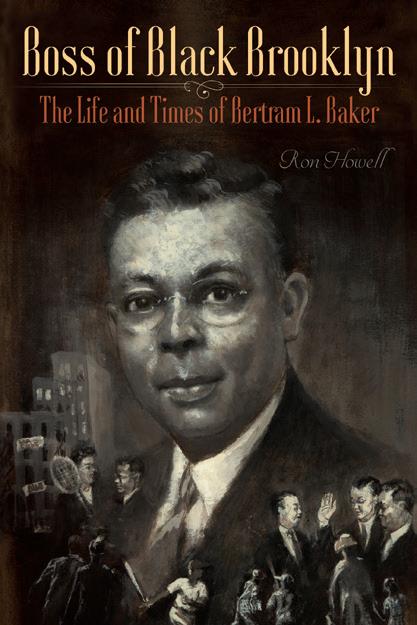
Ron Howell
288 pages, 12 color illustrations
9780823288694, Paperback, $21.95 (TP), £18.99
Empire State Editions
Dutch New York
The Roots of Hudson Valley Culture
Edited by Roger Panetta
Foreword by Russell Shorto
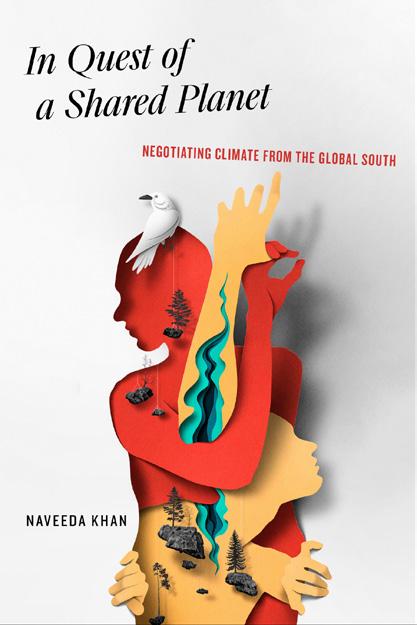
450 pages, 7 x 10, 470 color and black illustrations
9780823230402, Paperback, $60.00 (SDT), £54.00
Co-published with The Hudson River Museum
Red Tail Captured, Red Tail Free
Memoirs of a Tuskegee Airman and POW, Revised Edition

Alexander Jefferson, with Lewis H. Carlson
192 pages, 8 1⁄2 x 9 1⁄2, 92 color illustrations
9780823274383, Hardback, $33.00 (HC), £27.99
World War II: The Global, Human, and Ethical Dimension
Yarrow Mamout and the History of an African American Family
James H. Johnston
310 pages, 25 b/w illustrations
9780823239511, Hardback, $26.95 (TP), £22.99
In Quest of a Shared Planet
Negotiating Climate from the Global South
Naveeda Khan
240 pages
9781531502782, Paperback, $24.95 (AC), £21.99
Thoughts of St. Ignatius Loyola for Every Day of the Year
St. Ignatius Loyola
Translated by Alan G. McDougall
Introduction by Patrick J. Ryan, S.J.
144 pages, 6 1⁄2 x 5 1⁄2, 12 b/w illustrations
9780823226566, Hardback, $32.00 (SDT), £27.99
What Should We Do with Our Brain?
Catherine Malabou
Translated by Sebastian Rand
Introduction by Marc Jeannerod
120 pages, 5 1⁄2 x 8 1⁄2
9780823229536, Paperback, $27.00 (SDT), £22.99 Perspectives in Continental Philosophy
The Rose Man of Sing Sing
A True Tale of Life, Murder, and Redemption in the Age of Yellow Journalism
James M. Morris
470 pages, 6 1⁄2 x 9 1⁄2
9780823222681, Paperback, $30.00 (SDT), £25.99 Communications and Media Studies
Jean-Luc Nancy
Translated by Richard A. Rand
208 pages
9780823229628, Paperback, $31.00 (SDT), £26.99 Perspectives in Continental Philosophy
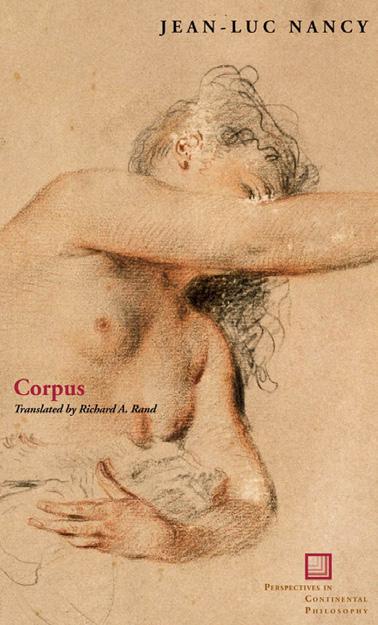
The Roads to Hillbrow

Making Life in South Africa’s Community of Migrants
Ron Nerio and Jean Halley
320 pages, 30 color illustrations
9780823299409, Paperback, $35.00 (AC), £29.99
Polis: Fordham Series in Urban Studies
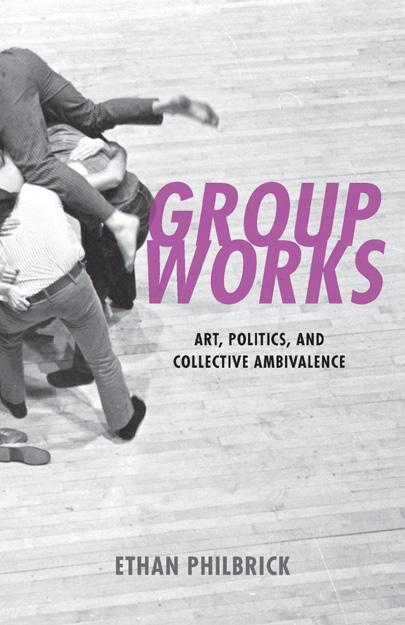
Art, Politics, and Collective Ambivalence
Ethan Philbrick
192 pages, 5 x 8, 23 b/w illustrations
9781531502706, Paperback, $25.00 (AC), £21.99
EMS Workers in Urban America
Christopher Prener
304 pages, 25 b/w illustrations
9781531501082, Paperback, $35.00 (AC), £29.99
Polis: Fordham Series in Urban Studies
A Trip Through New York City’s Unbuilt Subway System
Joseph B. Raskin
336 pages, 7 x 10, 100 black and white illustrations.
9780823267408, Paperback, $21.95 (TP) Empire State Editions
White Reconstruction
Domestic Warfare and the Logics of Genocide
Dylan Rodríguez
256 pages, 6 b/w illustrations
9780823289394, Paperback, $30.00 (SDT), £25.99
The Ironic Evolution of Psychiatry in World War II
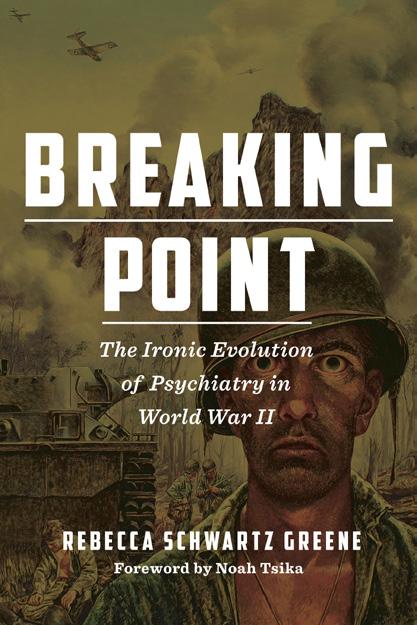
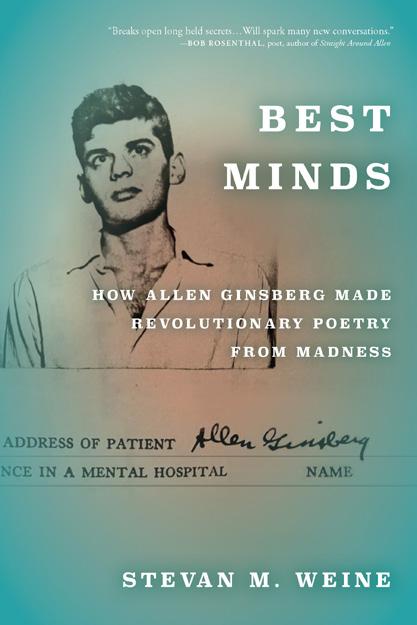
Rebecca Schwartz Greene
Foreword by Noah Tsika
368 pages, 15 black and white illustrations
9781531500269, Paperback, $30.00 (SDT), £25.99 World War II: The Global, Human, and Ethical Dimension
New Answers for Old Questions about the Civil War–Era North
Andrew L. Slap and Michael Thomas Smith, Editors
296 pages
9780823245697, Paperback, $39.00 (SDT), £35.00 The North’s Civil War
How Allen Ginsberg Made Revolutionary Poetry from Madness
Stevan M. Weine
304 pages, 37 b/w illustrations
9781531502669, Hardback, $34.95 (HC), £29.99
United States & Canada
Fordham University Press is distributed to the trade by Ingram Academic and Professional, an Ingram brand.
Email: ipsorders@ingramcontent.com
Tel: 1-866-400-5351
For customers needing assistance with orders placed on www.fordhampress.com, please visit https://fordhampress.zendesk.com/hc/en-gb
Field Sales
Leslie Jobson
Senior Manager, Sales and Support Tel: 510.809.3732 leslie.jobson@ingramcontent.com
Specialty Retail & Gift Sales
Allison Jones
Gift Sales Manager allison.jones@ingramcontent.com
Sandy Hernandez
Senior Manager, Specialty Retail Tel: 818.914.9433 sandy.hernandez@ingramcontent.com
Steve Quinn
Special Sales Manager, Specialty Retail Tel: 401-209-9869 steve.quinn@ingramcontent.com
Tom Lupoff
Sales Rep, Special Markets, Wholesale, and Catalog
Tel: 510.809.3754 tom.lupoff@ingramcontent.com
Erin Procario
Sales Rep, Special Markets
erin.procario@ingramcontent.com
CANADA
Tricia Remark
Senior Sales Rep
Ingram Publisher Services International
1400 Broadway, Suite 3200
New York, NY 10018
Tel: 212-581-7839
Email: tricia.remark@ingramcontent.com
CANADA ORDERING INFORMATION
Canadian Manda Group
664 Annette Street Toronto M6S 2C8 Canada
Tel: 416-516-0911
Email: info@mandagroup.com
LATIN AMERICA AND THE CARIBBEAN
Edison Garcia
Senior Manager, Sales
1400 Broadway, Suite 3200 New York, NY 10018
Email: edison.garcia@ingramcontent.com
INTERNATIONAL SALES
UK, Europe, Middle East, Africa, Pacific, including Australia and New Zealand
Combined Academic Publishers
Mare Nostrum Group
39 East Parade Harrogate
North Yorkshire
HG1 5LQ
UK
Tel: + 44 (0)1423526350
Customer Service
enquiries@combinedacademic.co.uk
Orders & Customer Service
Wiley Customer Service Books
European Distribution Centre
New Era Estate
Oldlands Way
Bognor Regis
West Sussex
PO22 9NQ, UK
Tel: +44 (0) 1243 843291
Email: mng.csd@wiley.com
China, Hong Kong and Taiwan
China Publishers Marketing
Benjamin Pan
Email: benjamin.pan@cpmarketing.com.cn
Tel/Fax: 0086-21-54259557
Mobile: 0086-13061629622
South-East Asia - Brunei, Cambodia, East Timor, Indonesia, Japan, Laos, Malaysia, Philippines, Singapore, South Korea, Thailand, Vietnam Publishers International Marketing
Chris Ashdown
Tel/Fax: +44(0)1202 896210
Email: chris@pim-uk.com
South Asia - Bangladesh, Bhutan, India, Maldives, Nepal, Sri Lanka
Manohar Publishers and Distributors
4753/23, Ansari Road, Darya Ganj, New Delhi 110002
Tel: 011- 43583973
Email: manoharbooks@gmail.com
Australia, Fiji, New Zealand, Papua New Guinea
BPS
Level 6, 1A Homebush Bay Drive
Rhodes NSW 2138 Australia
Tel: 1300 187 187
Email: BPS@booktopia.com.au
Cover photo by Flickr user Jeppestown / CC BY-SA 2.0